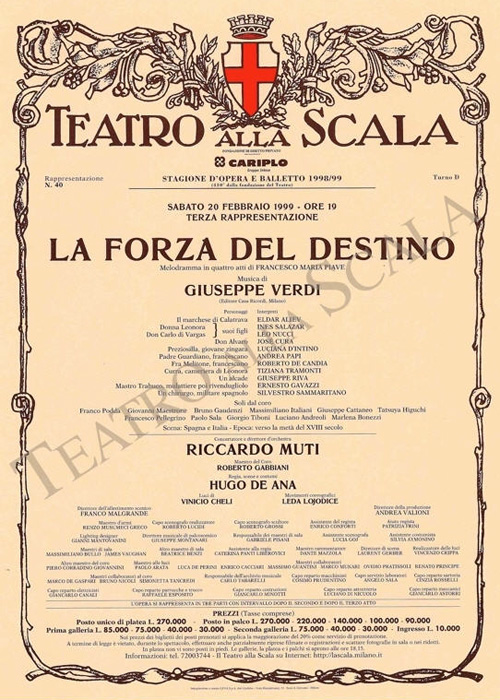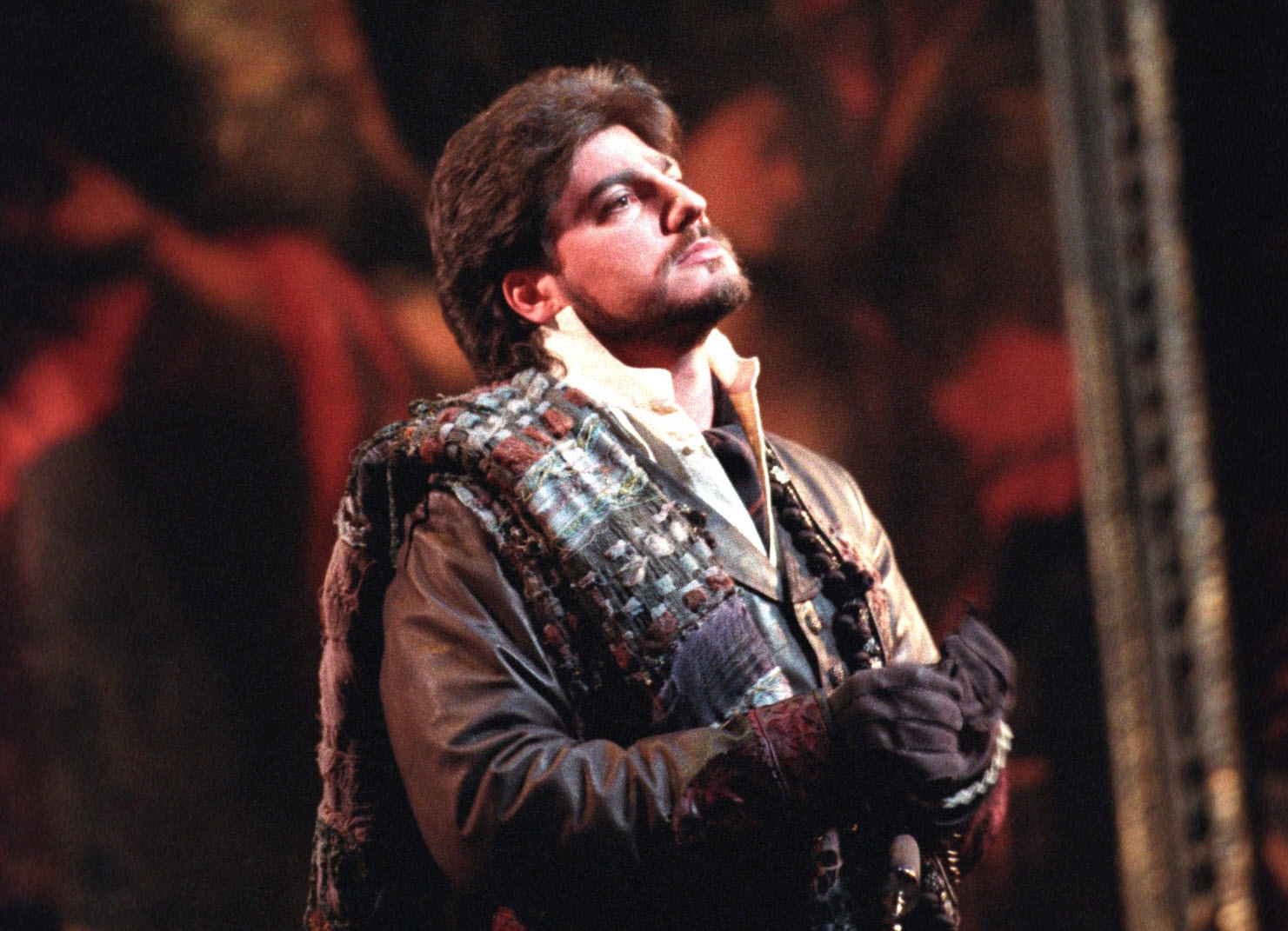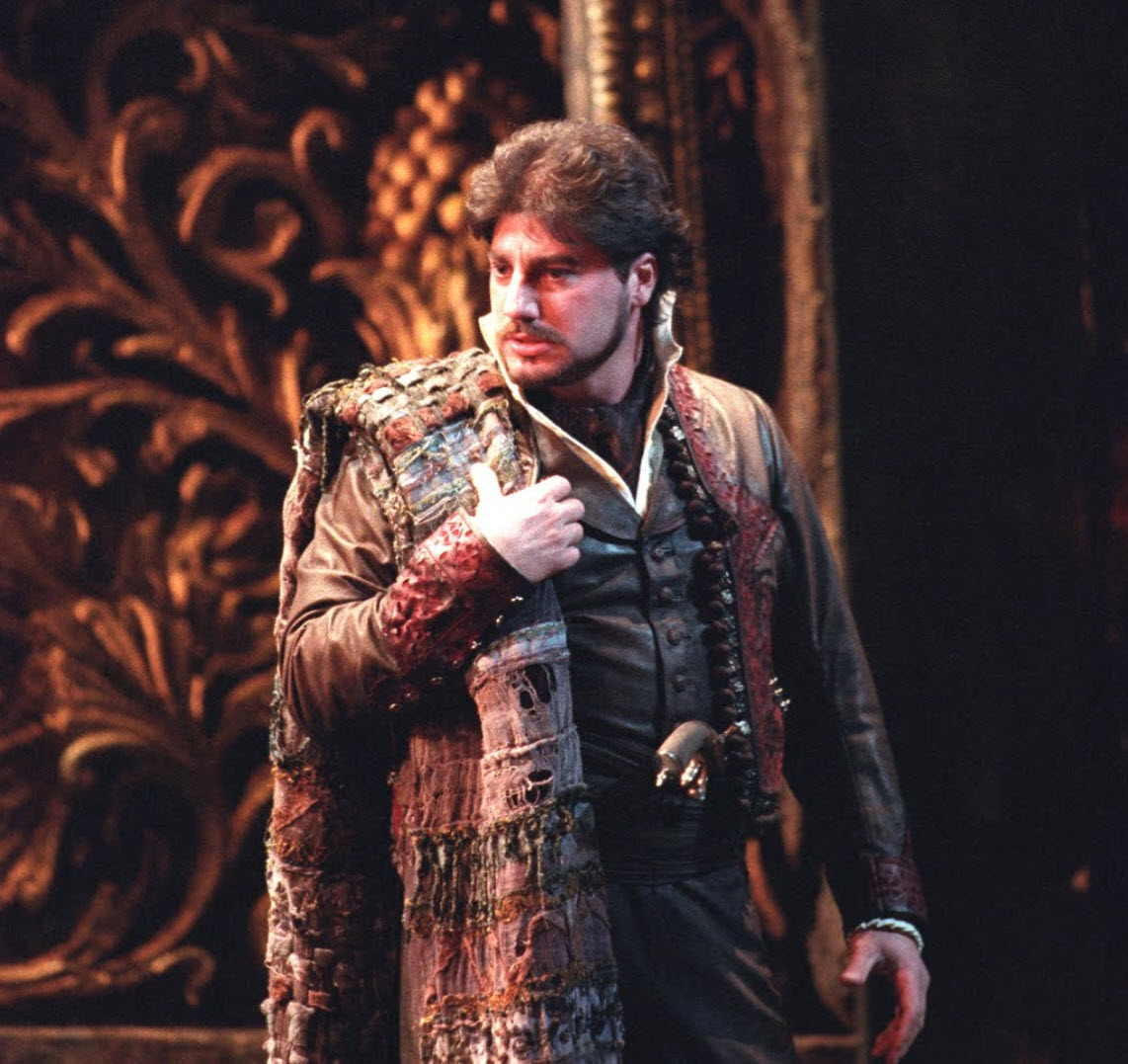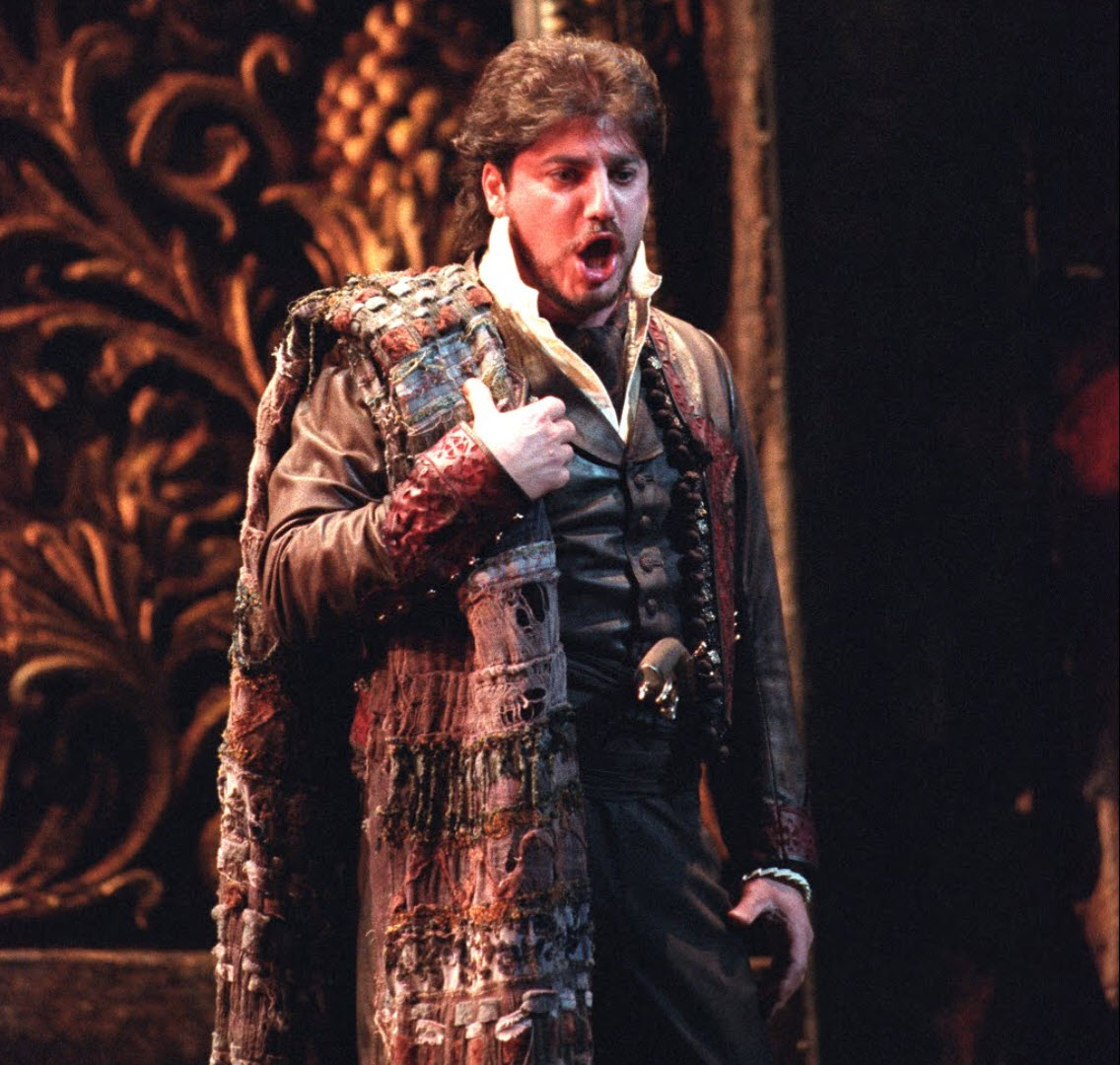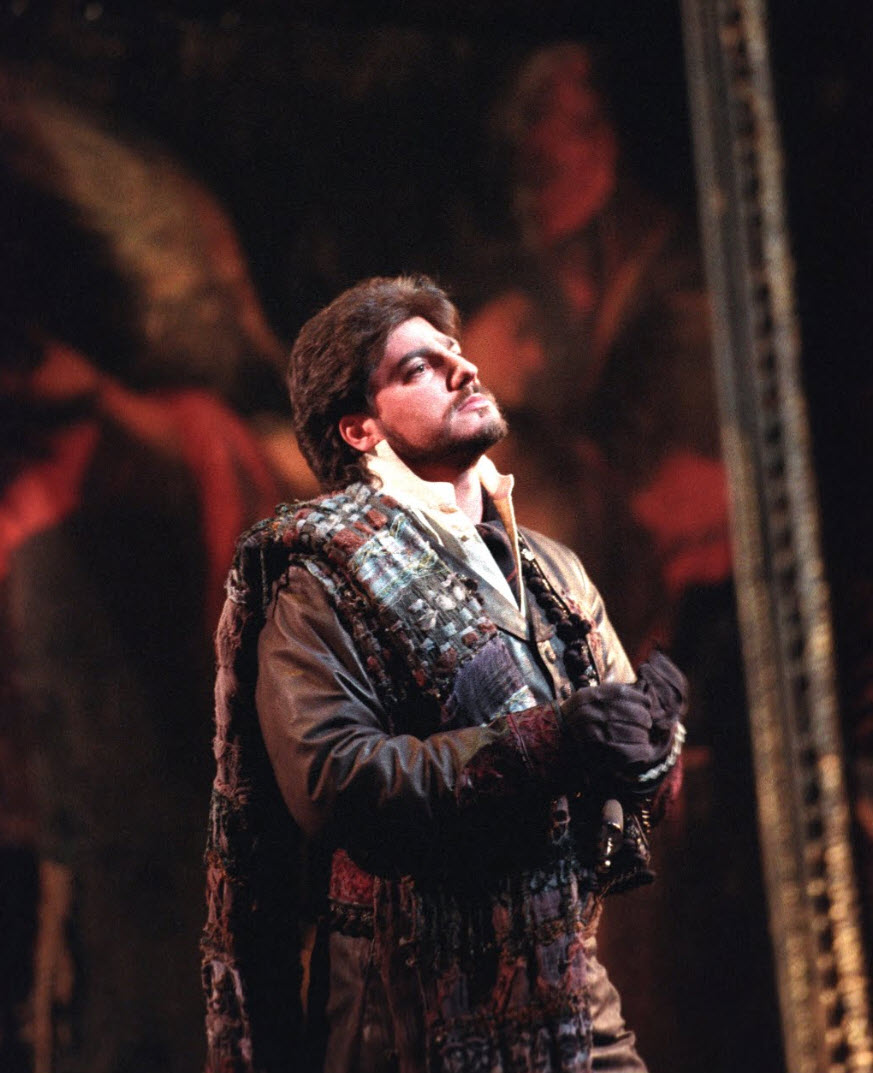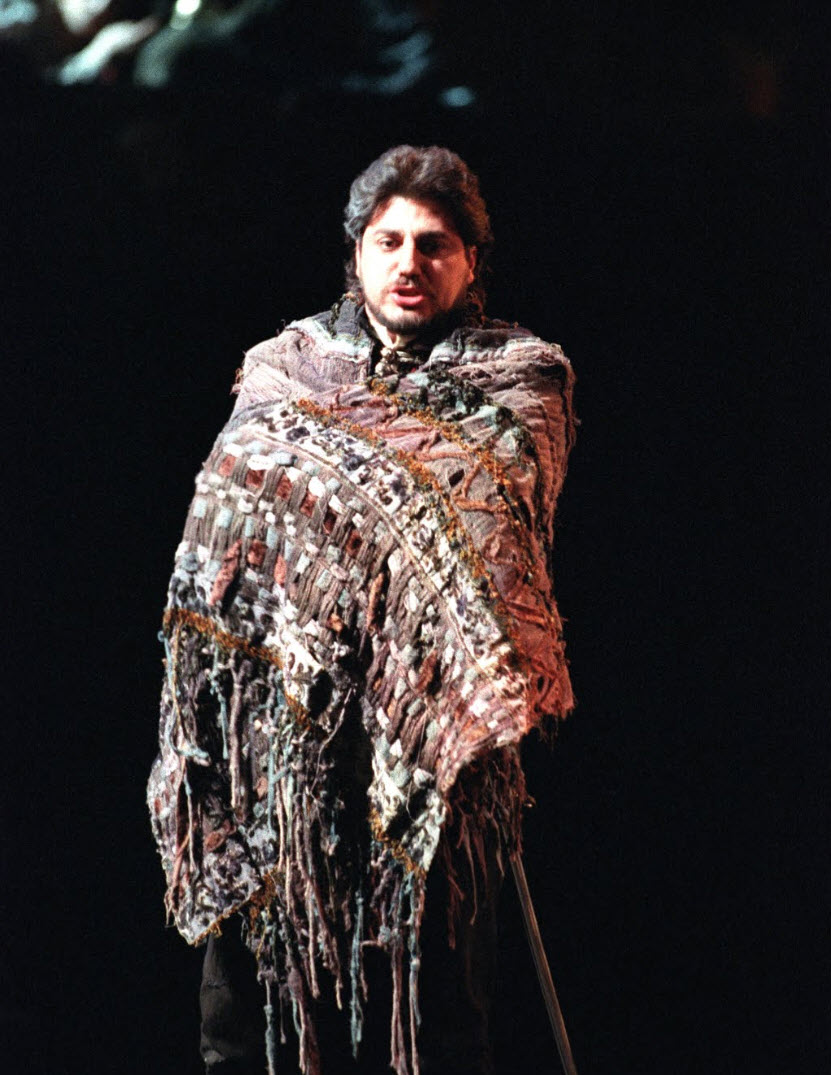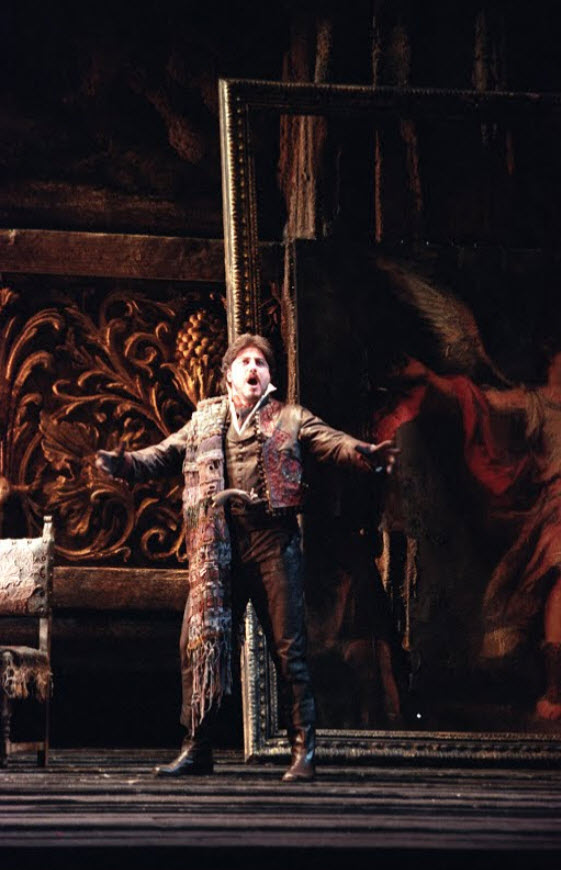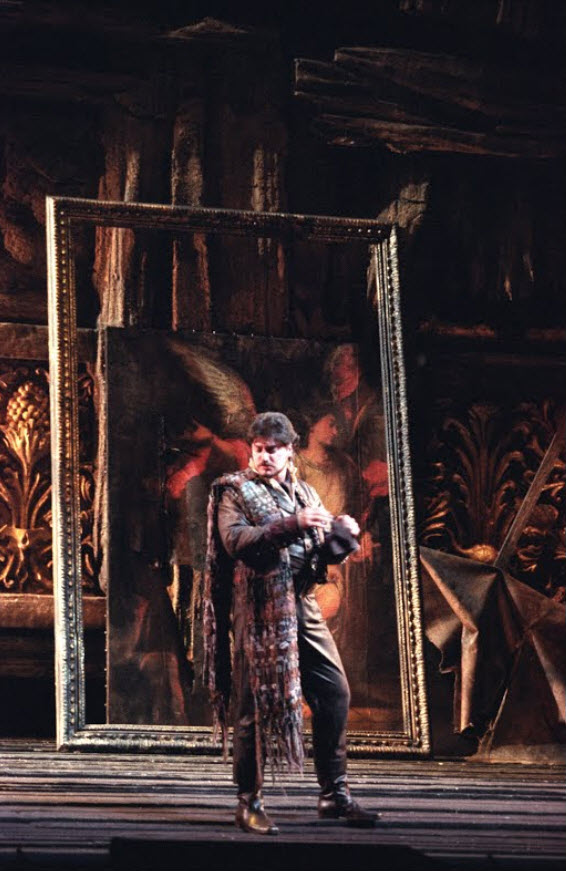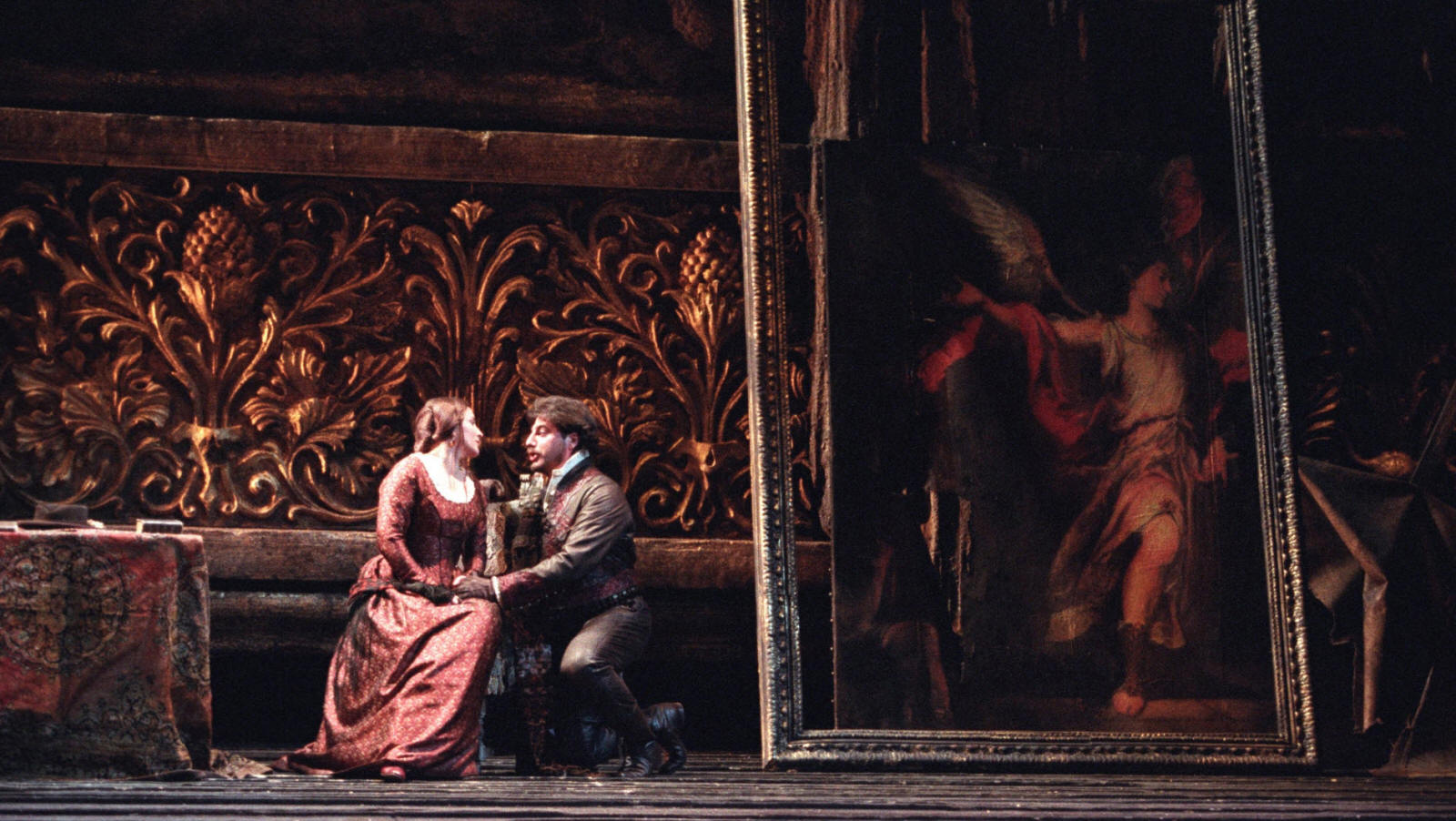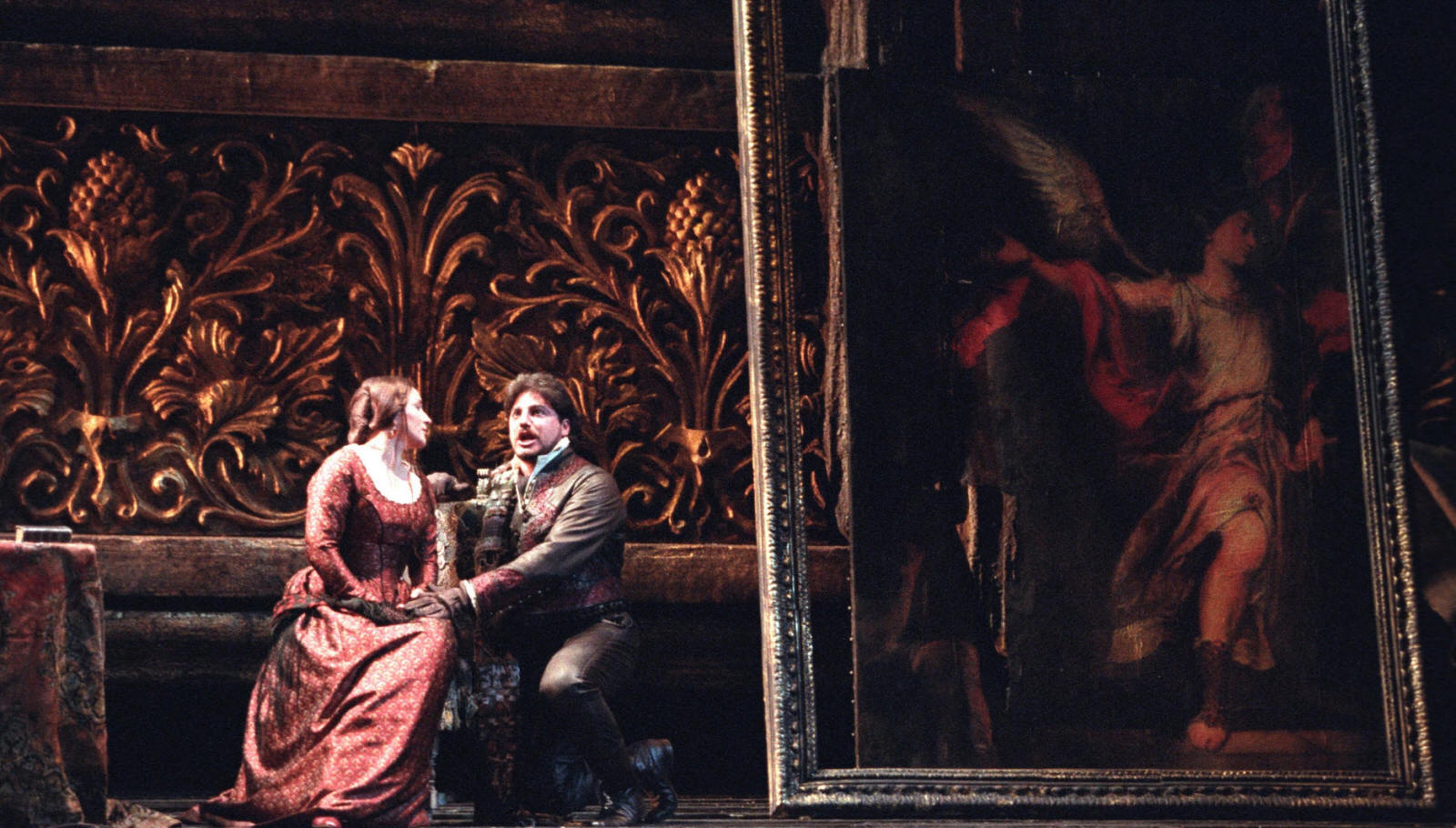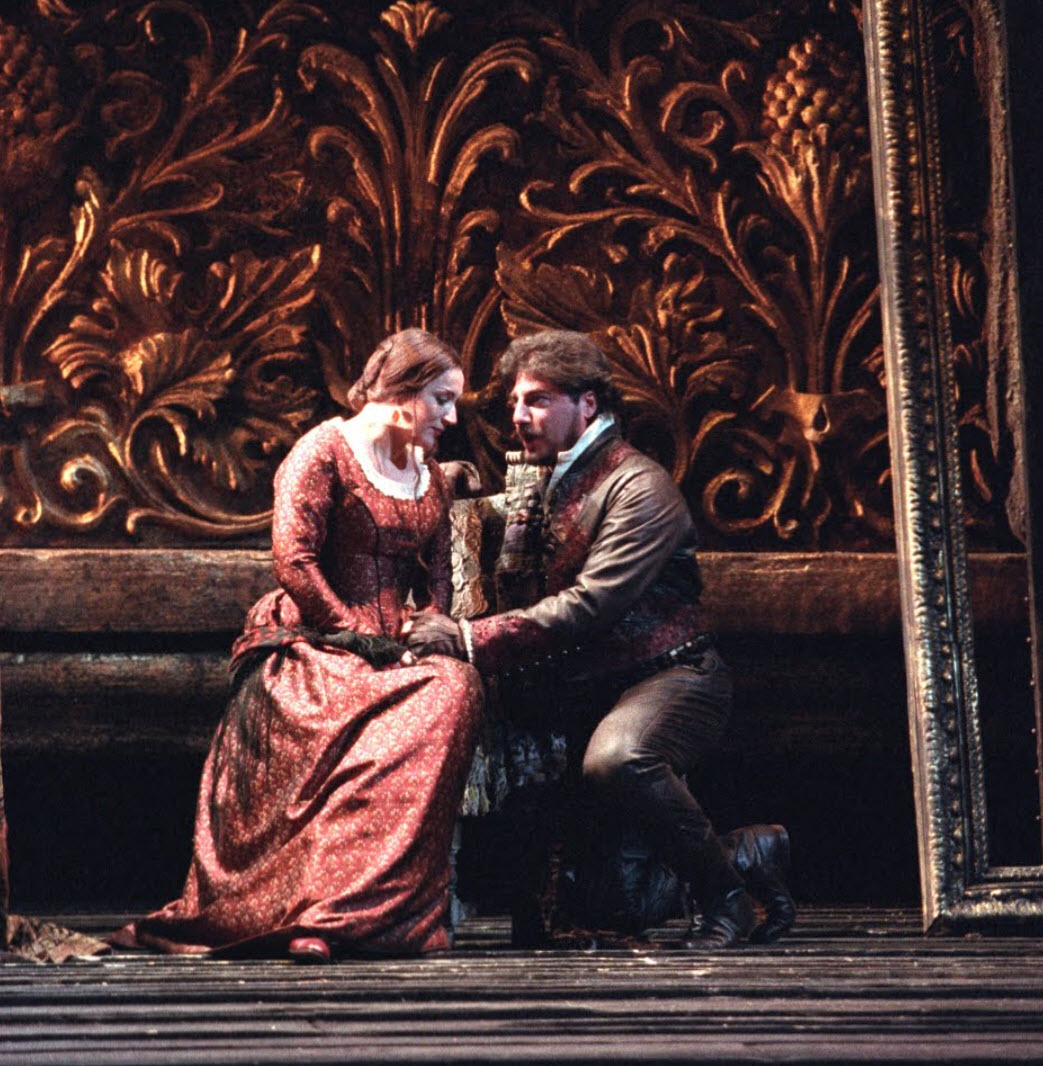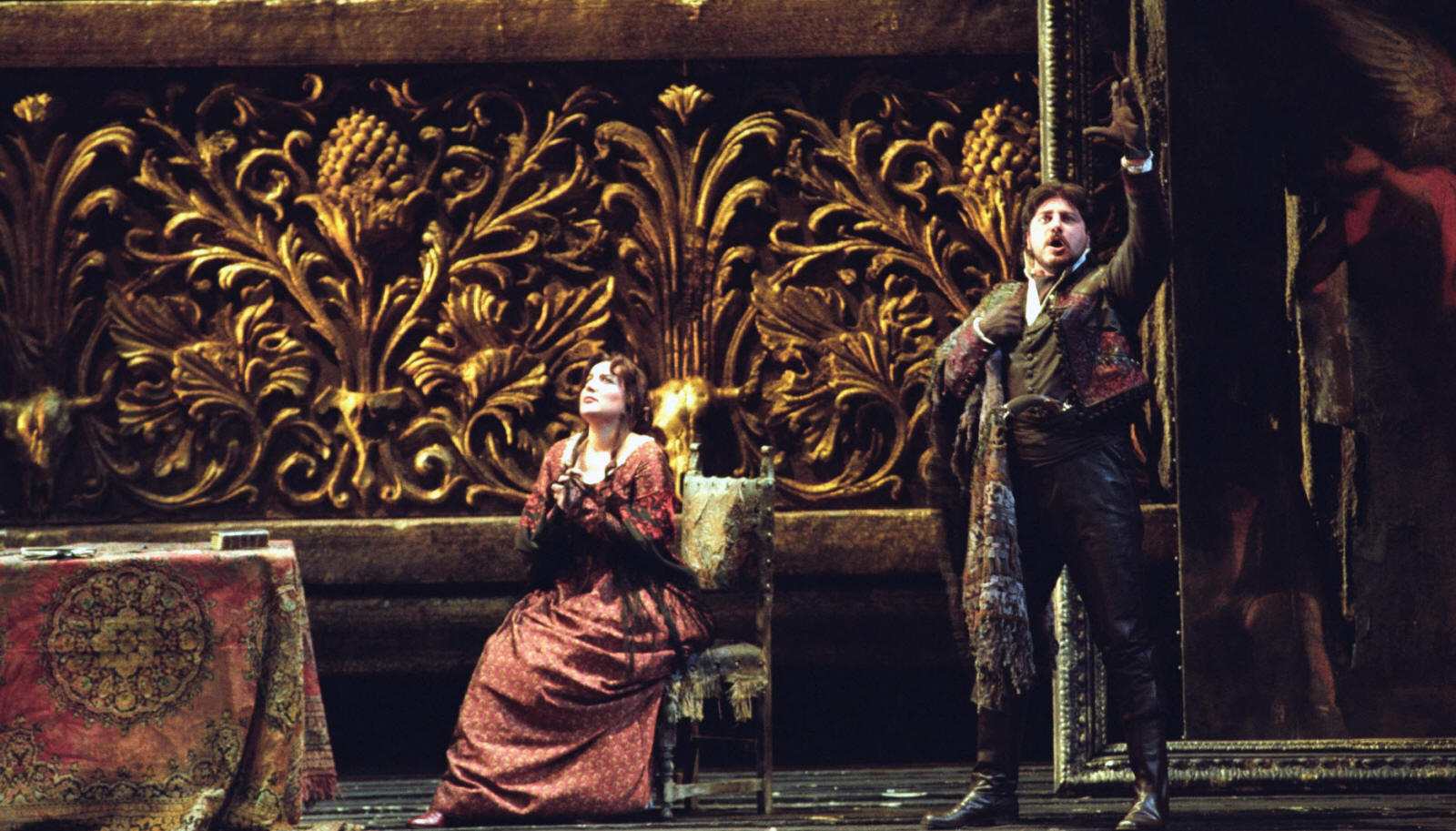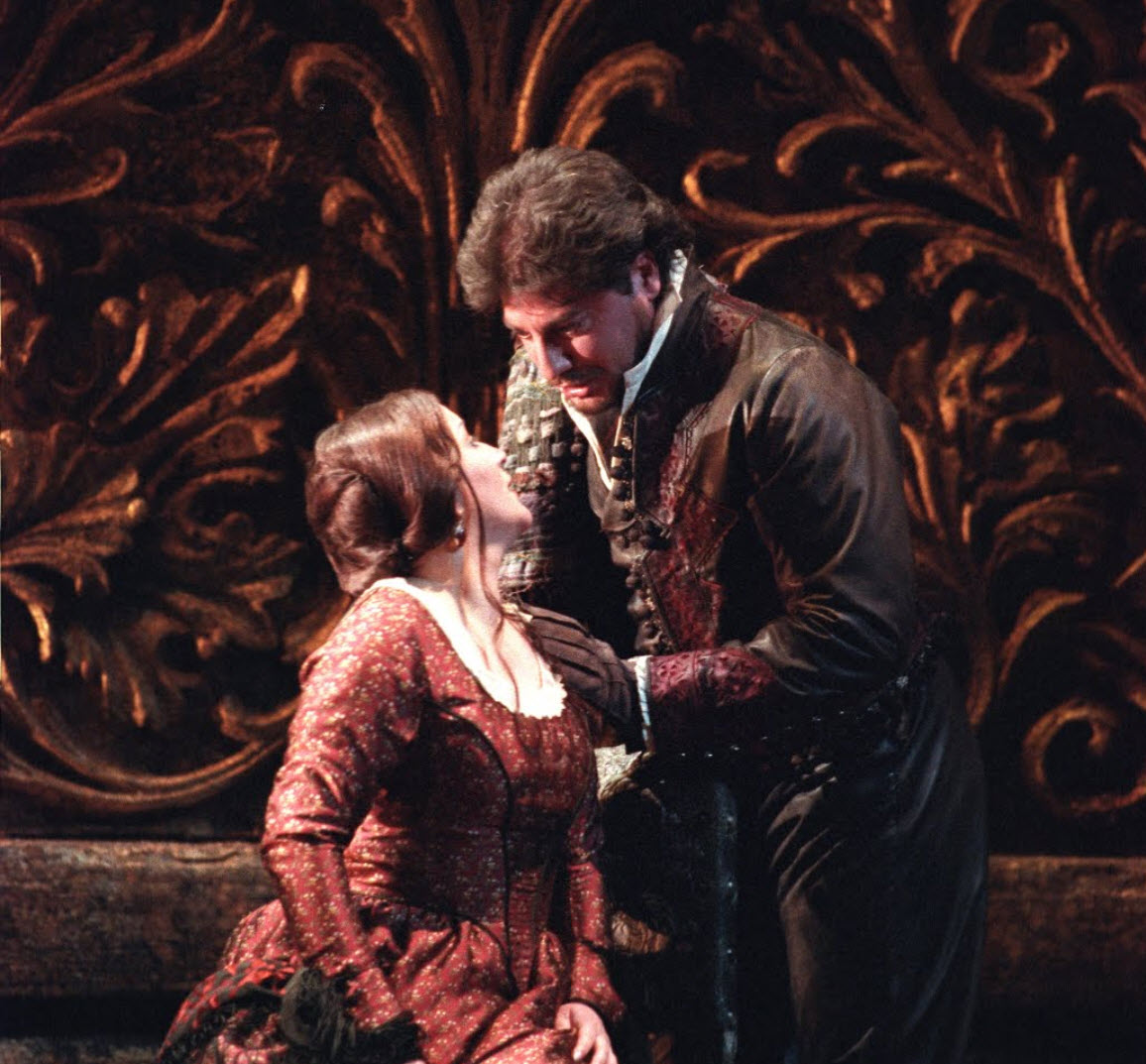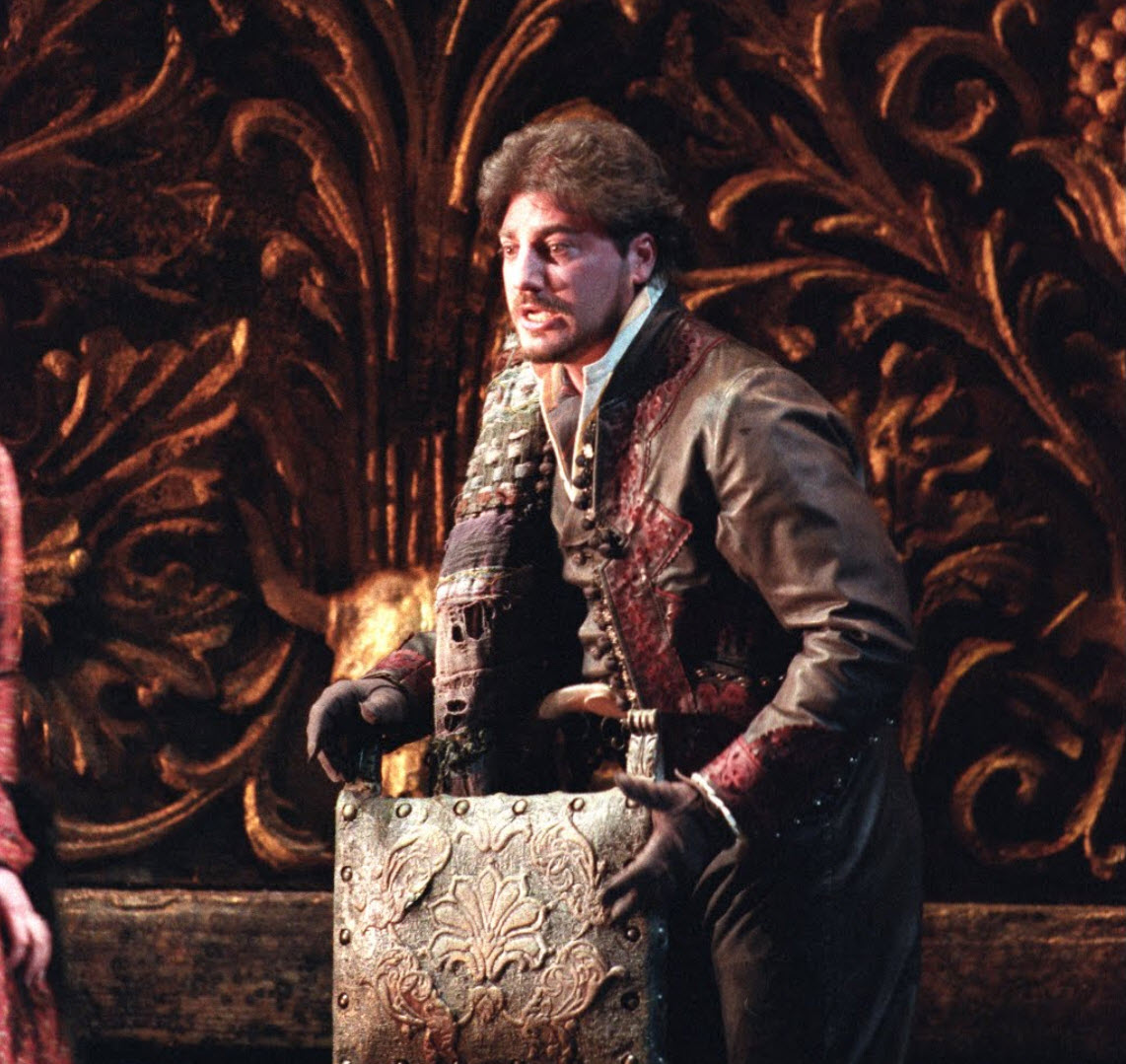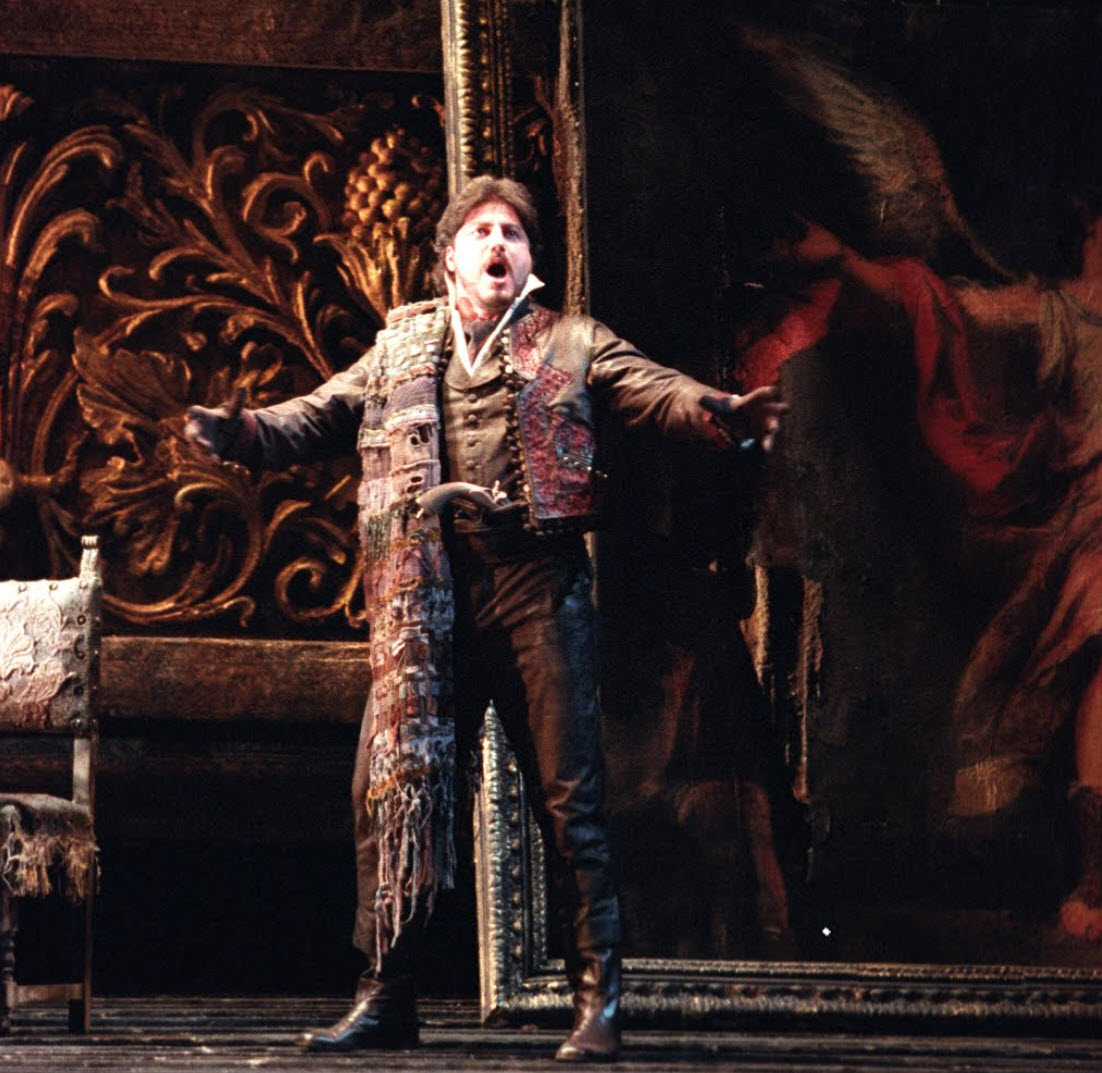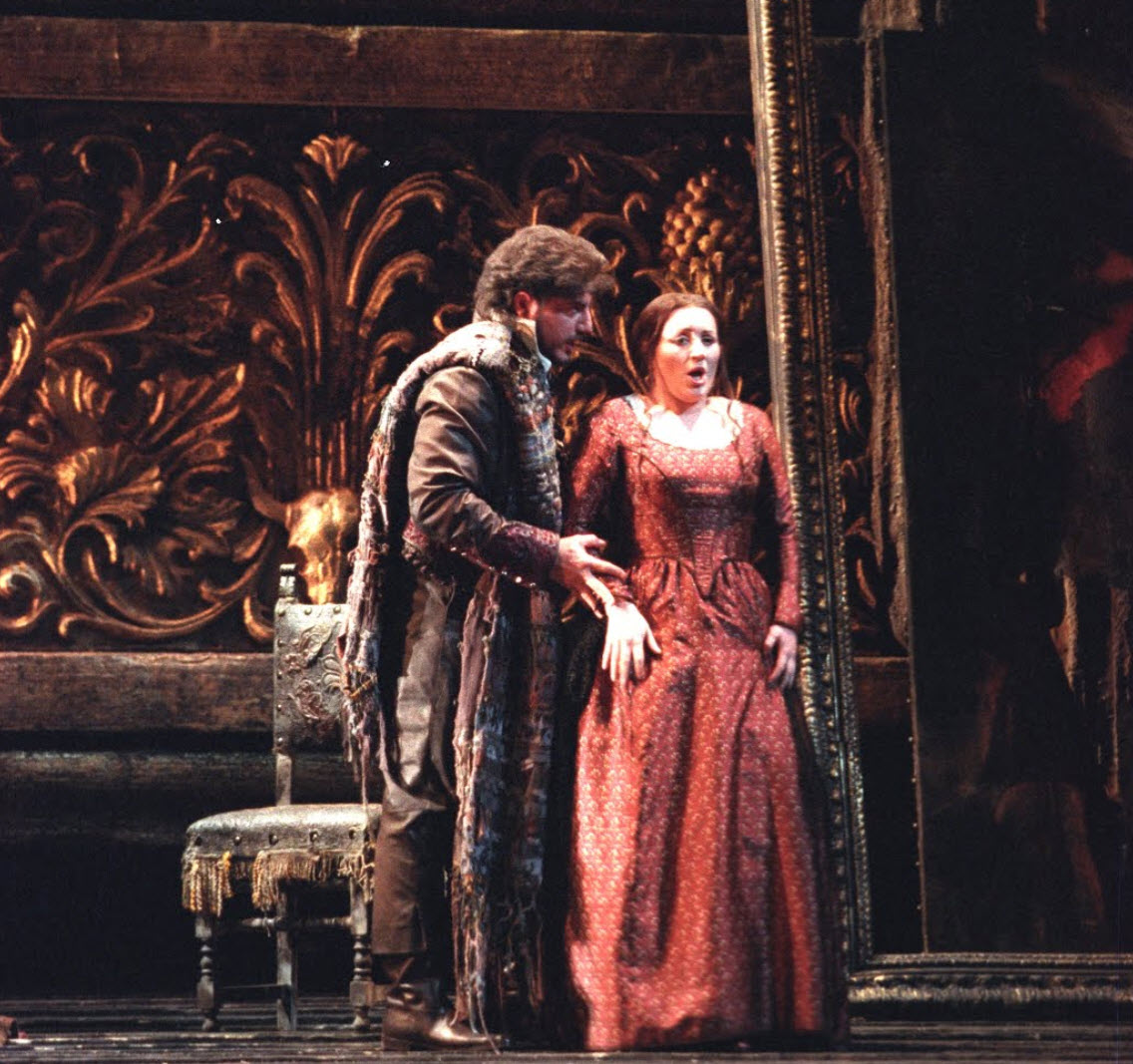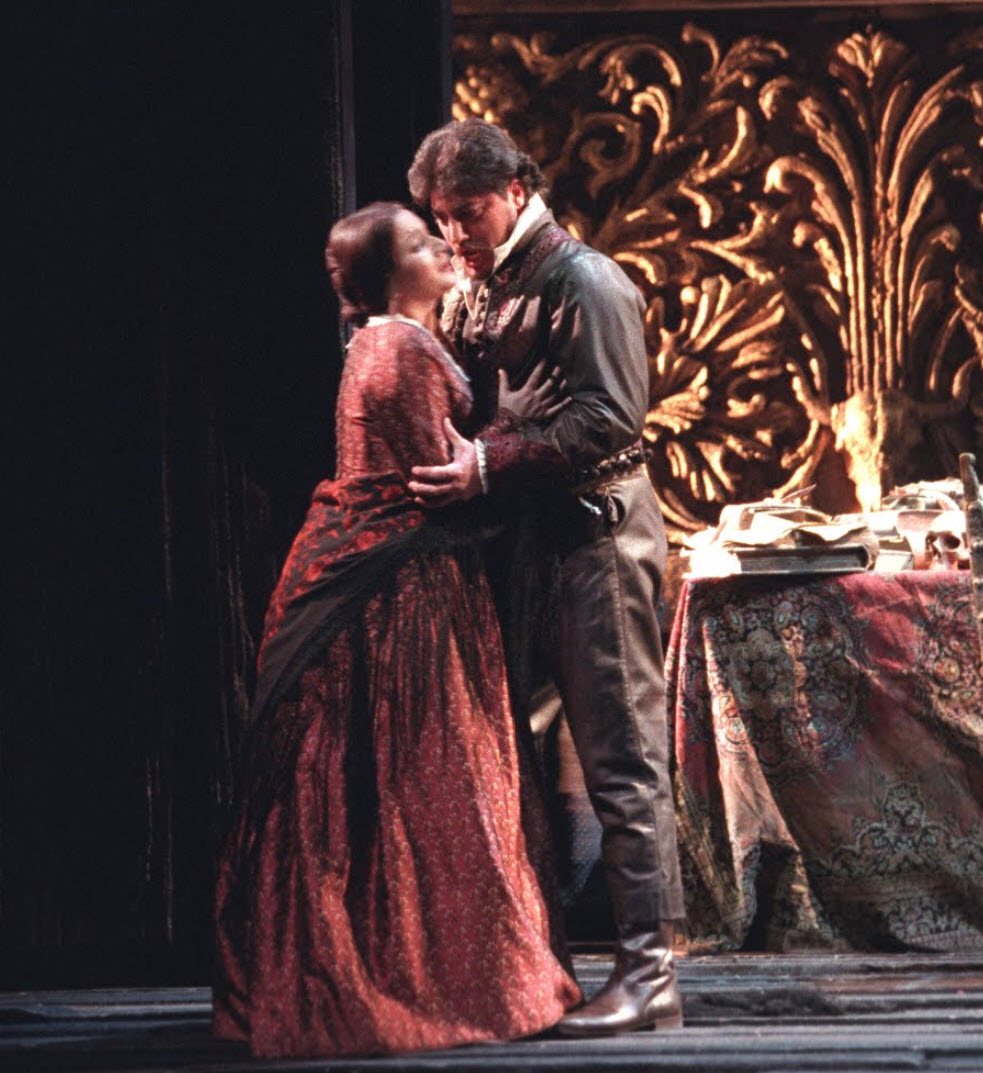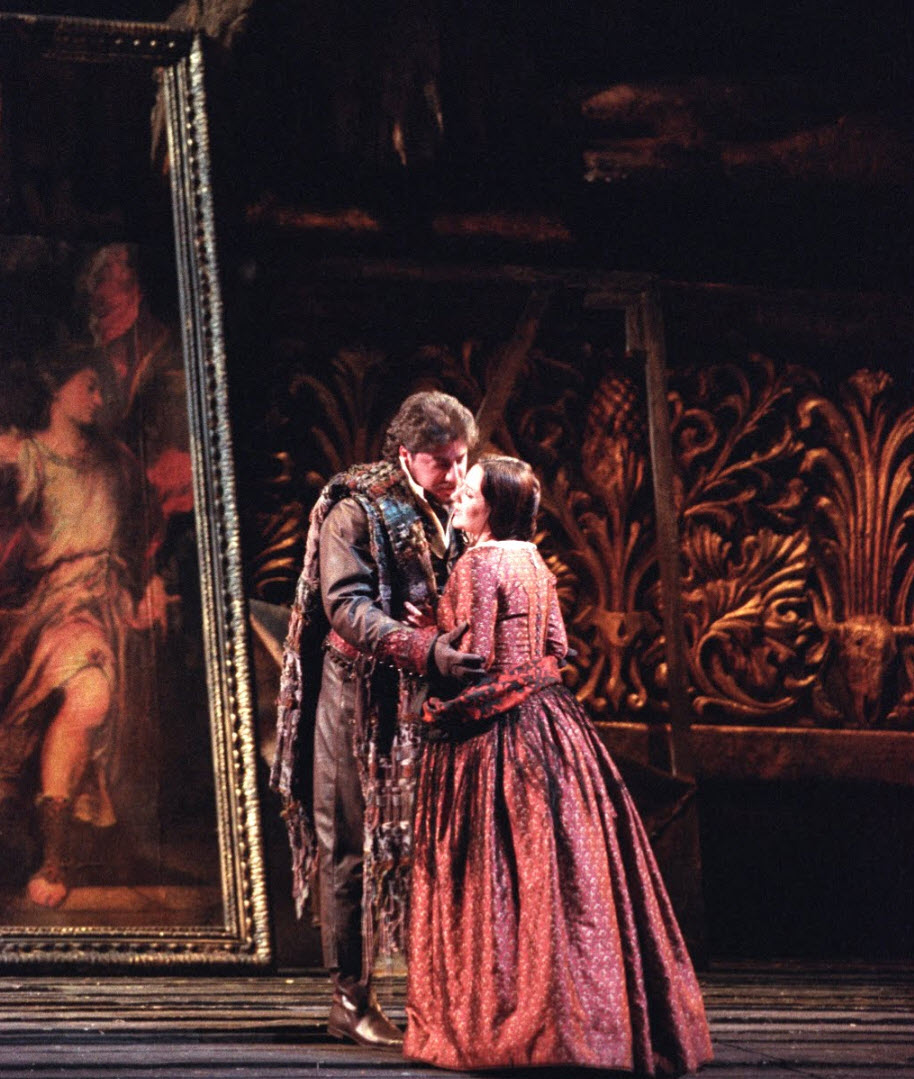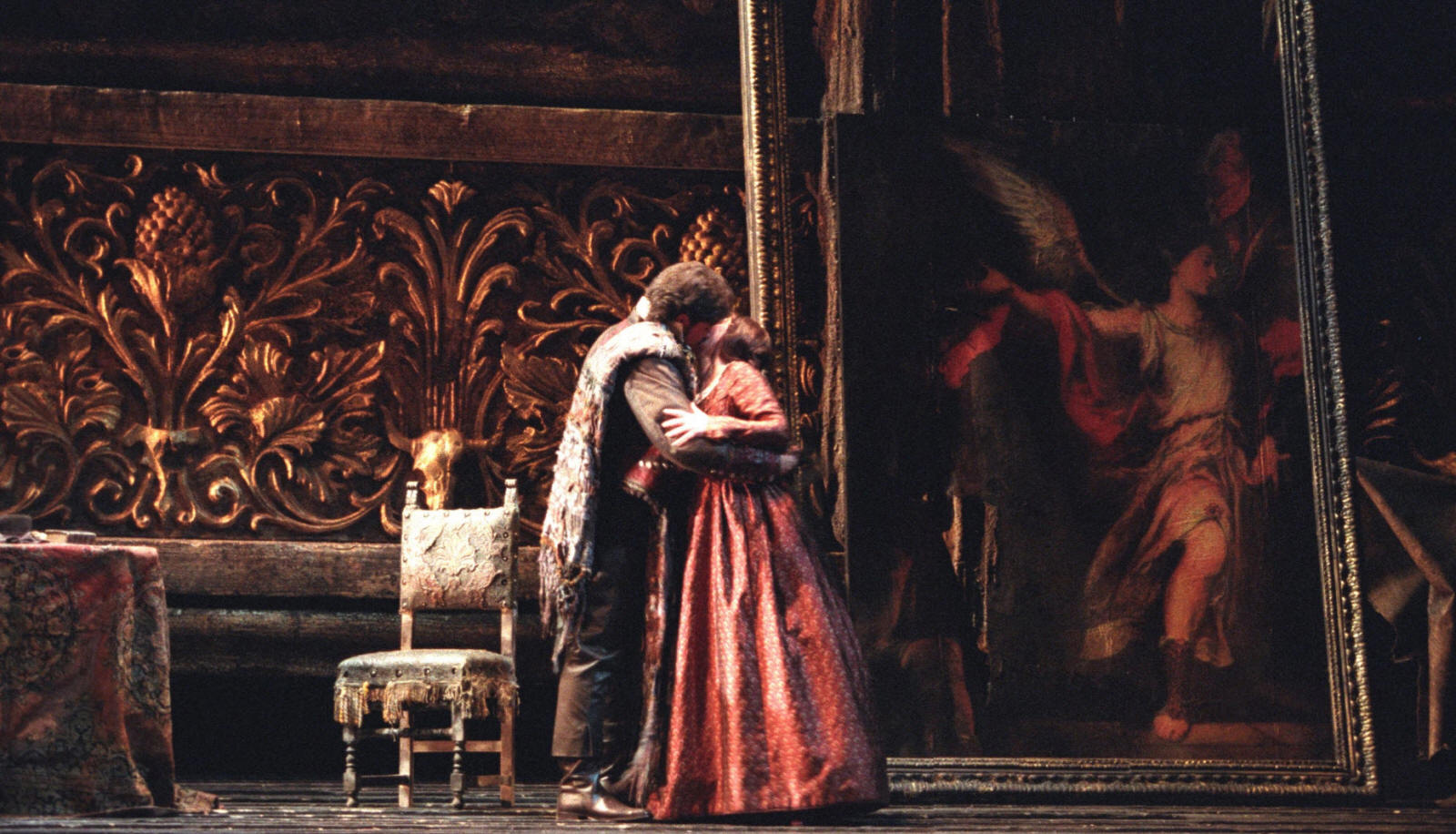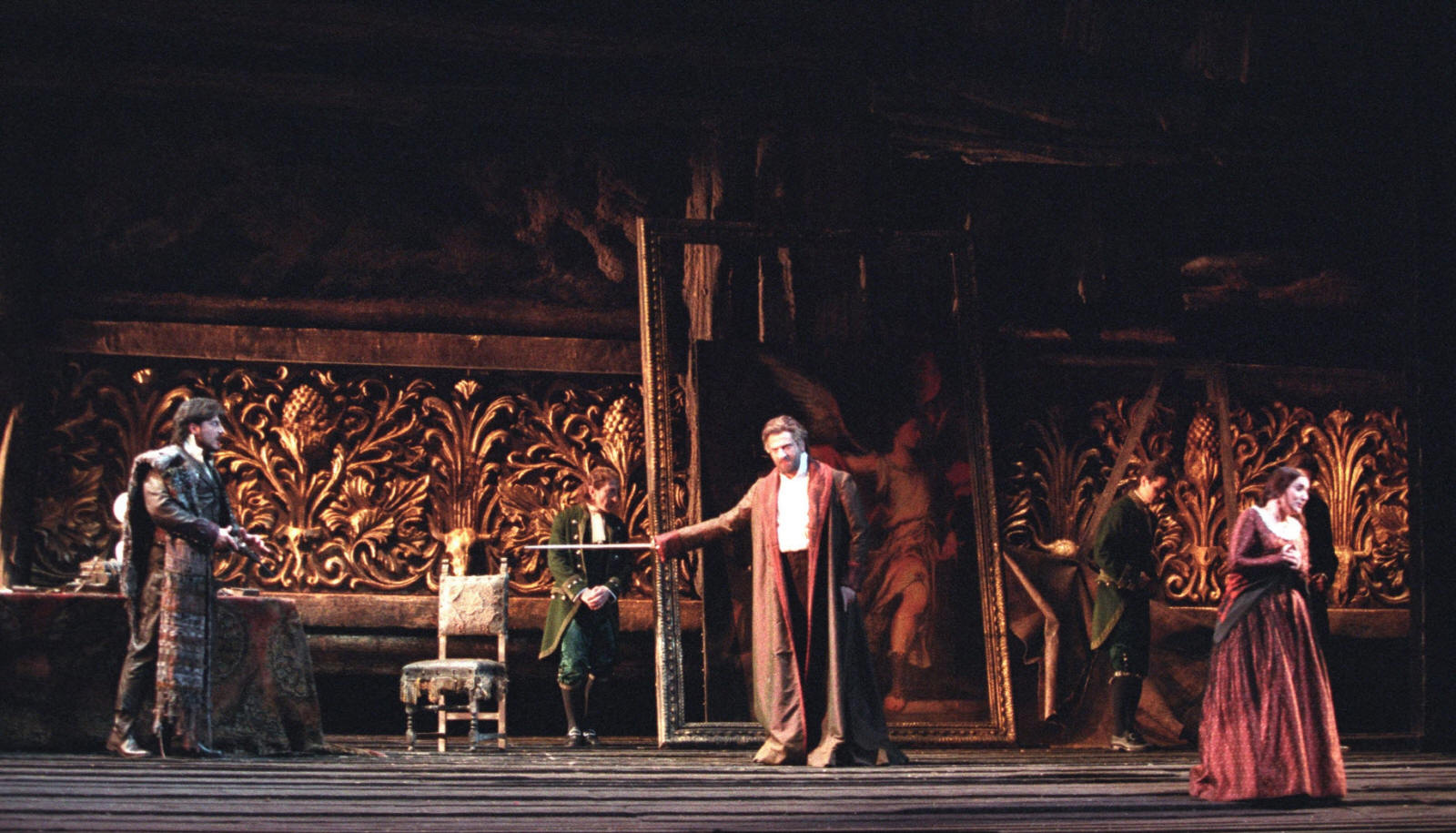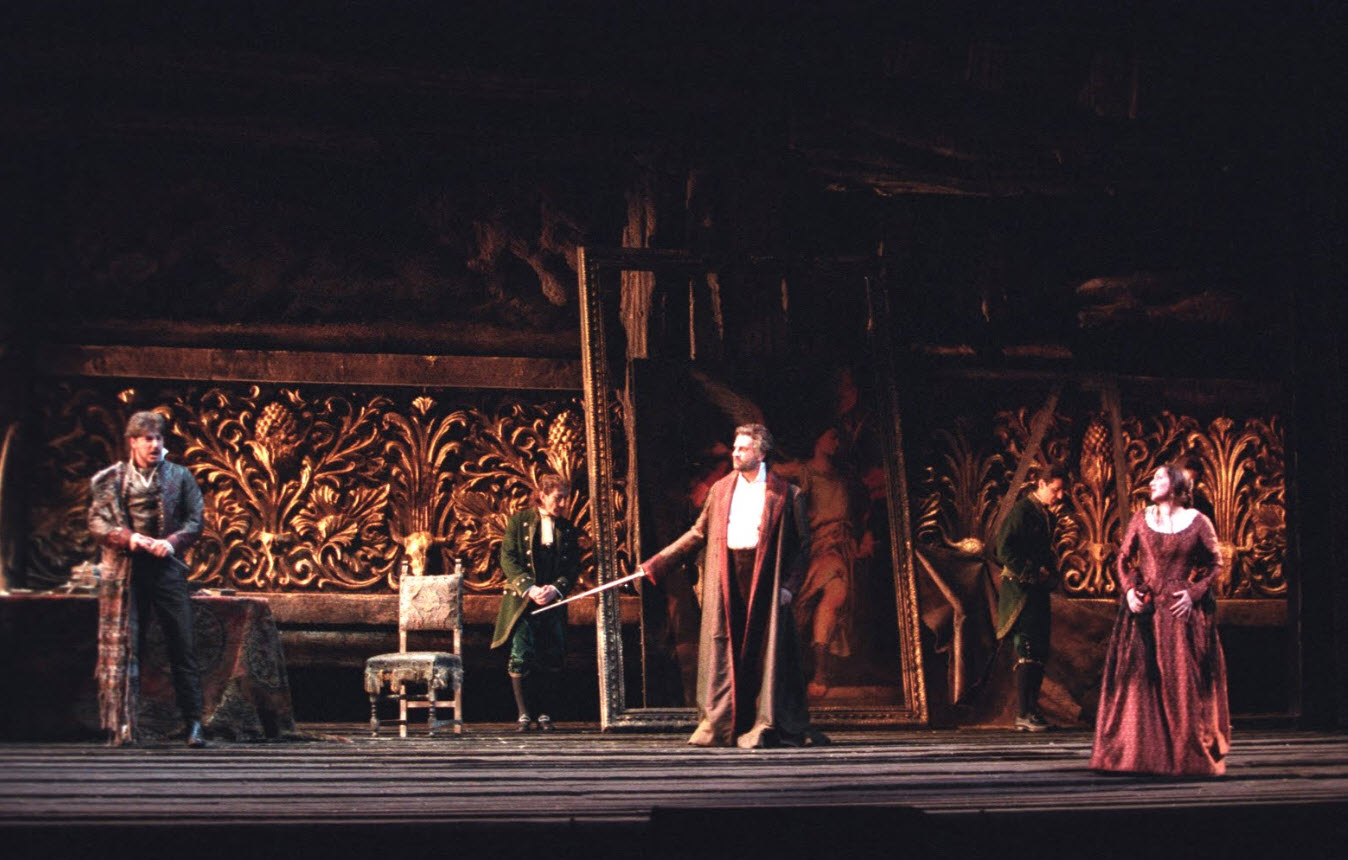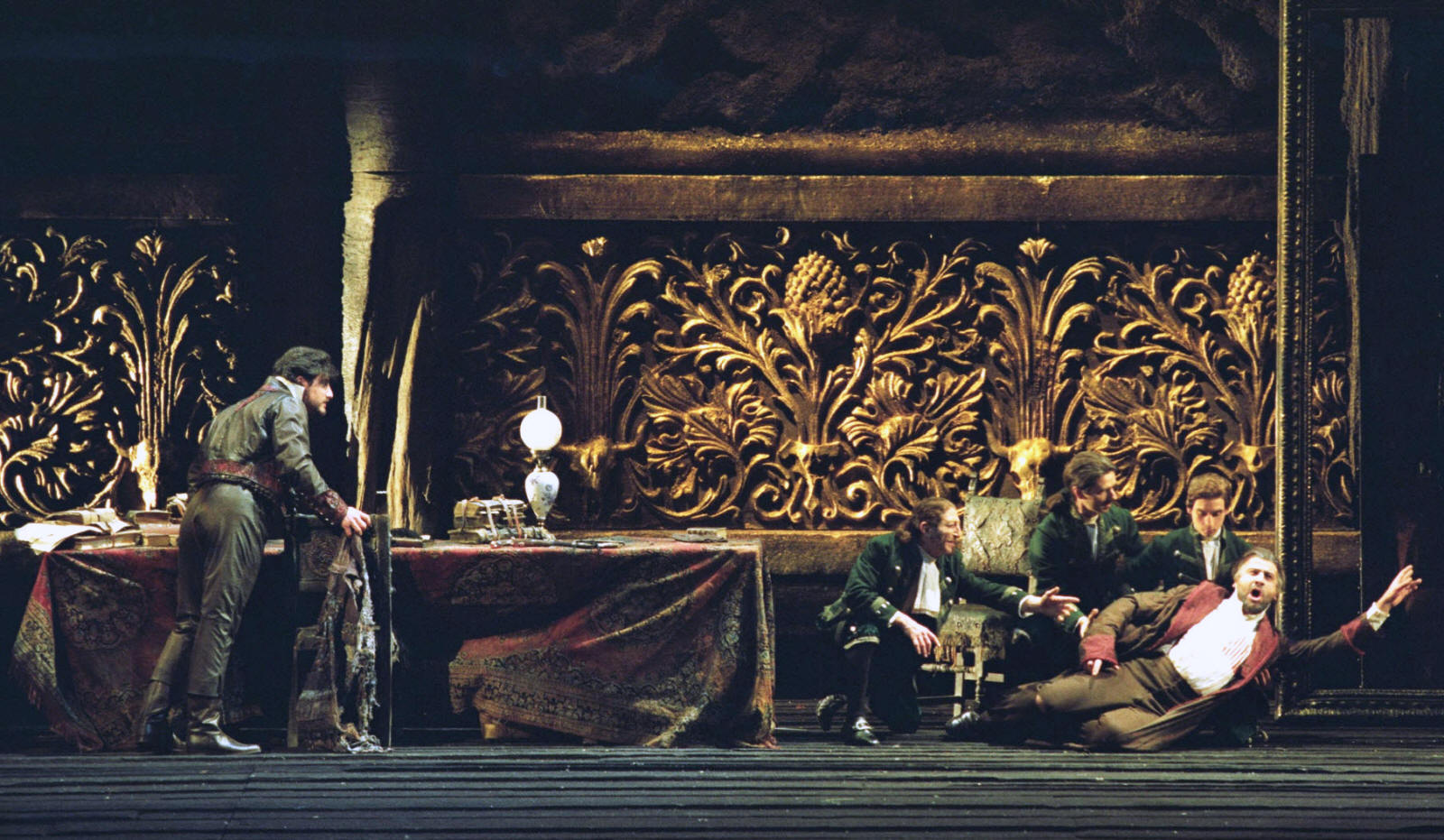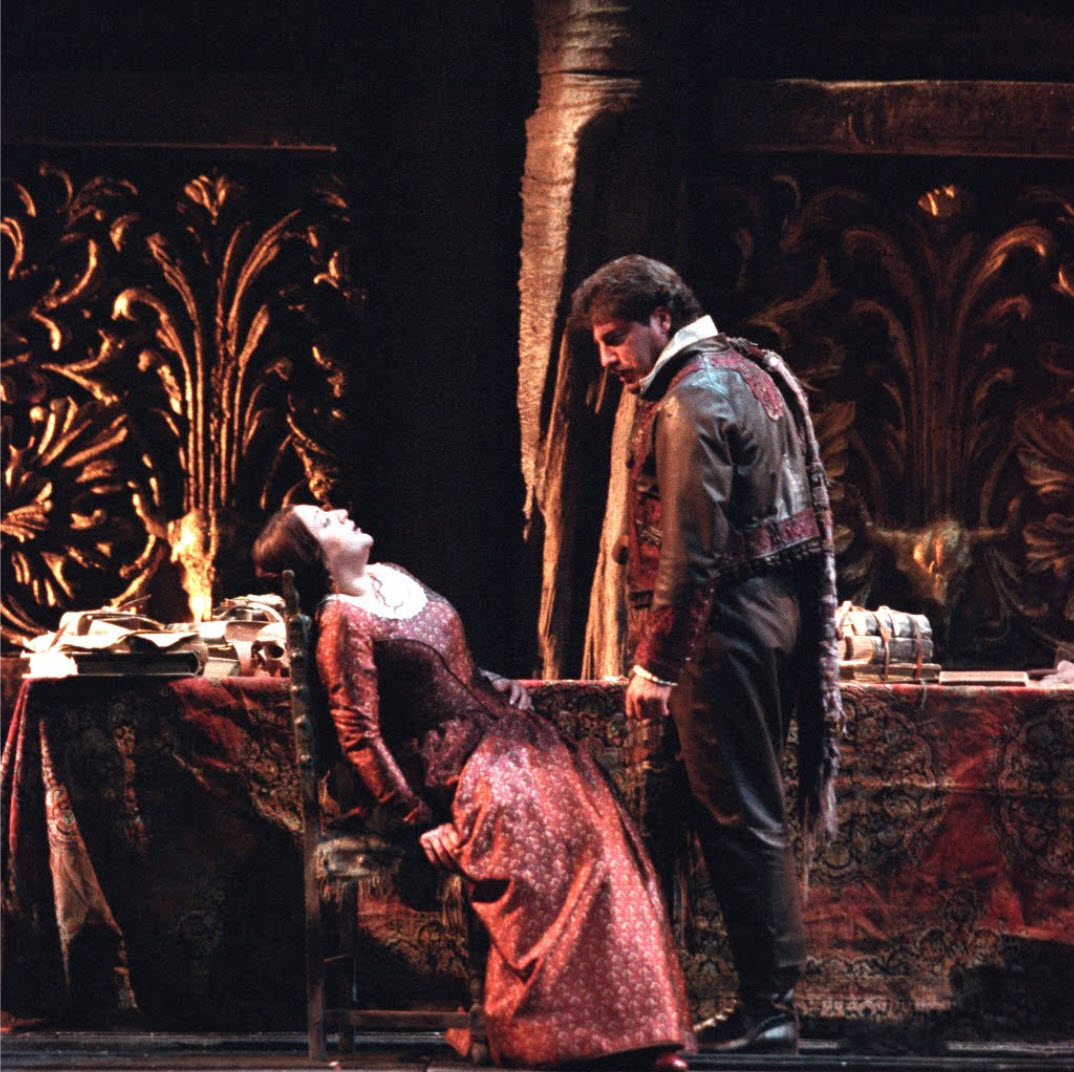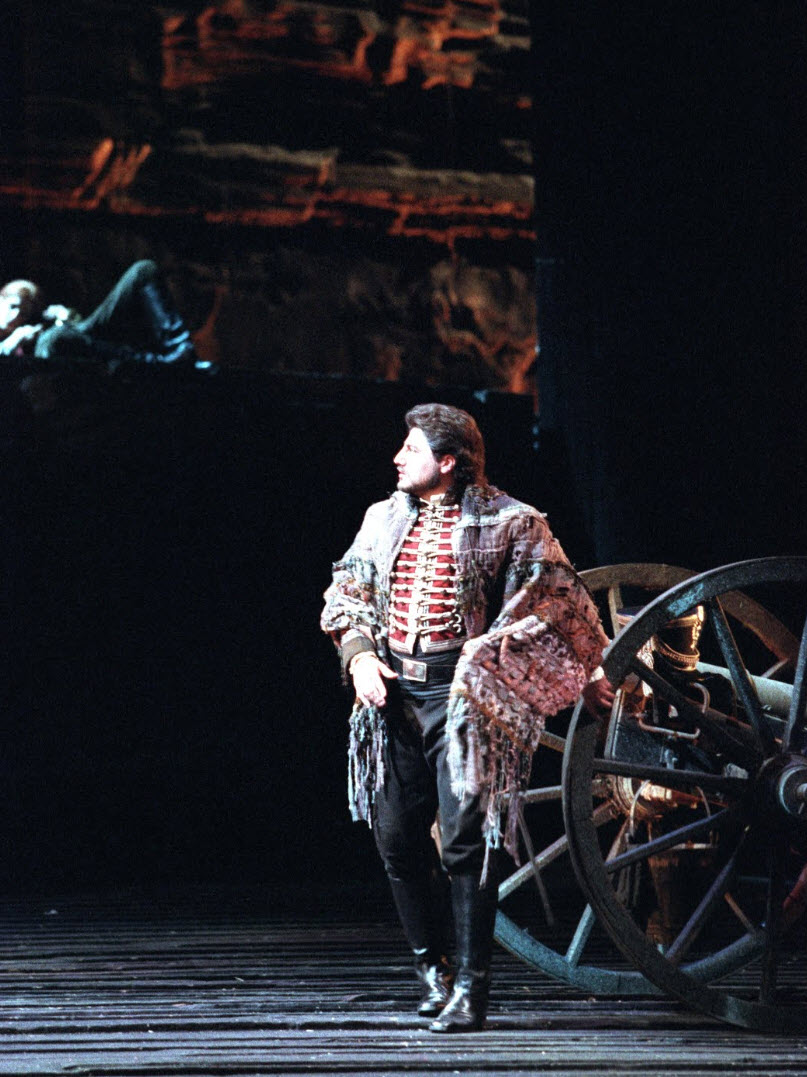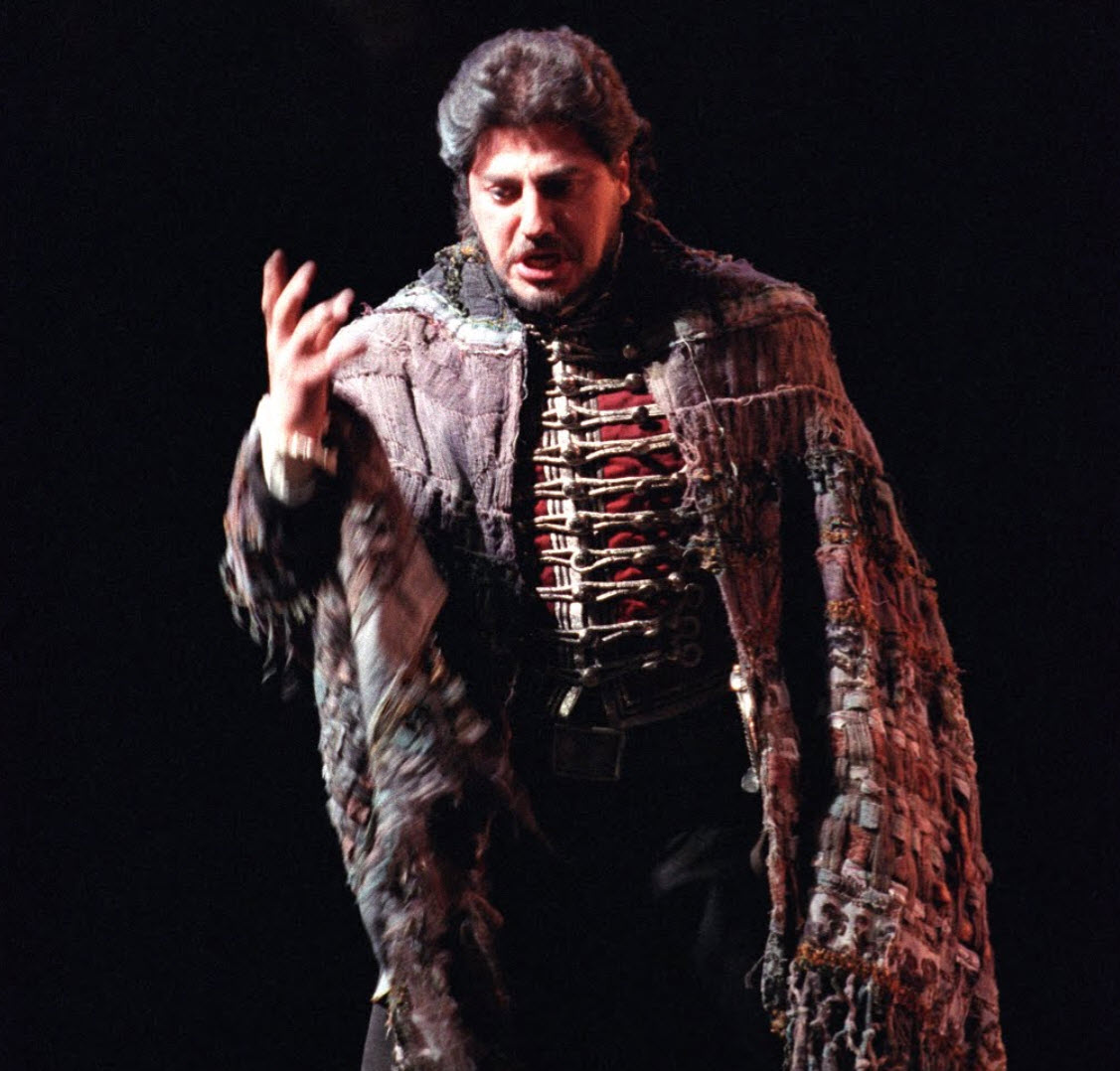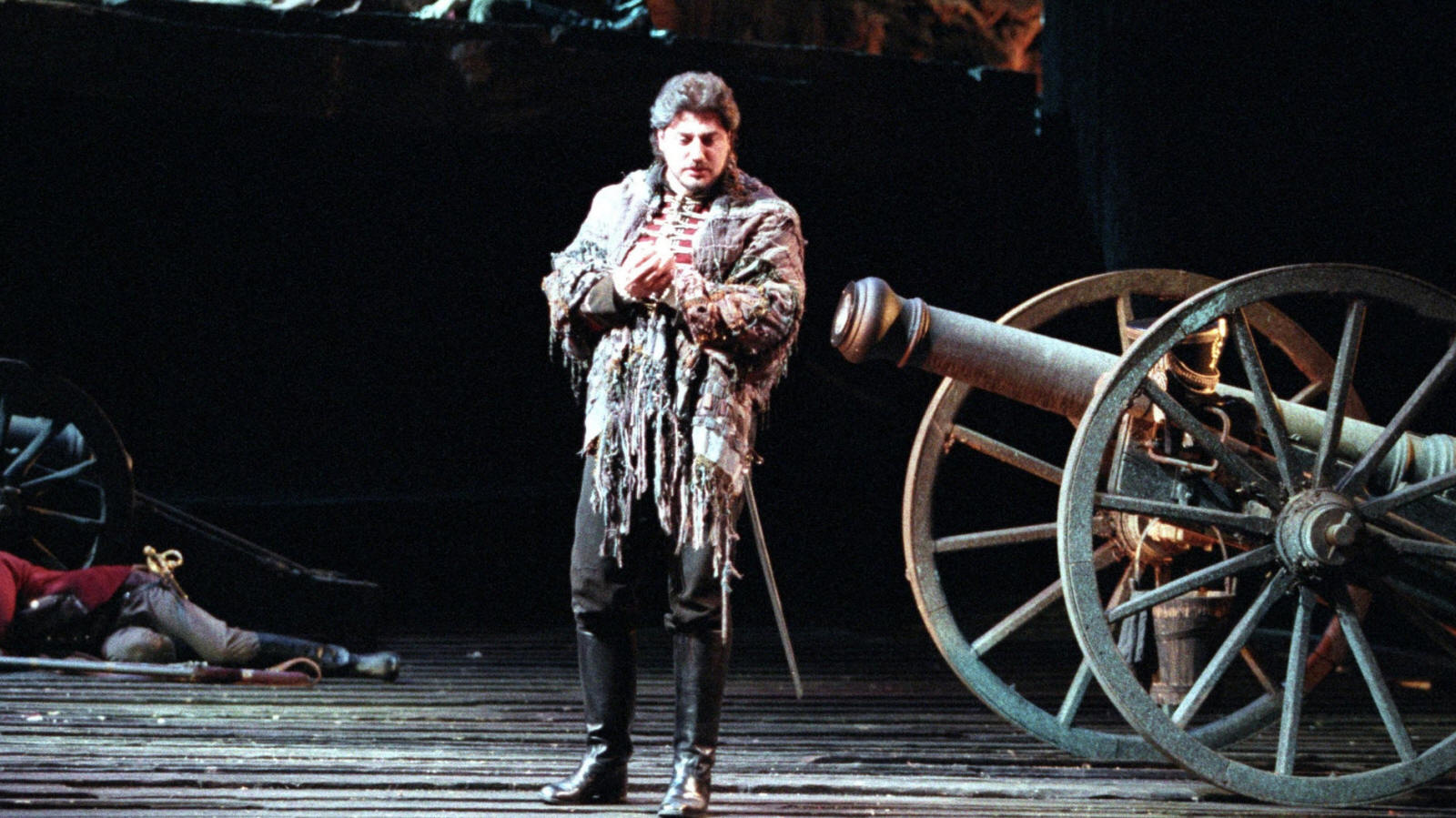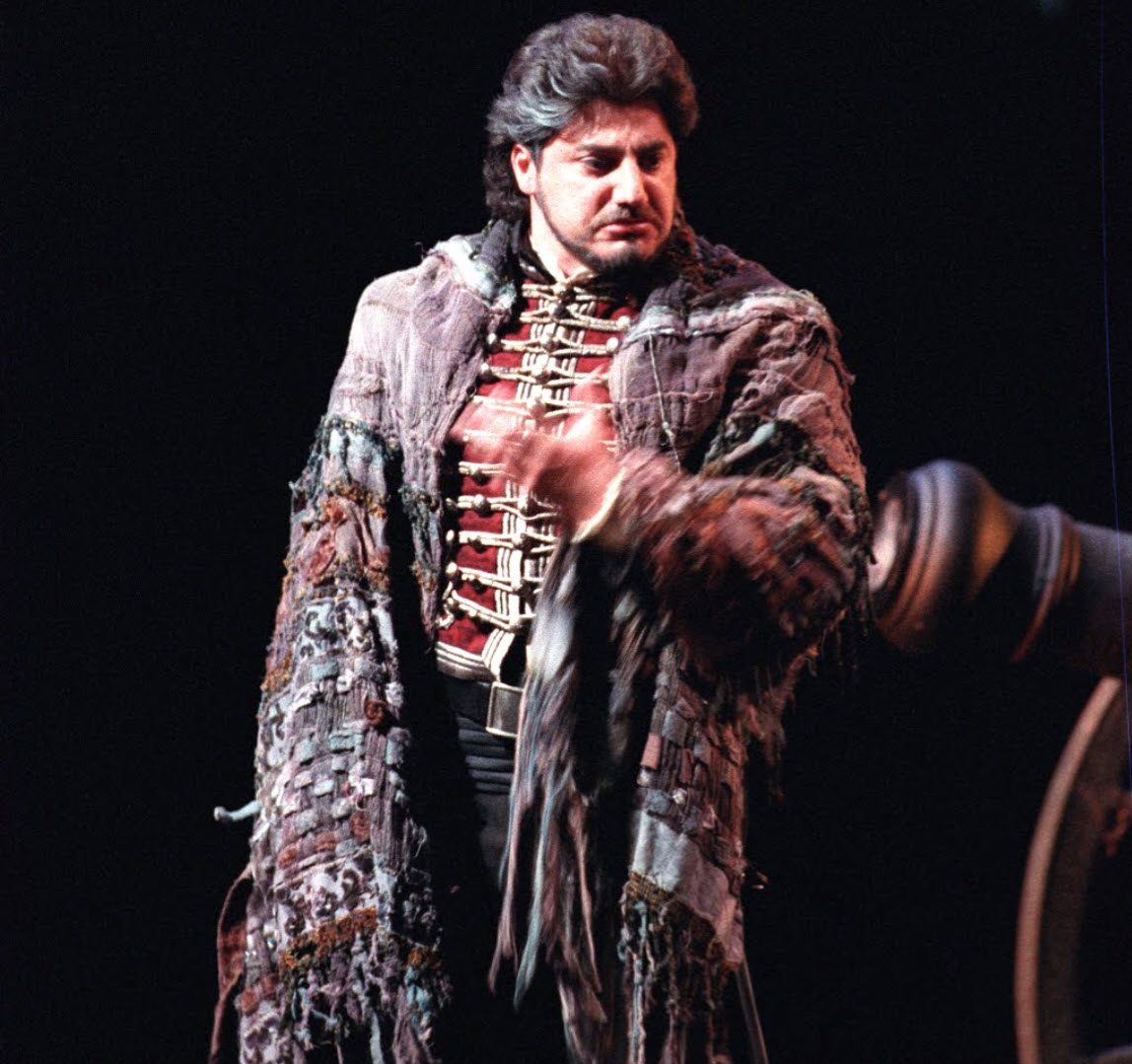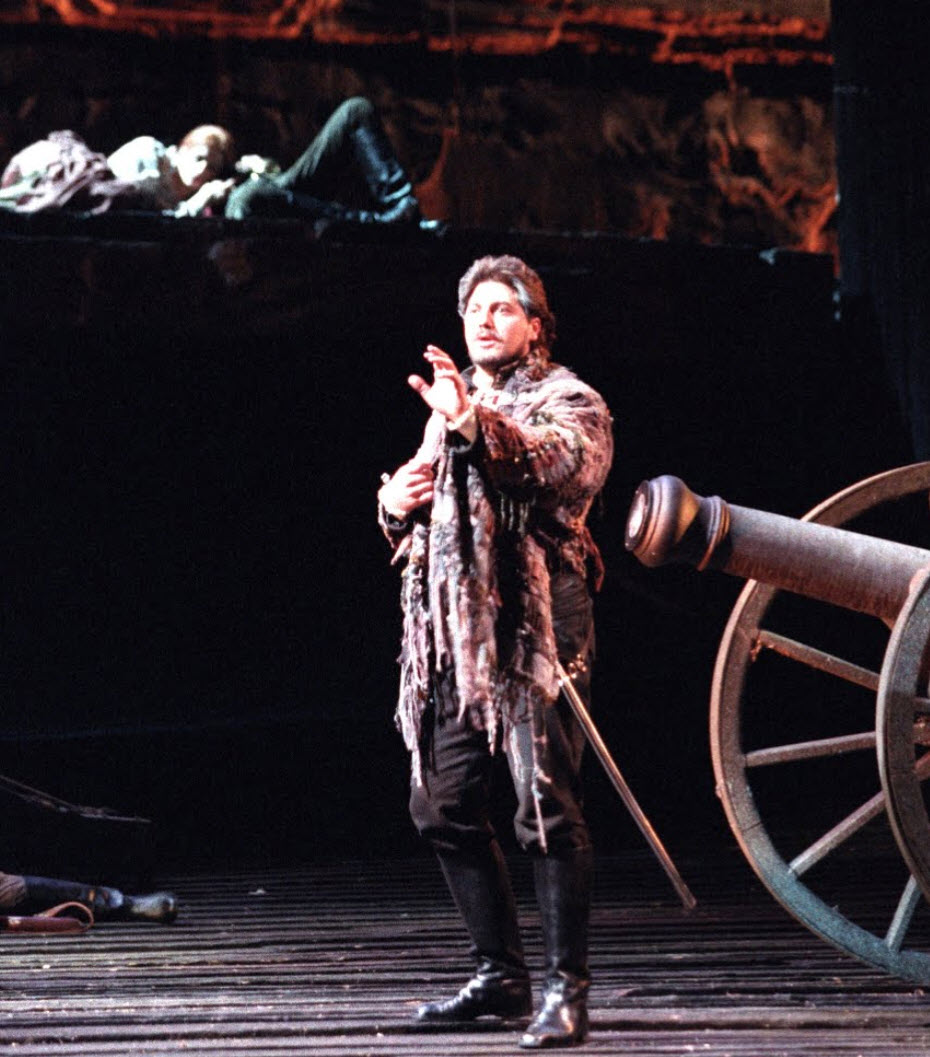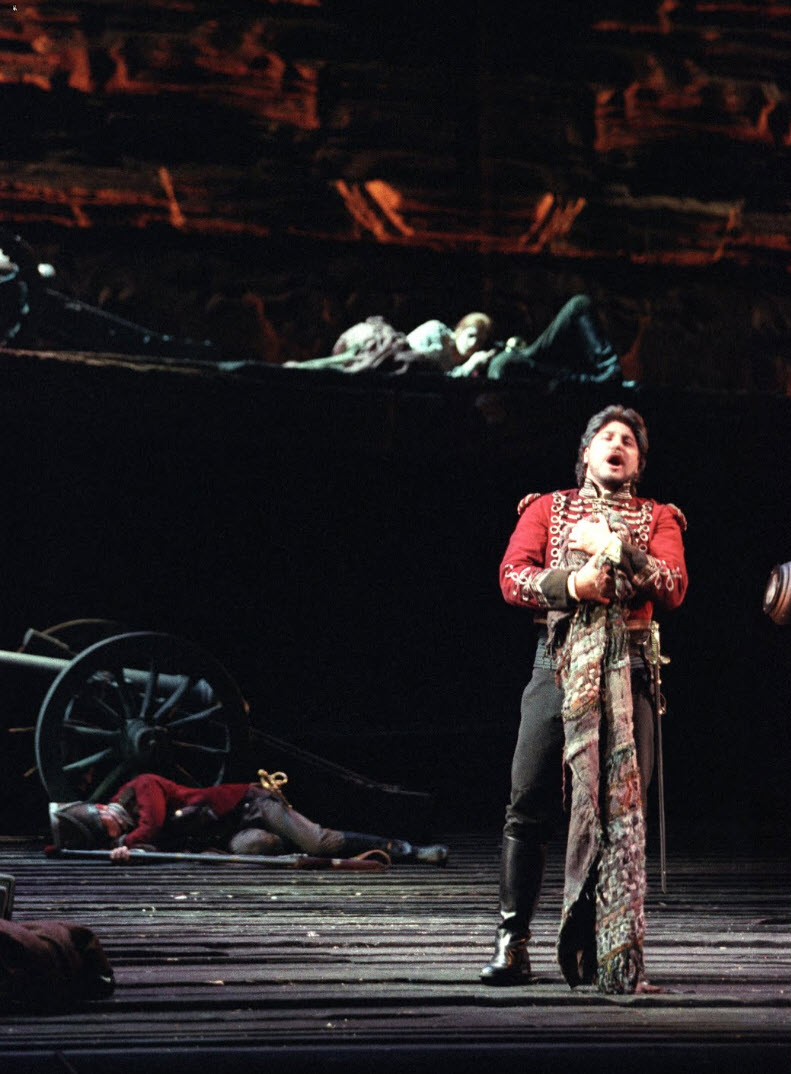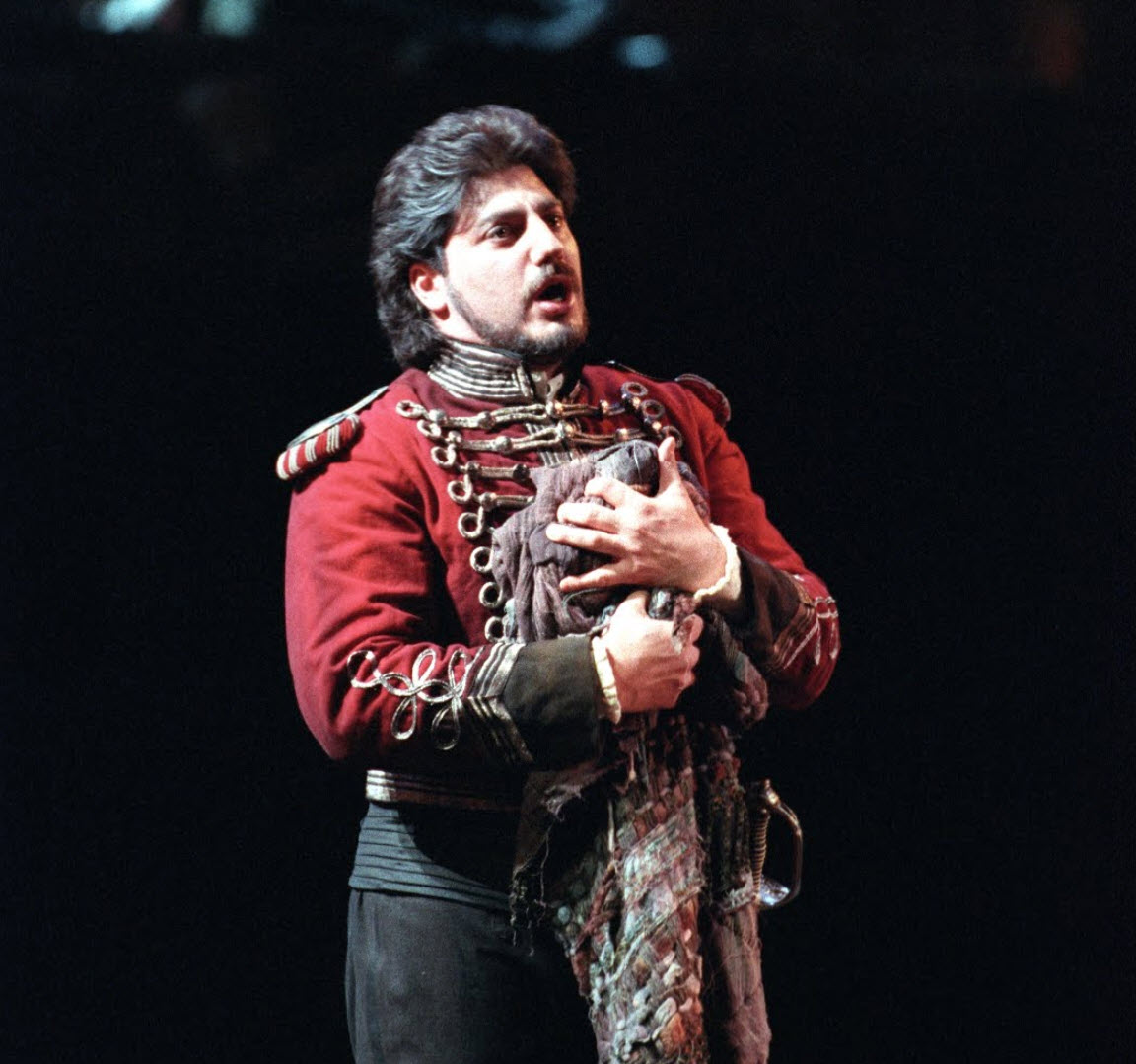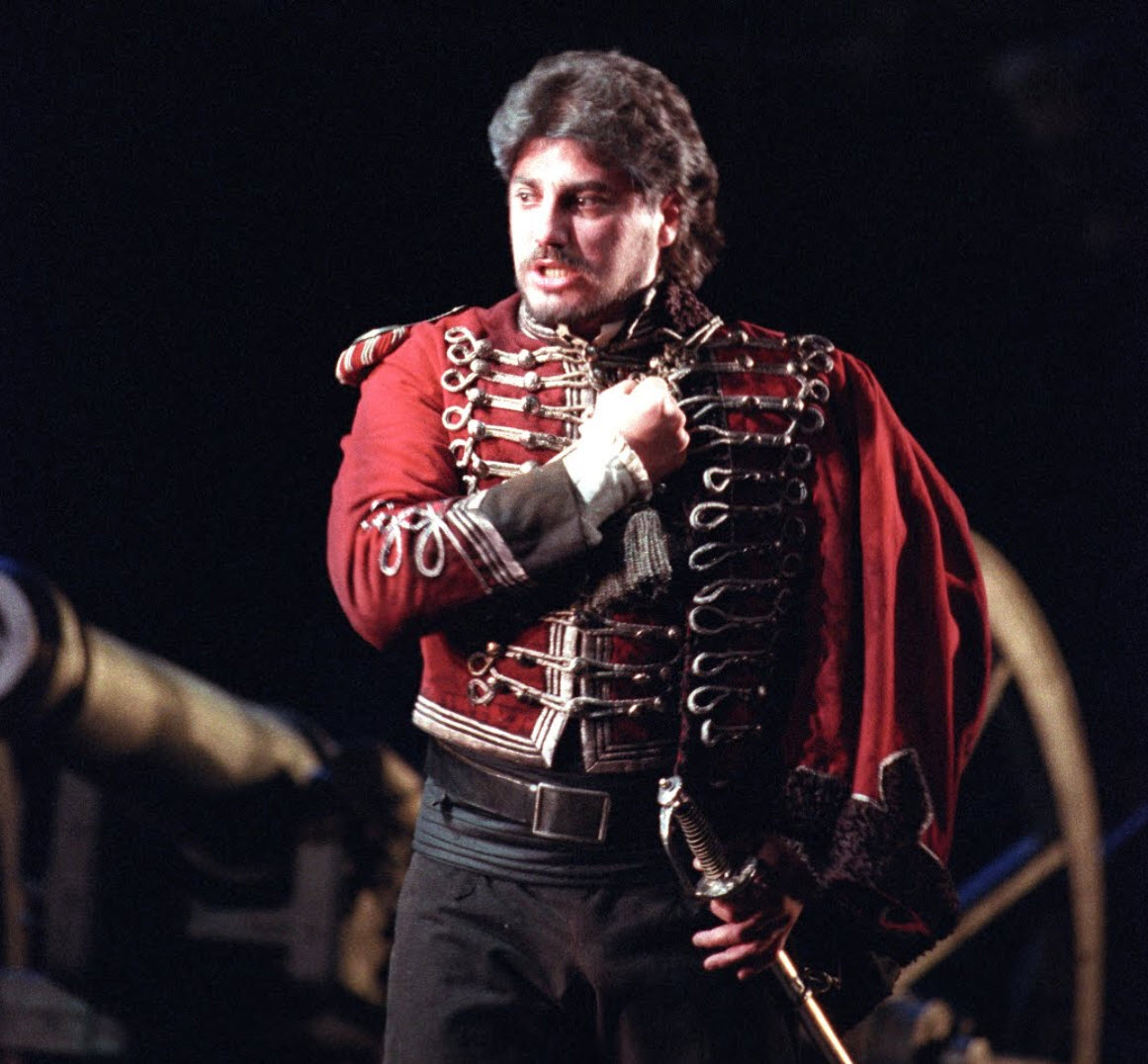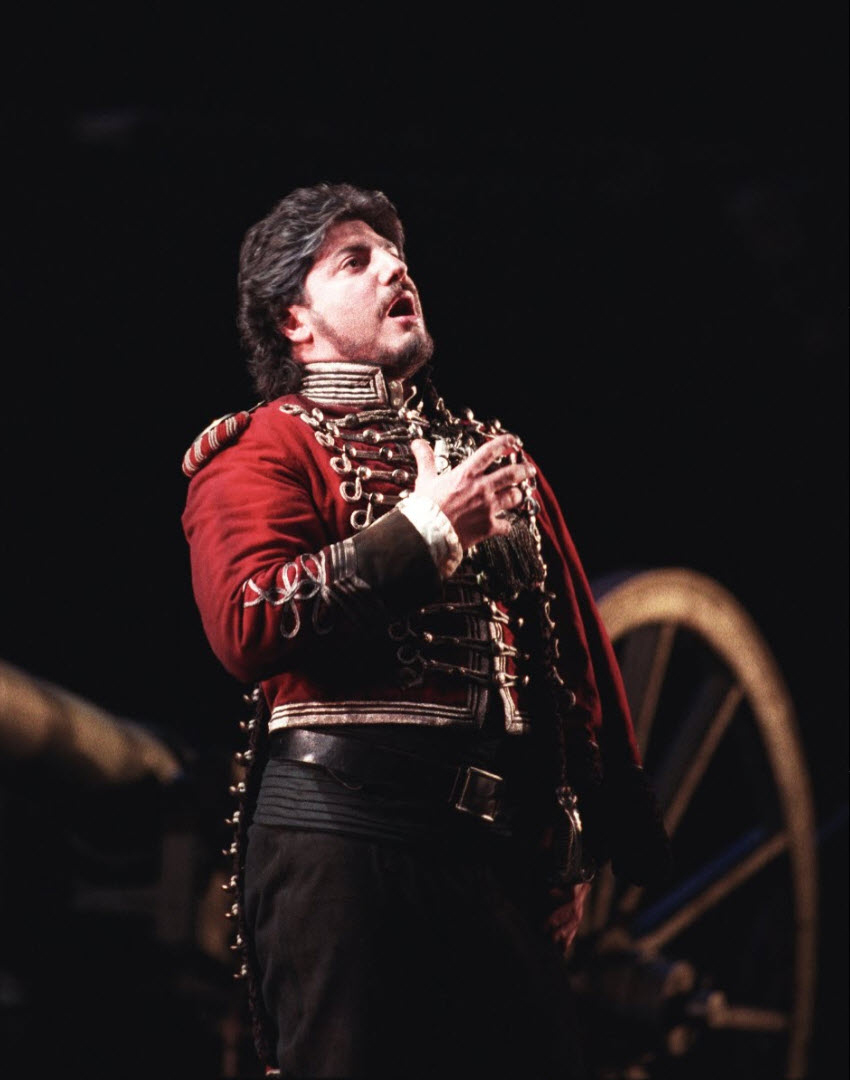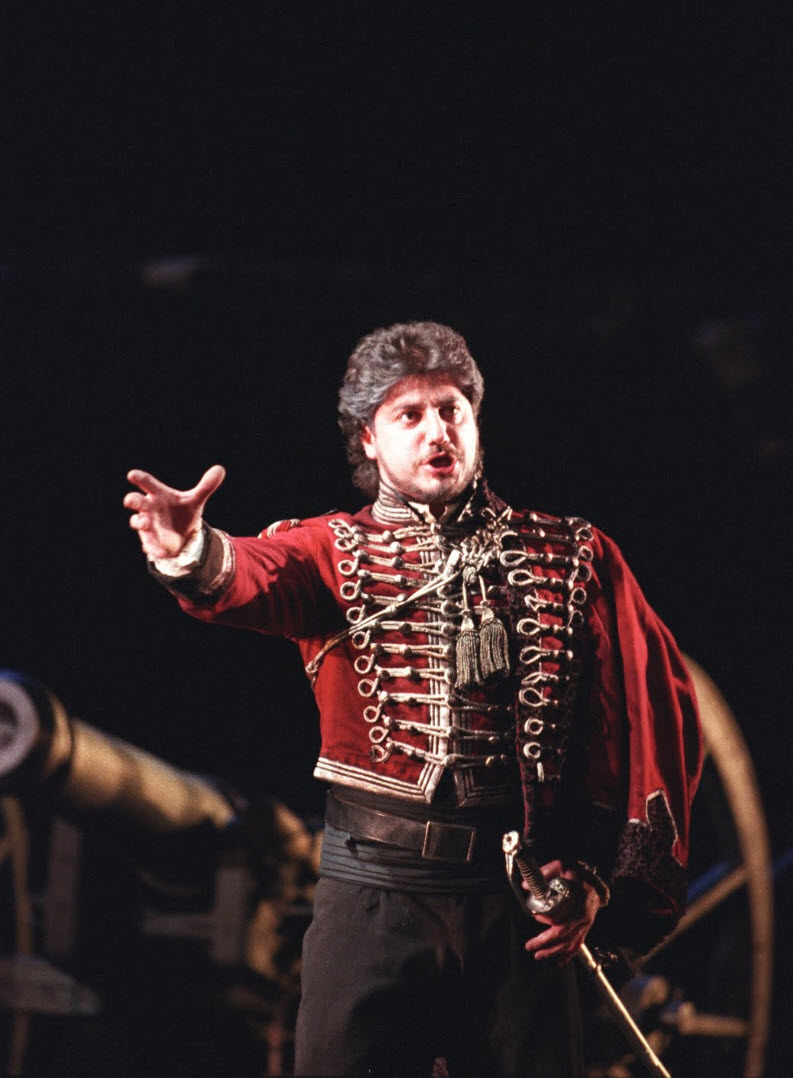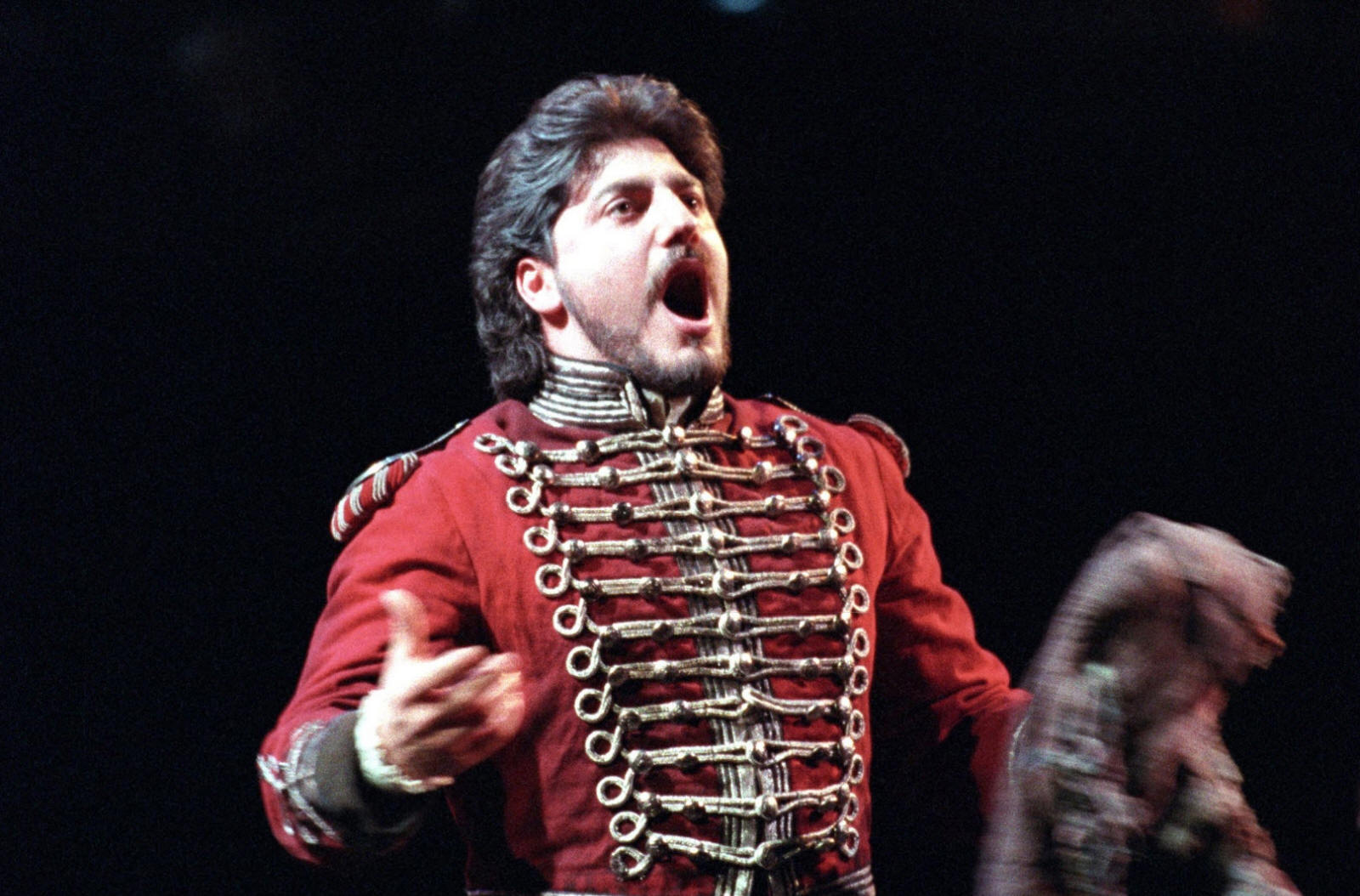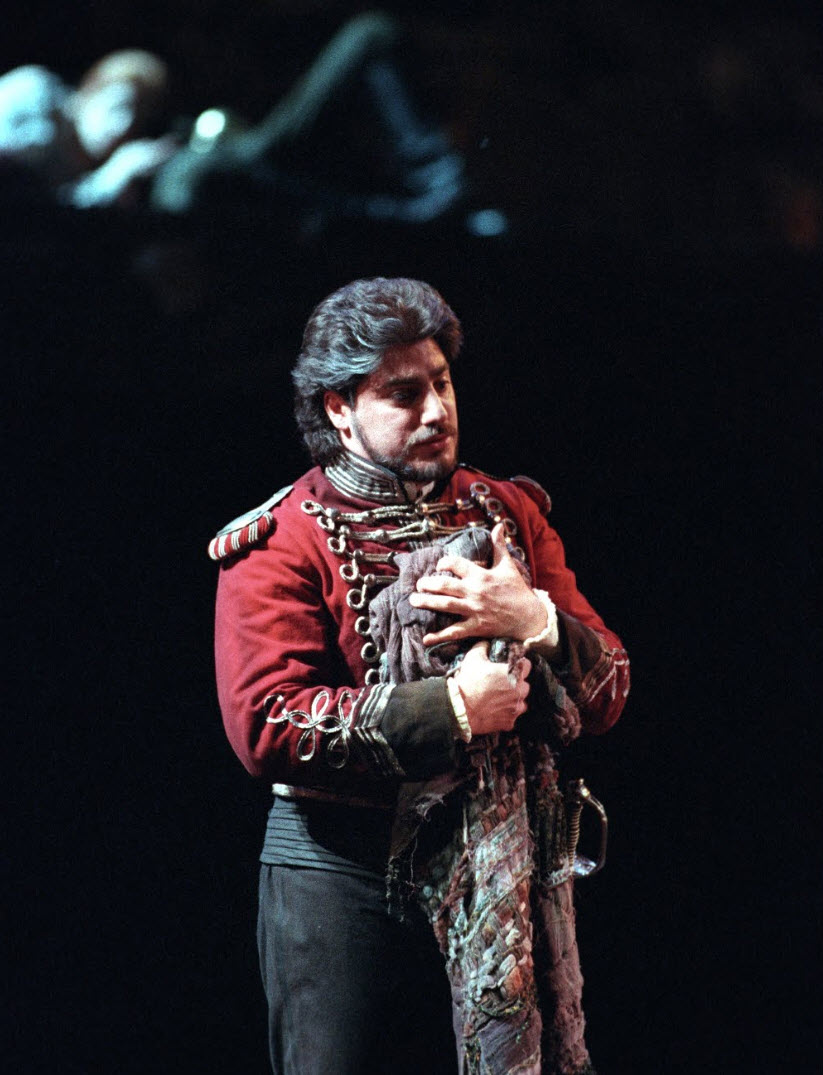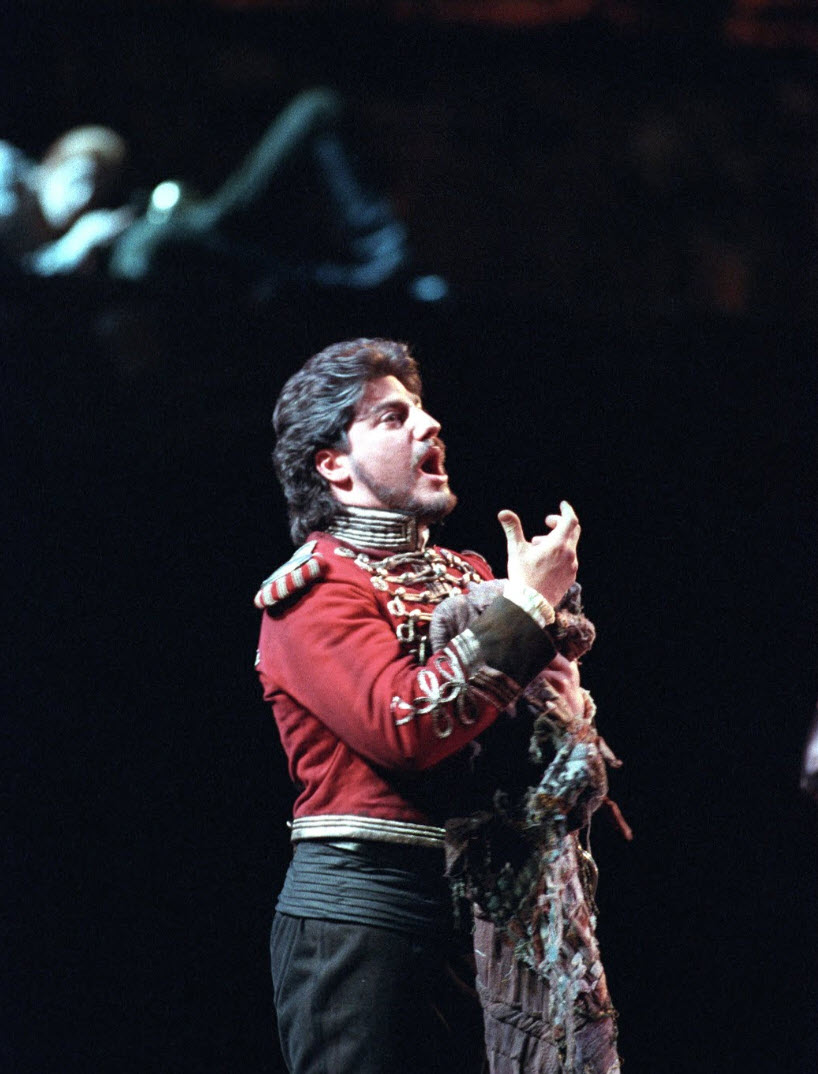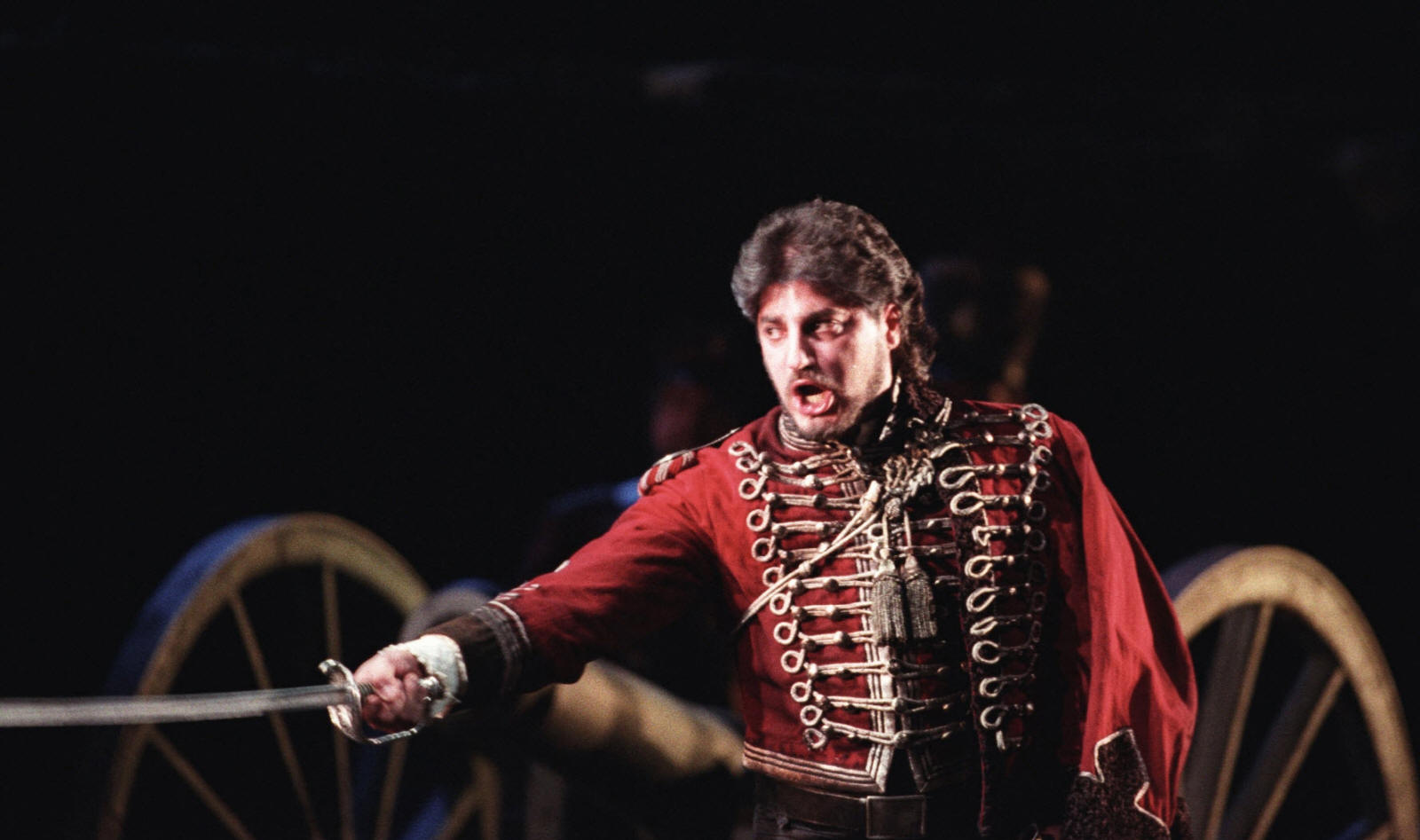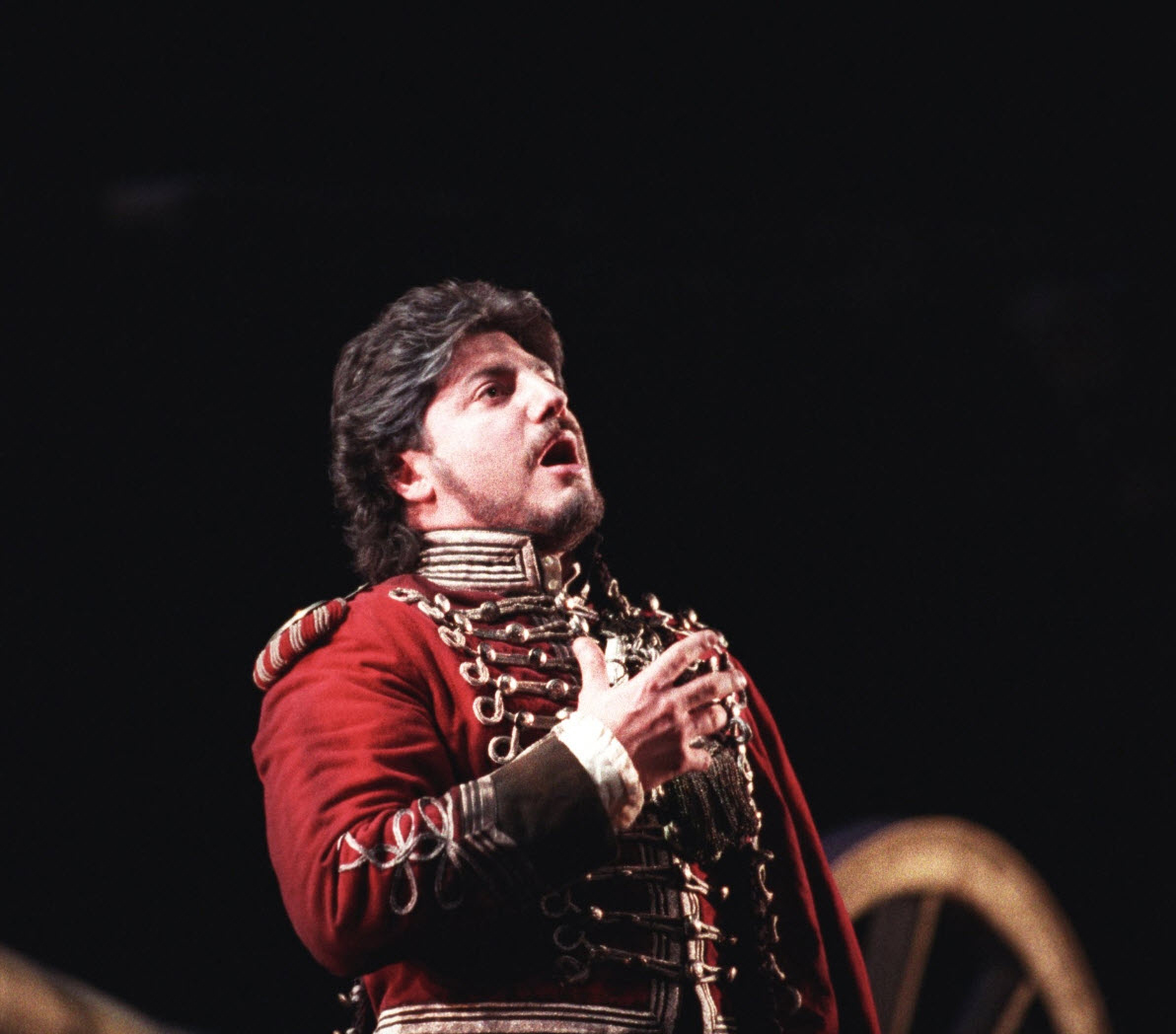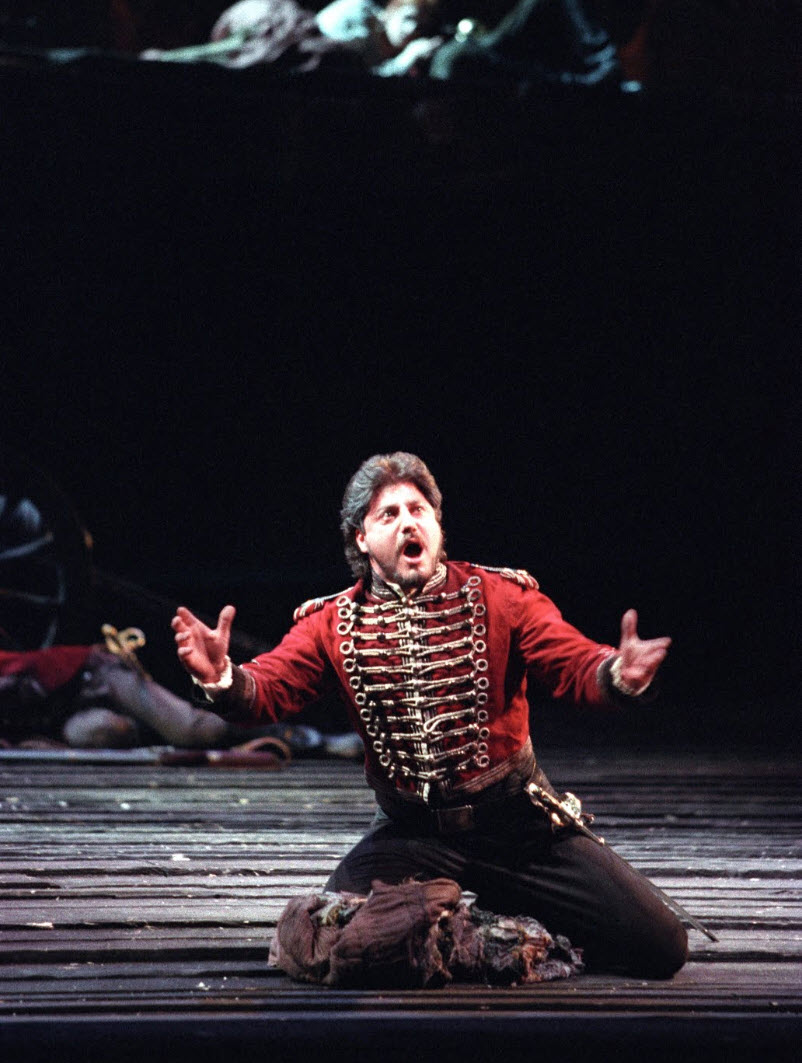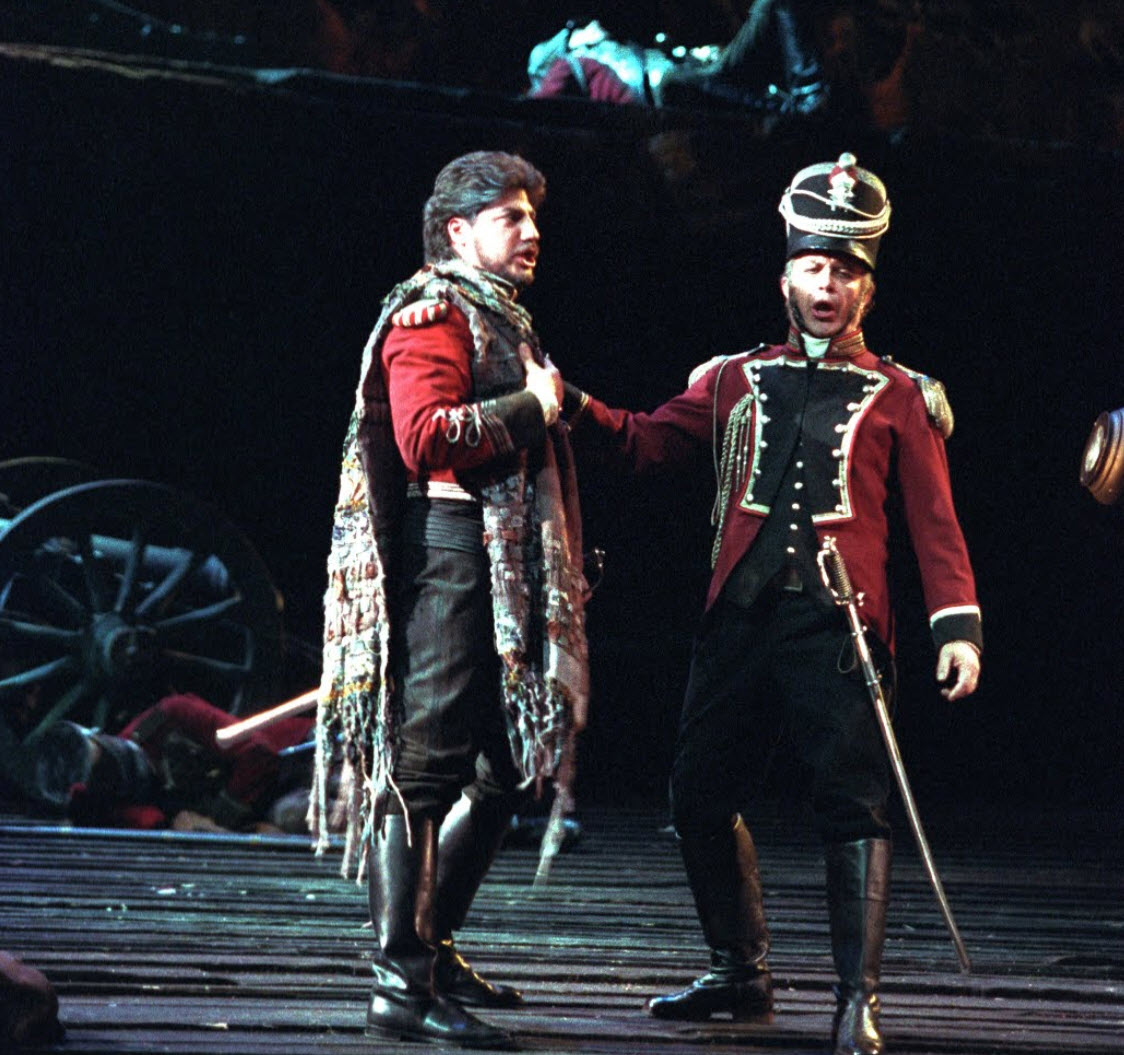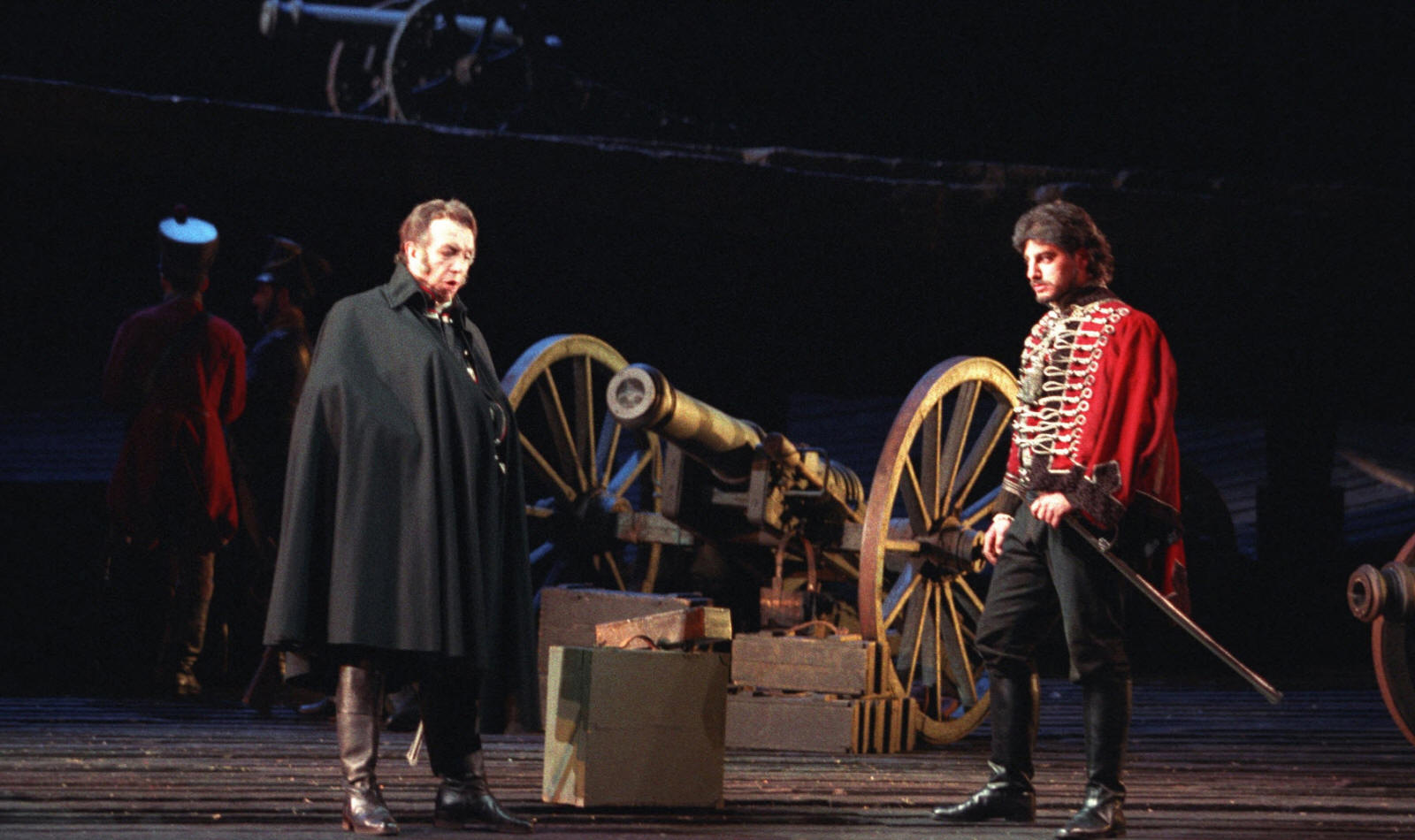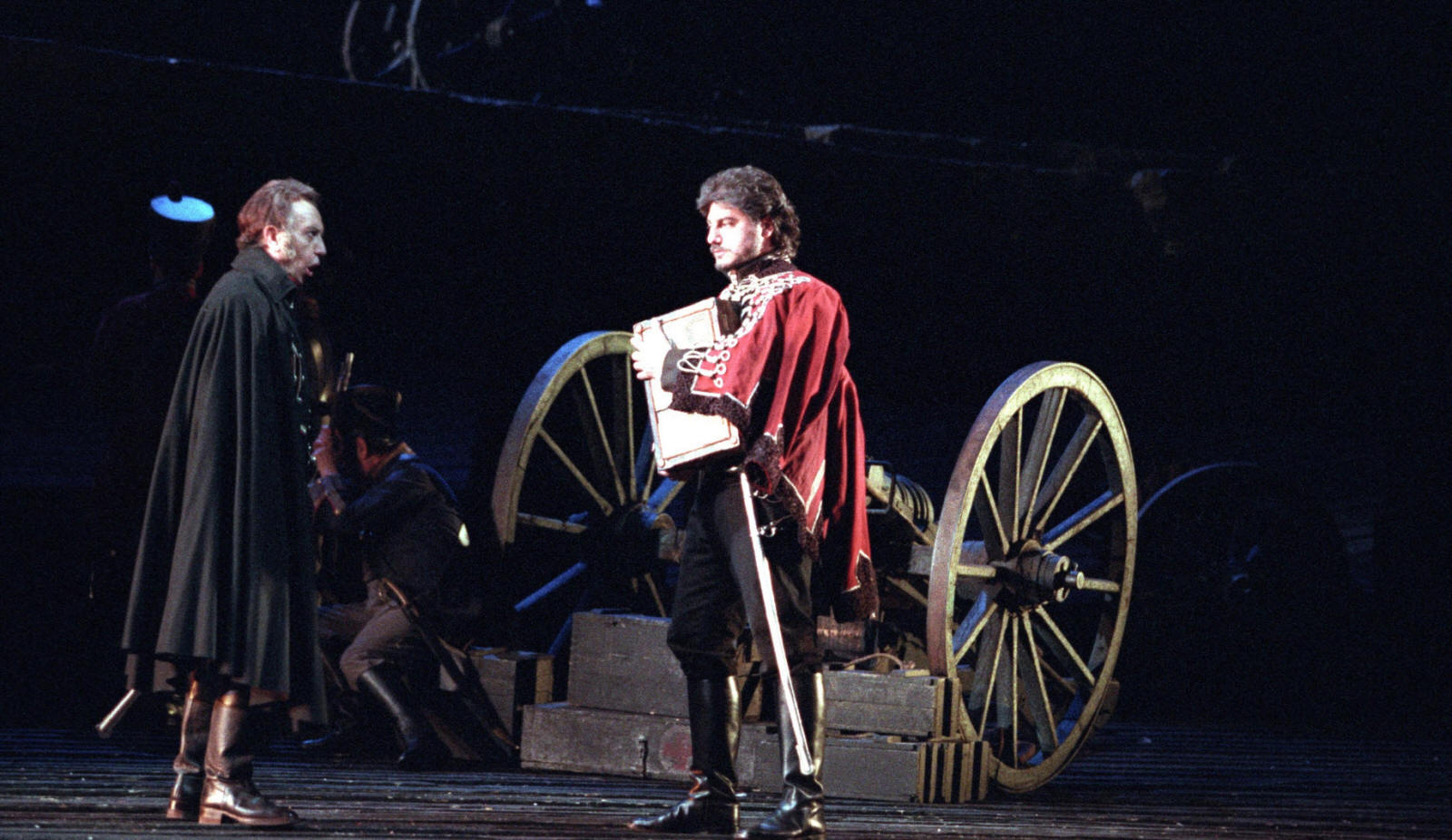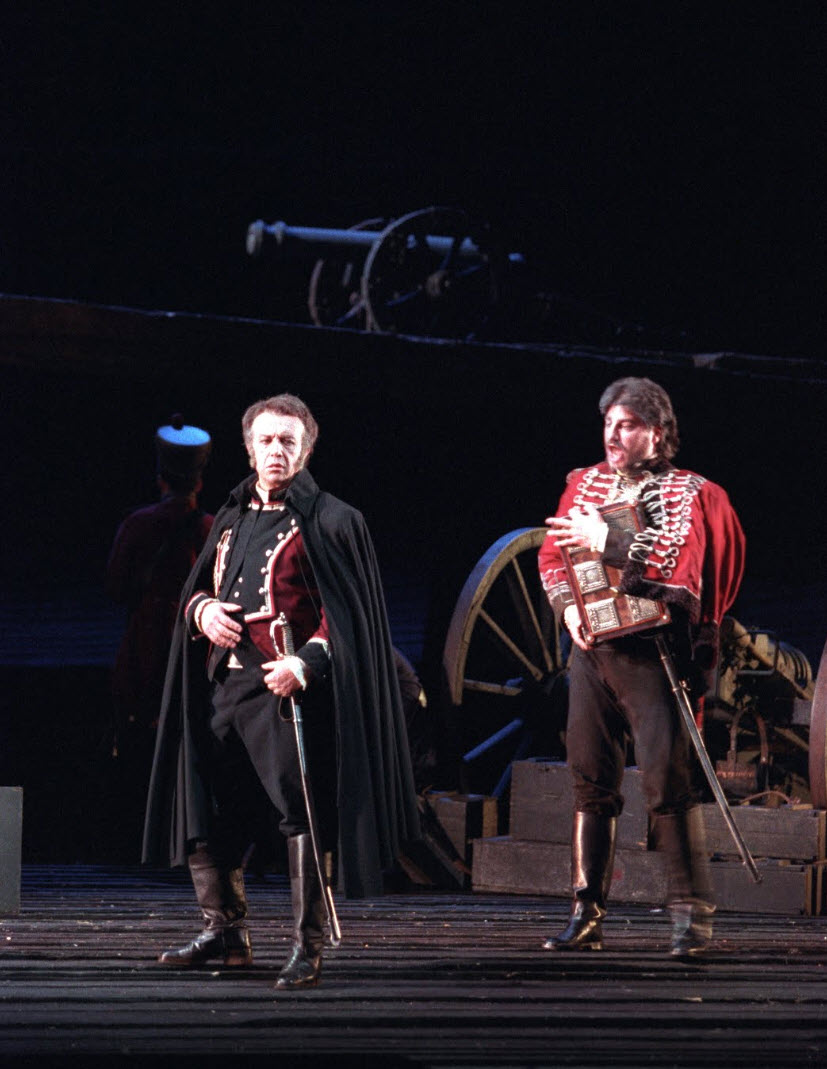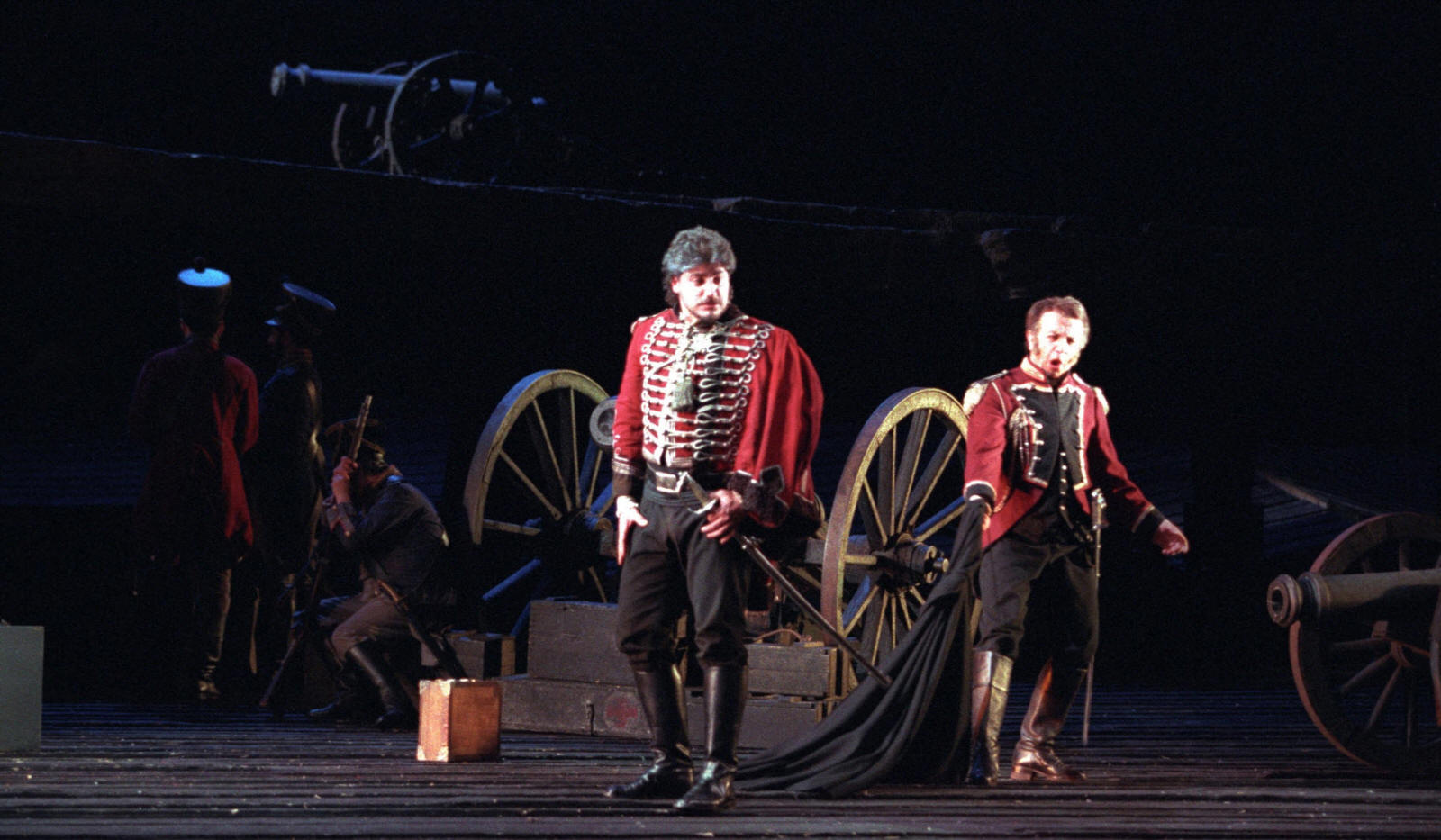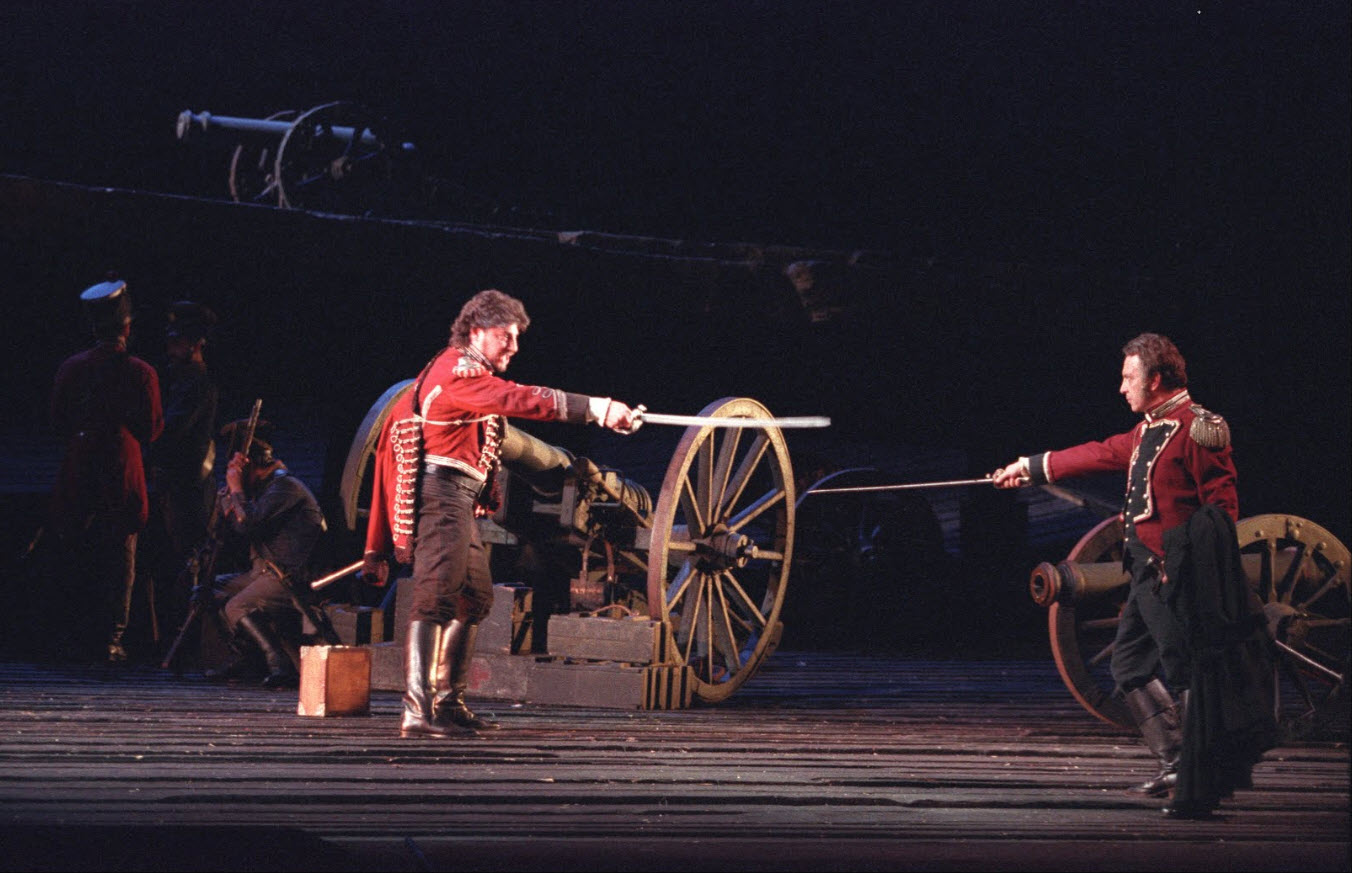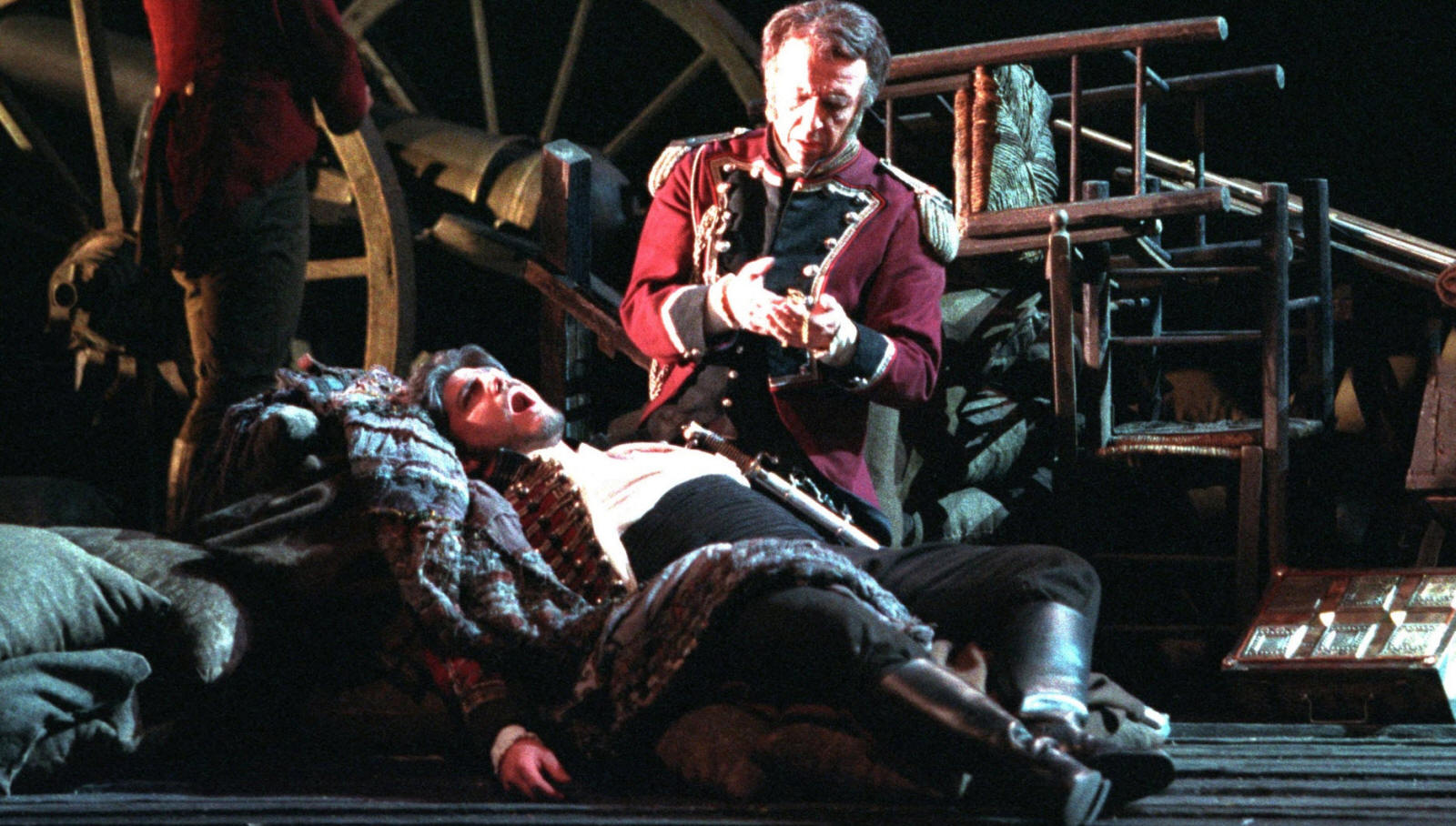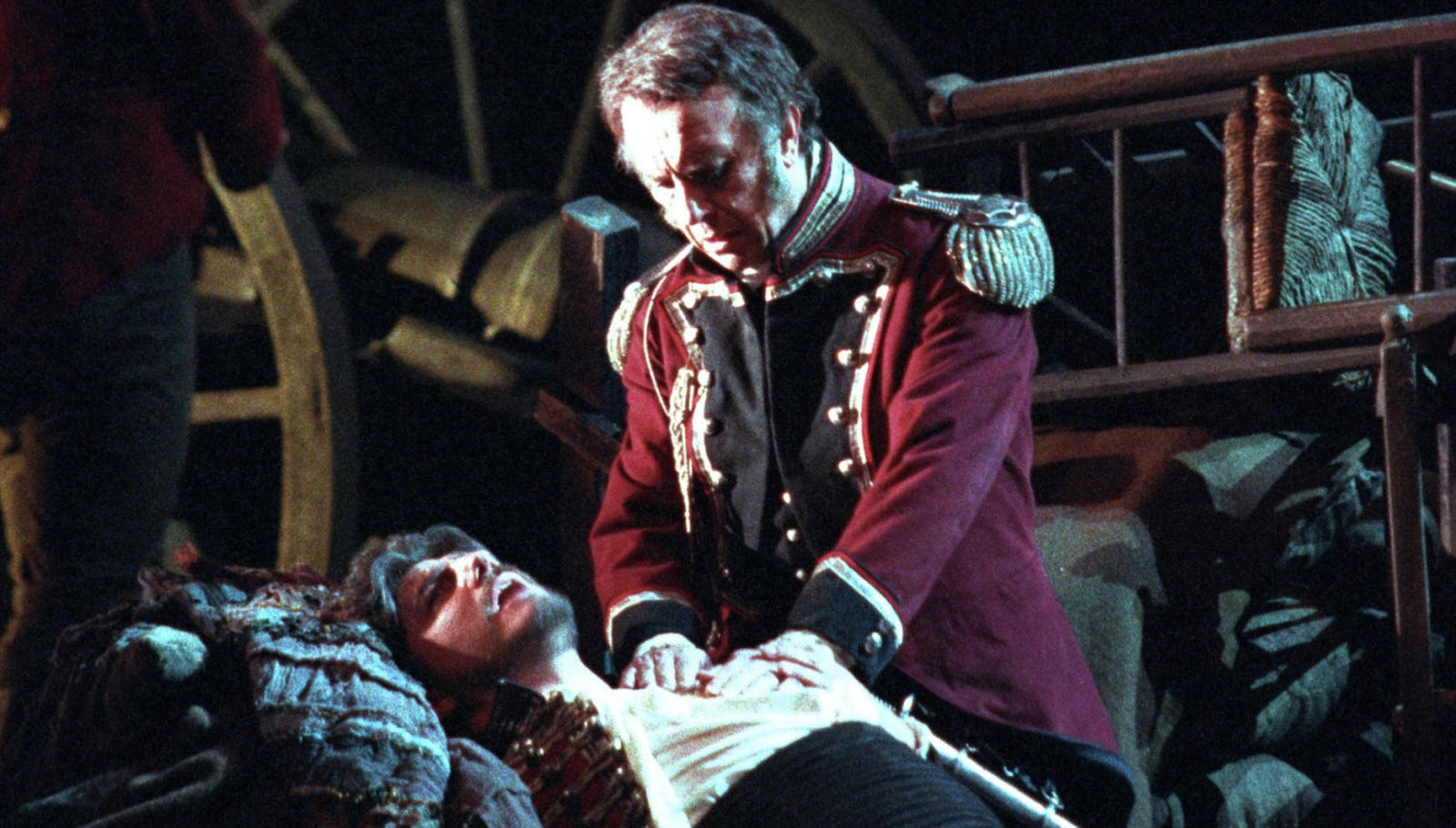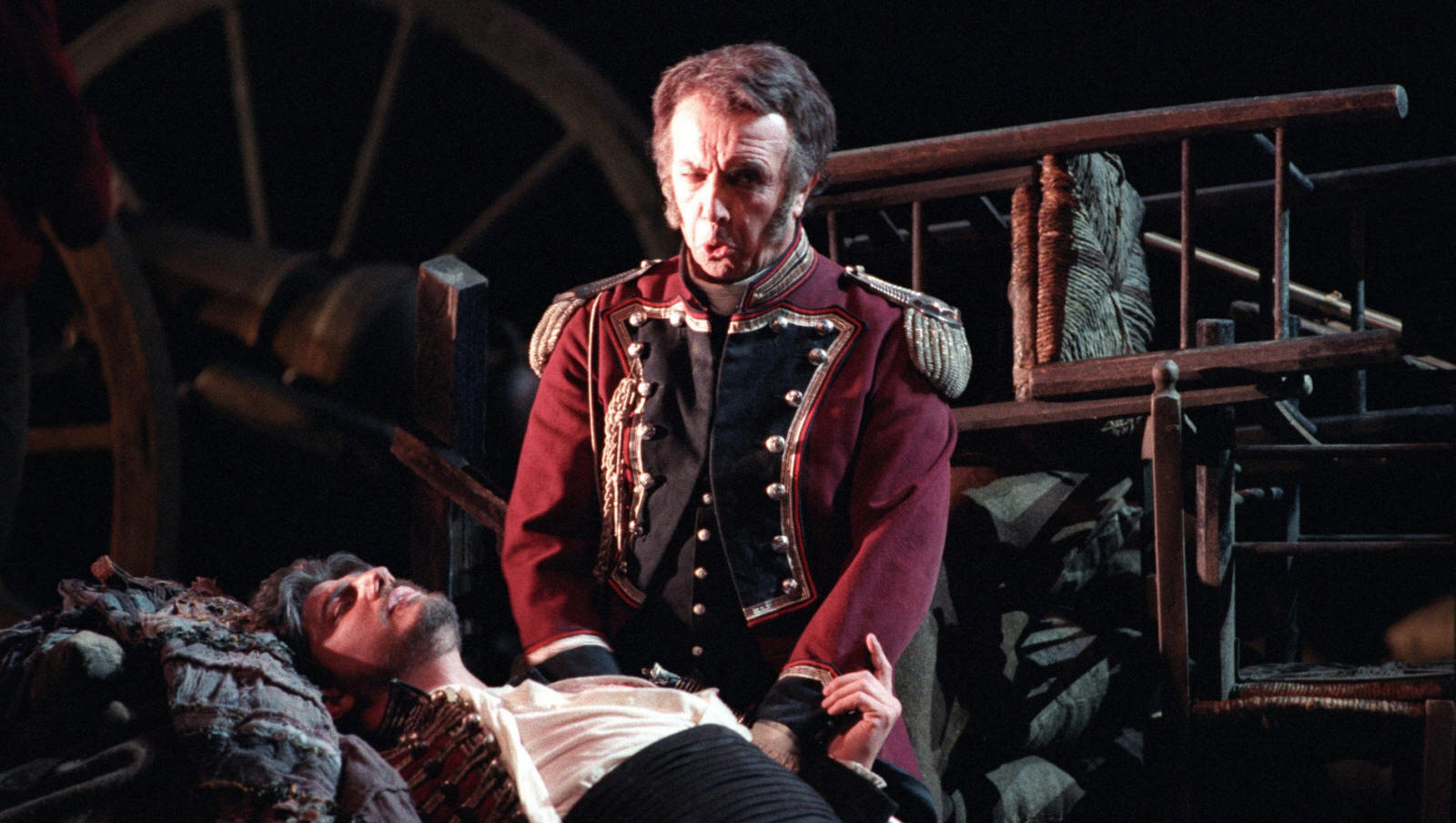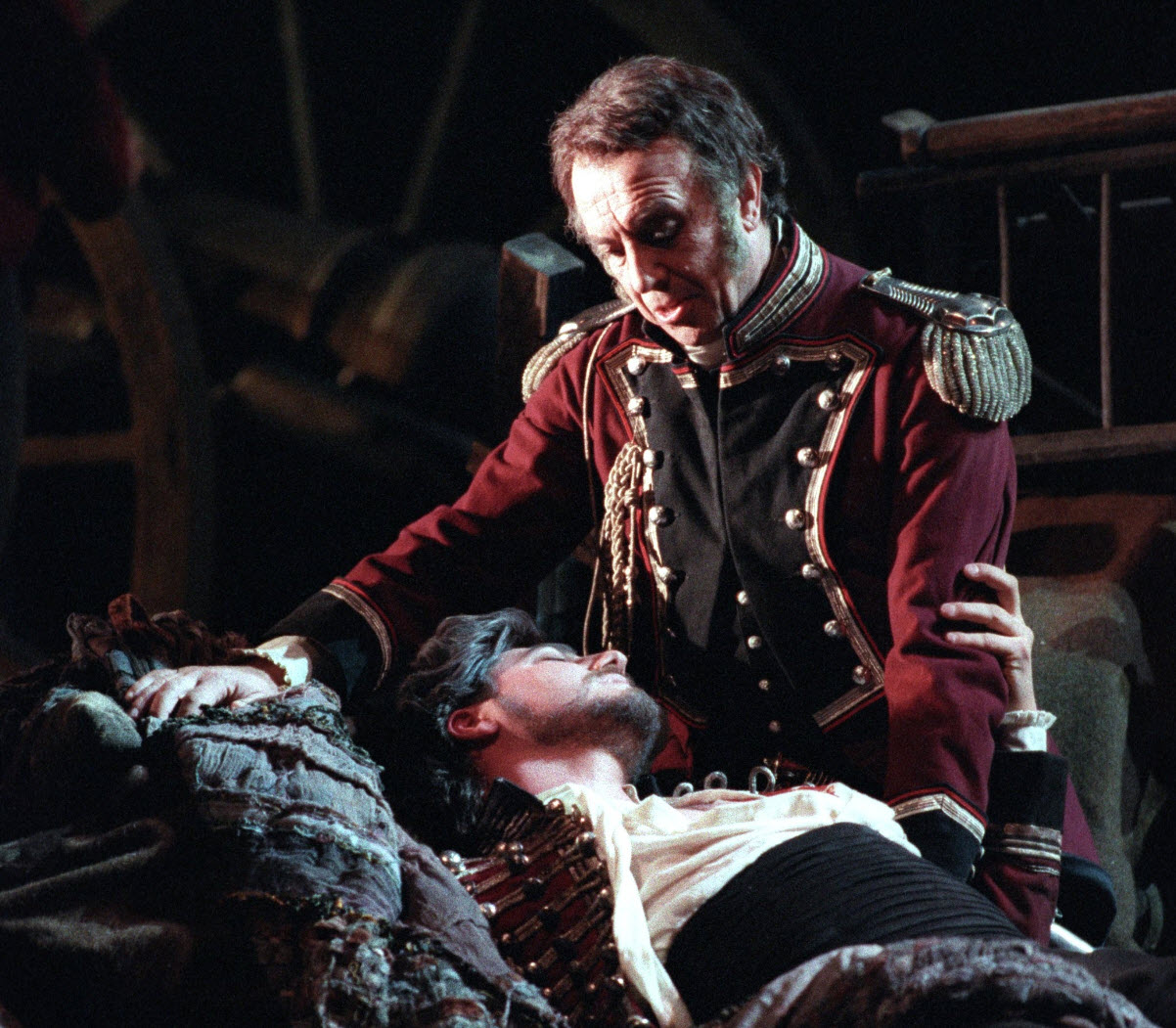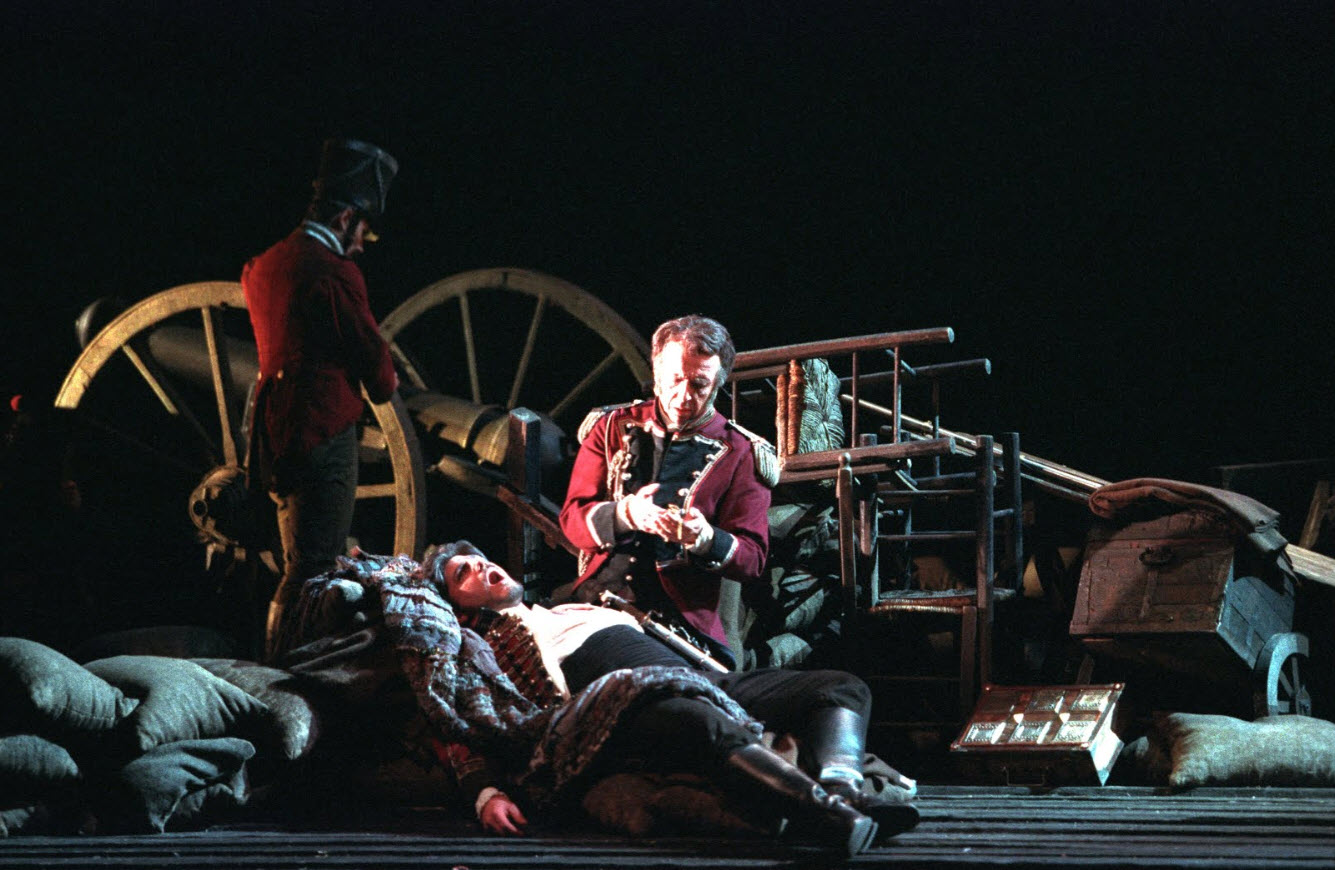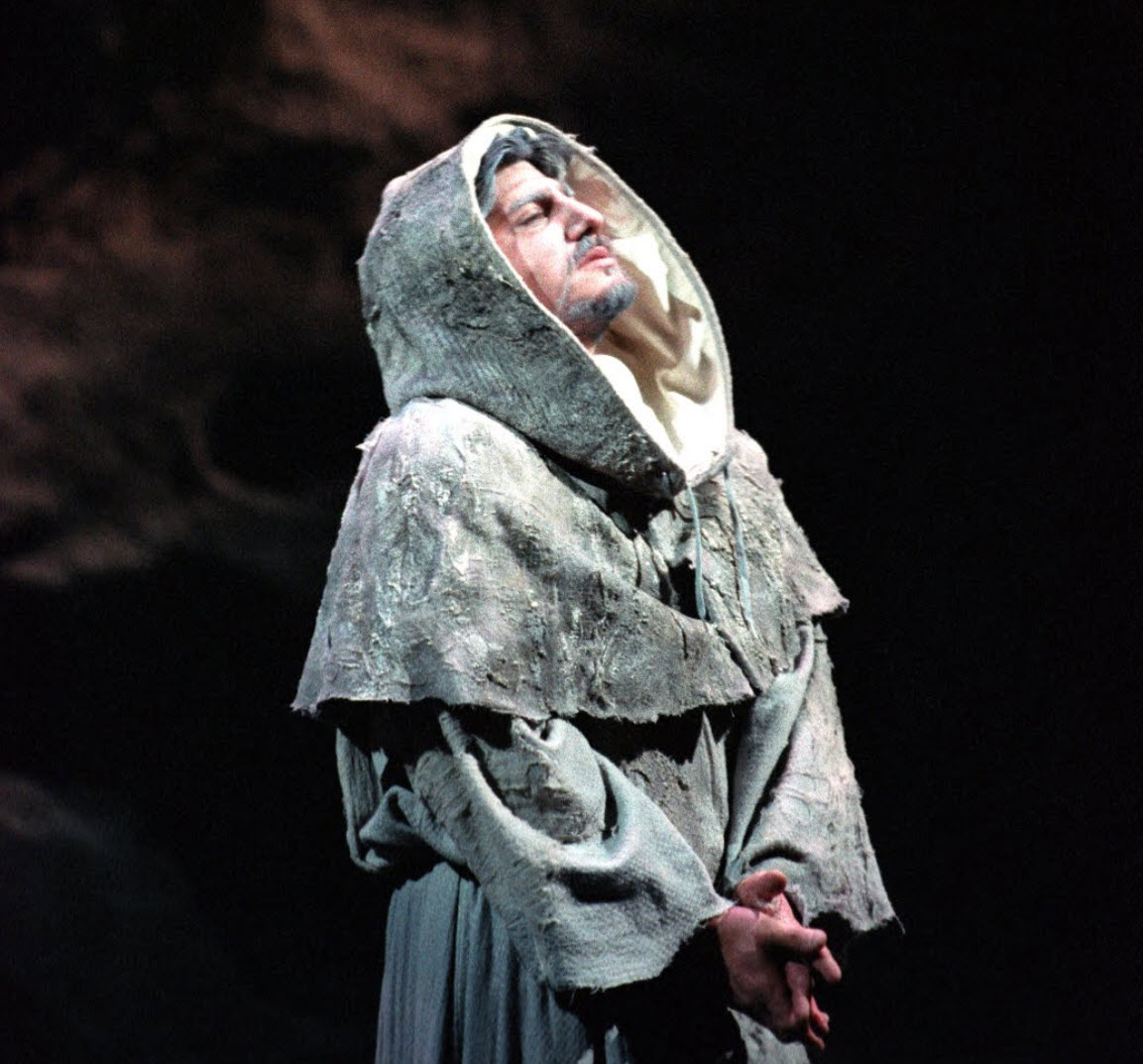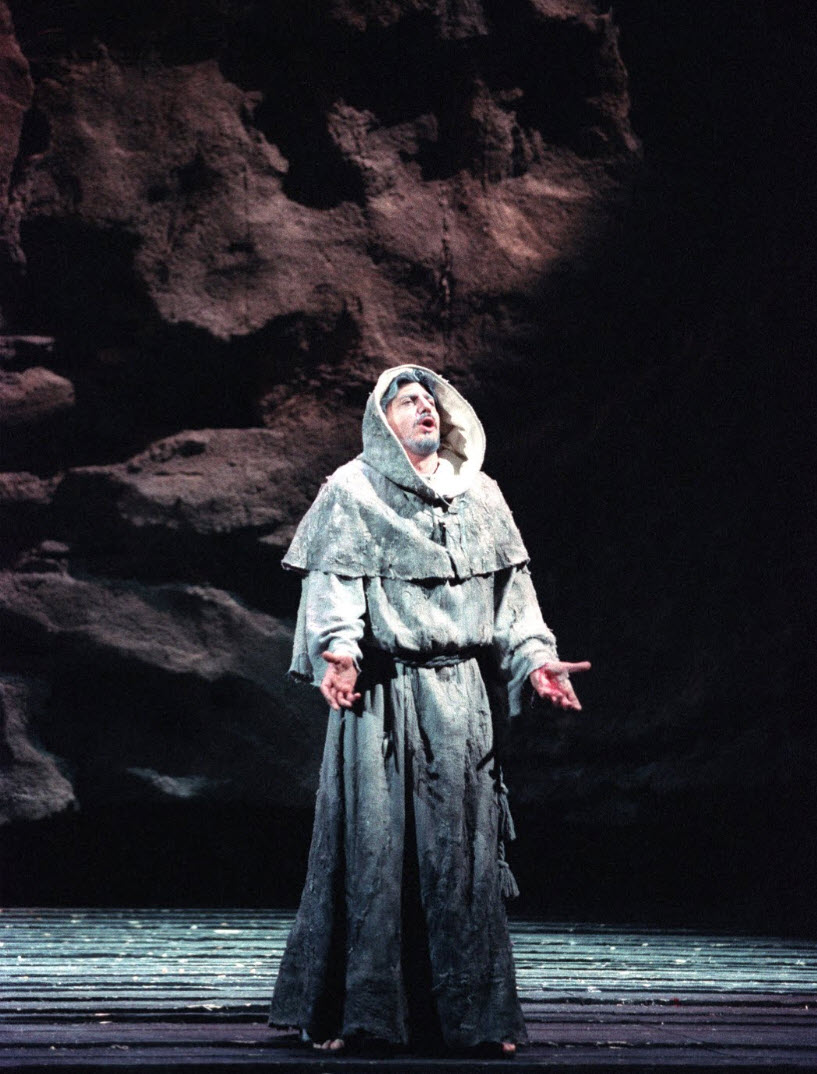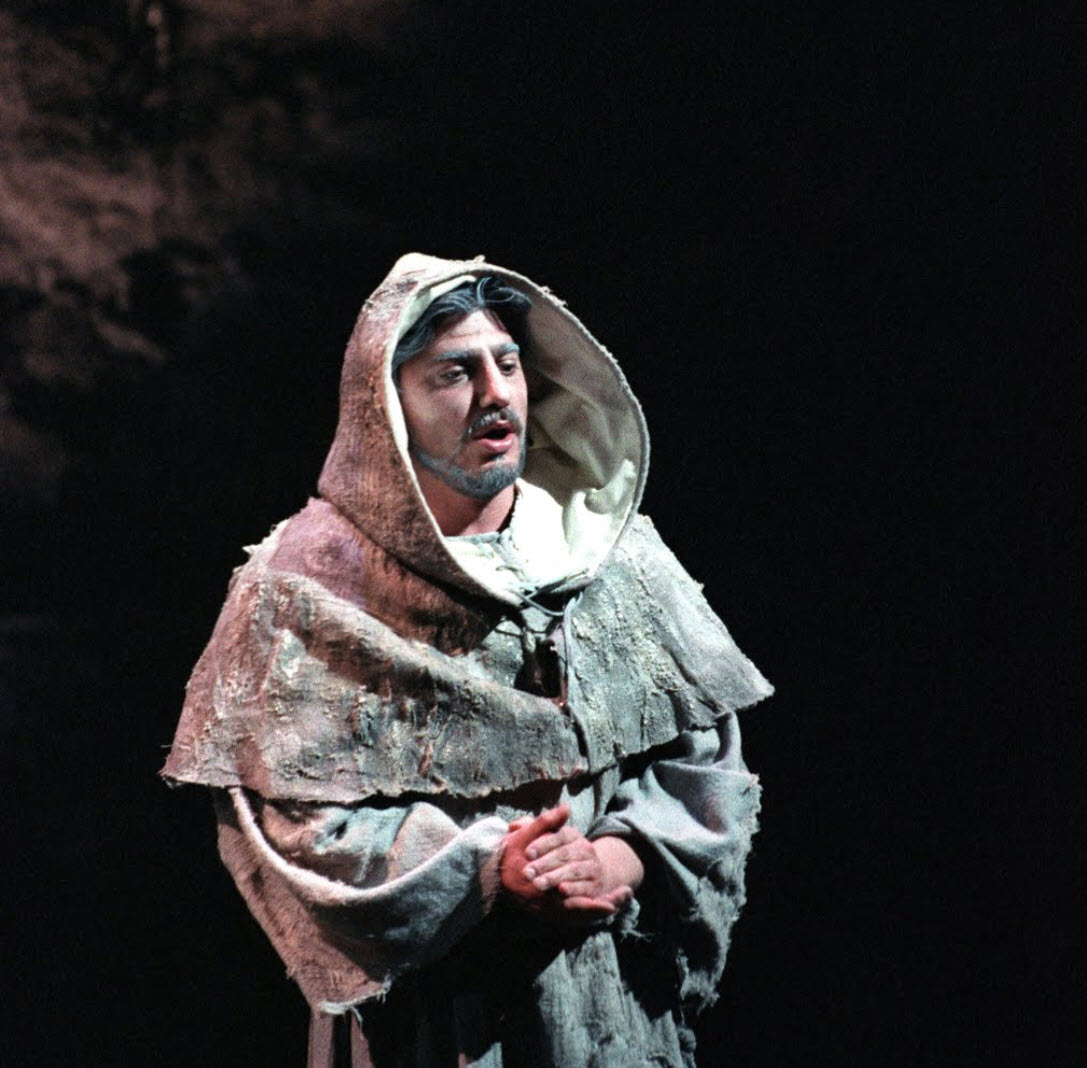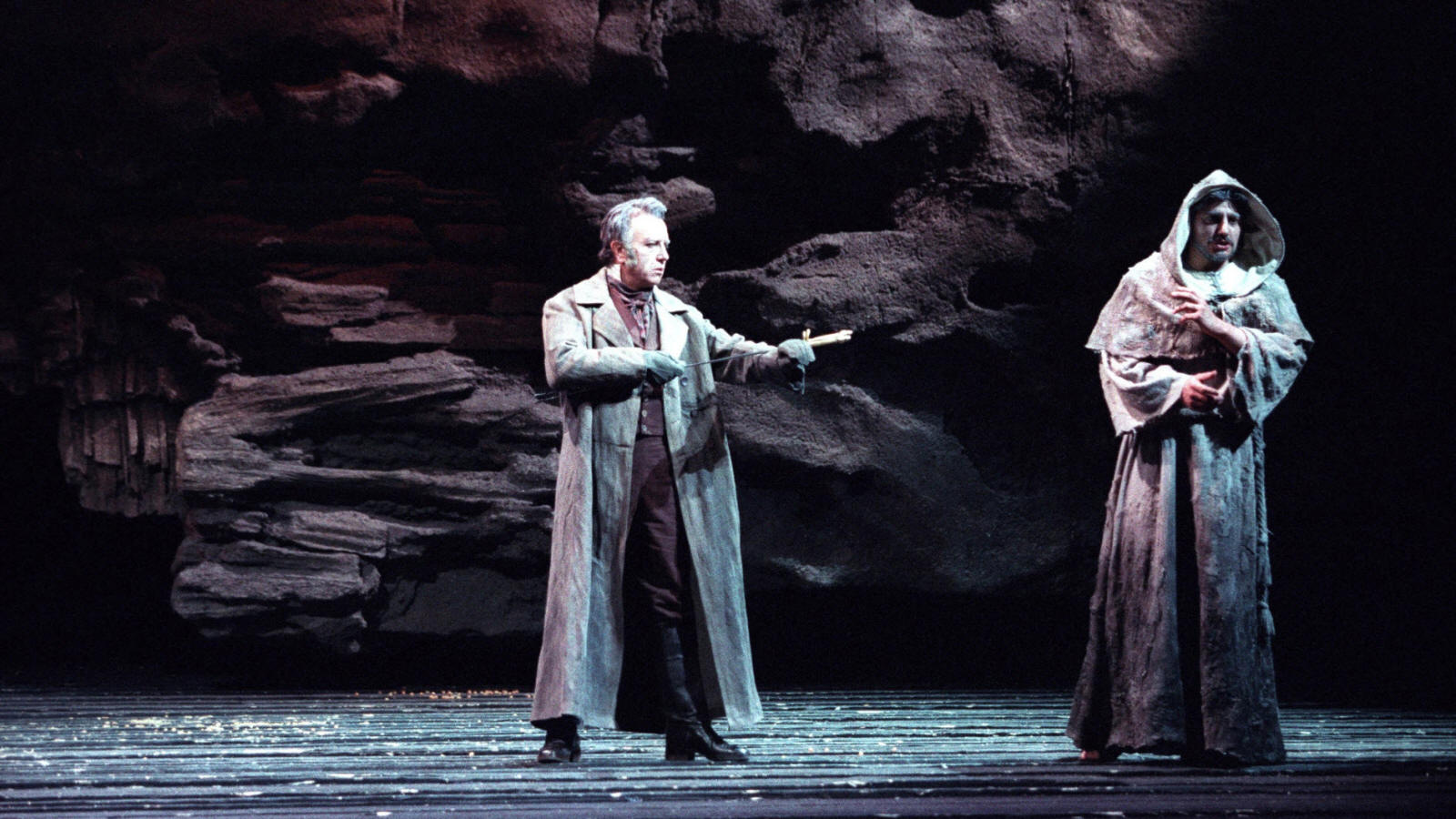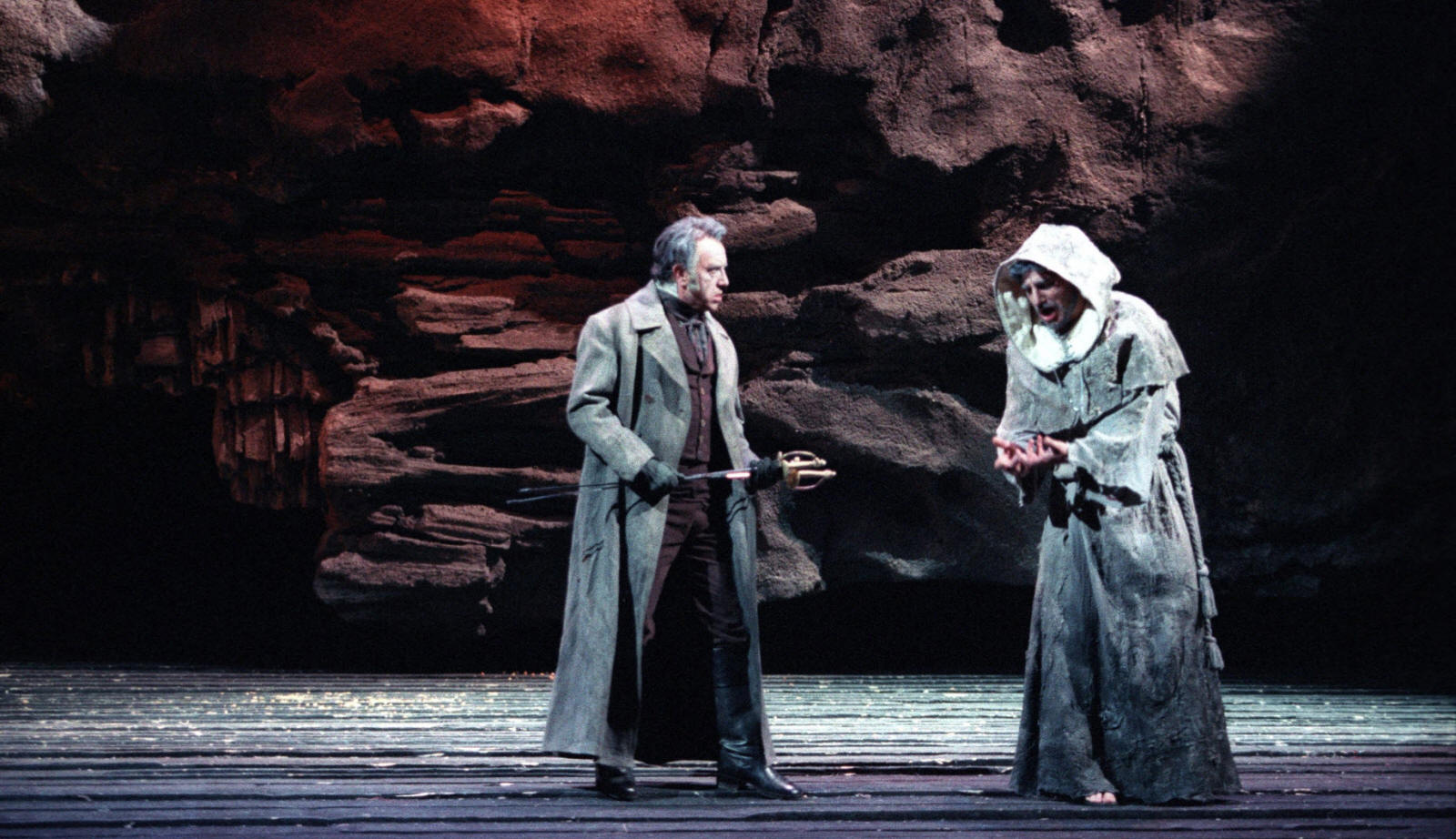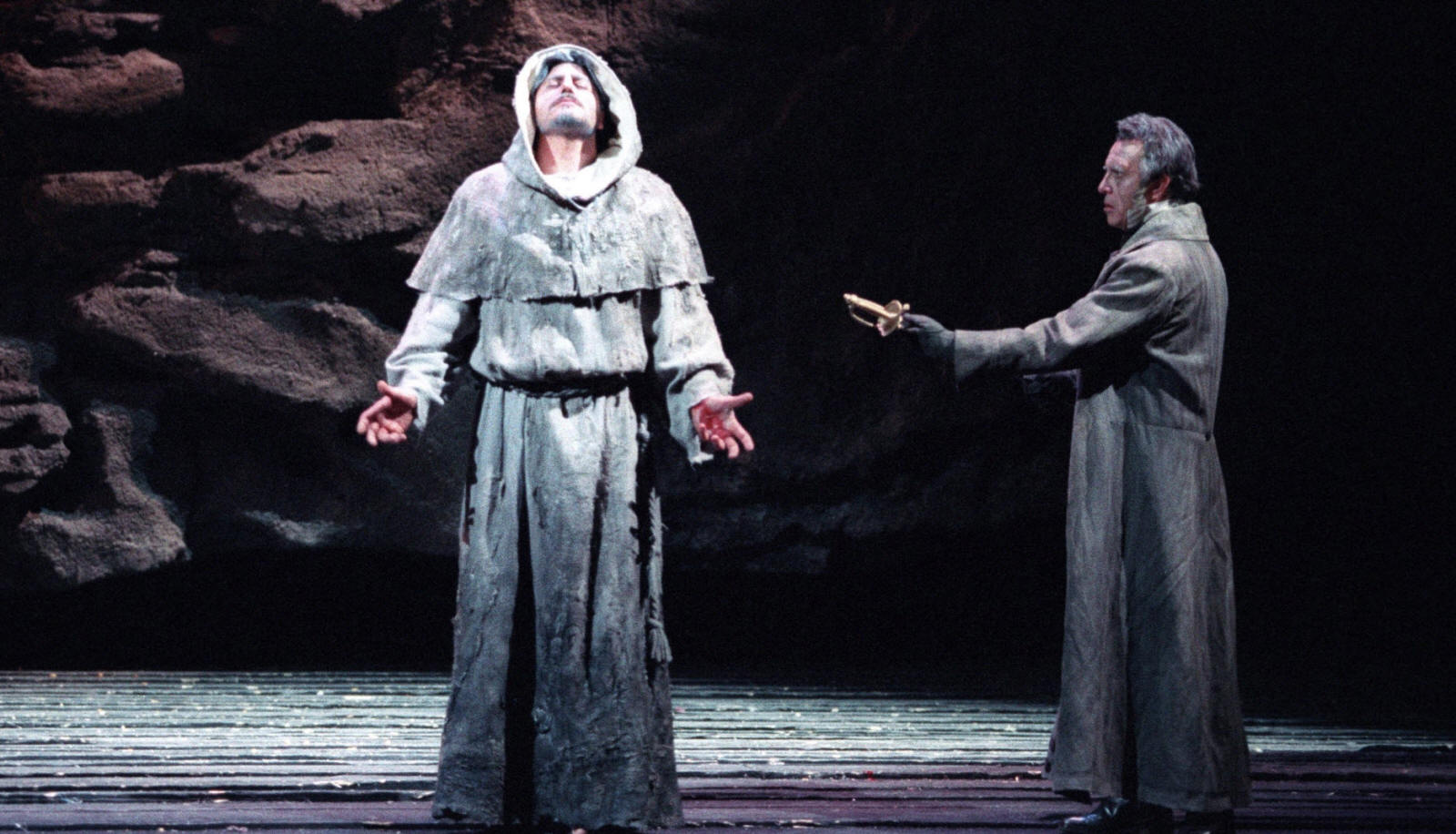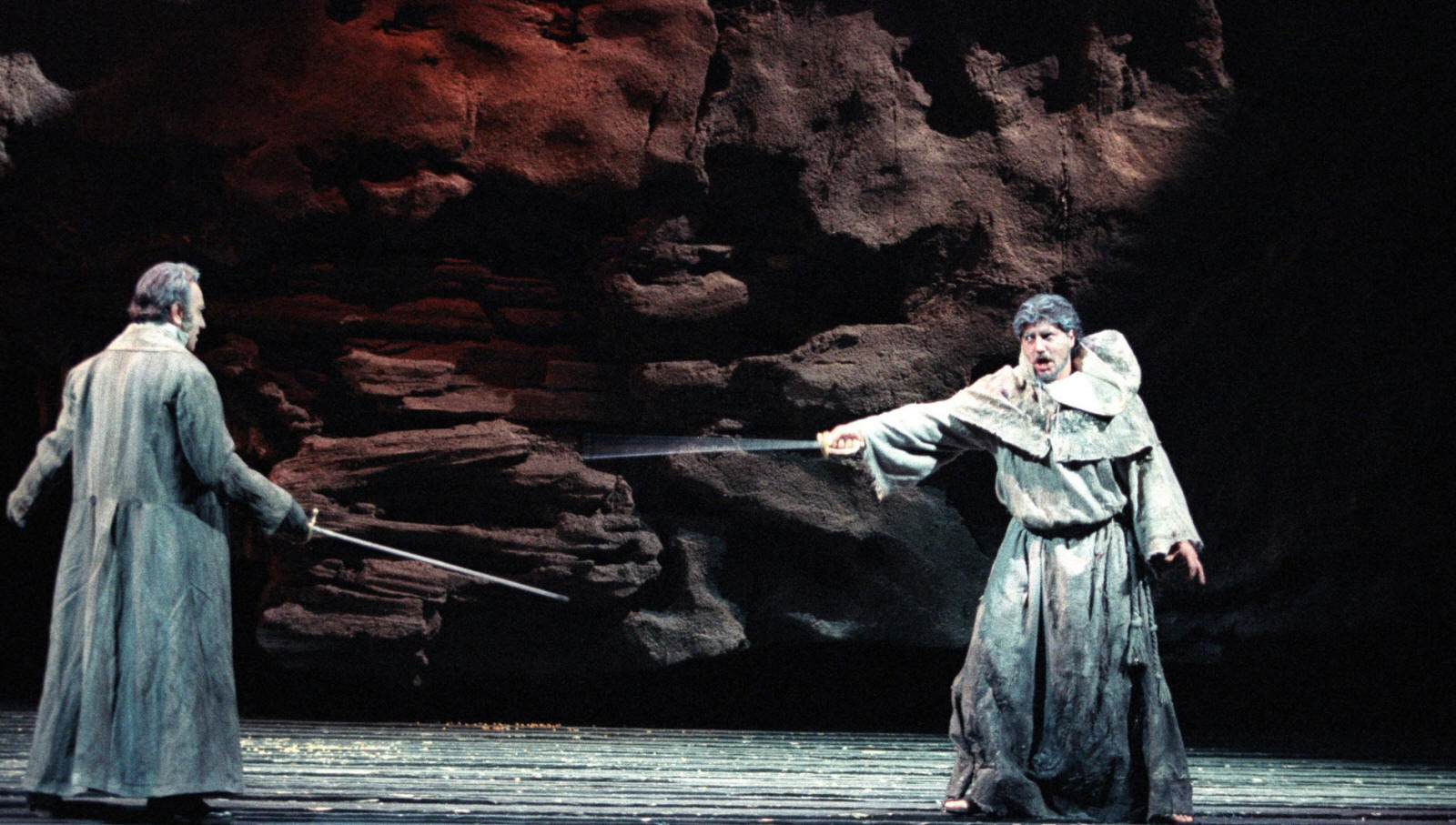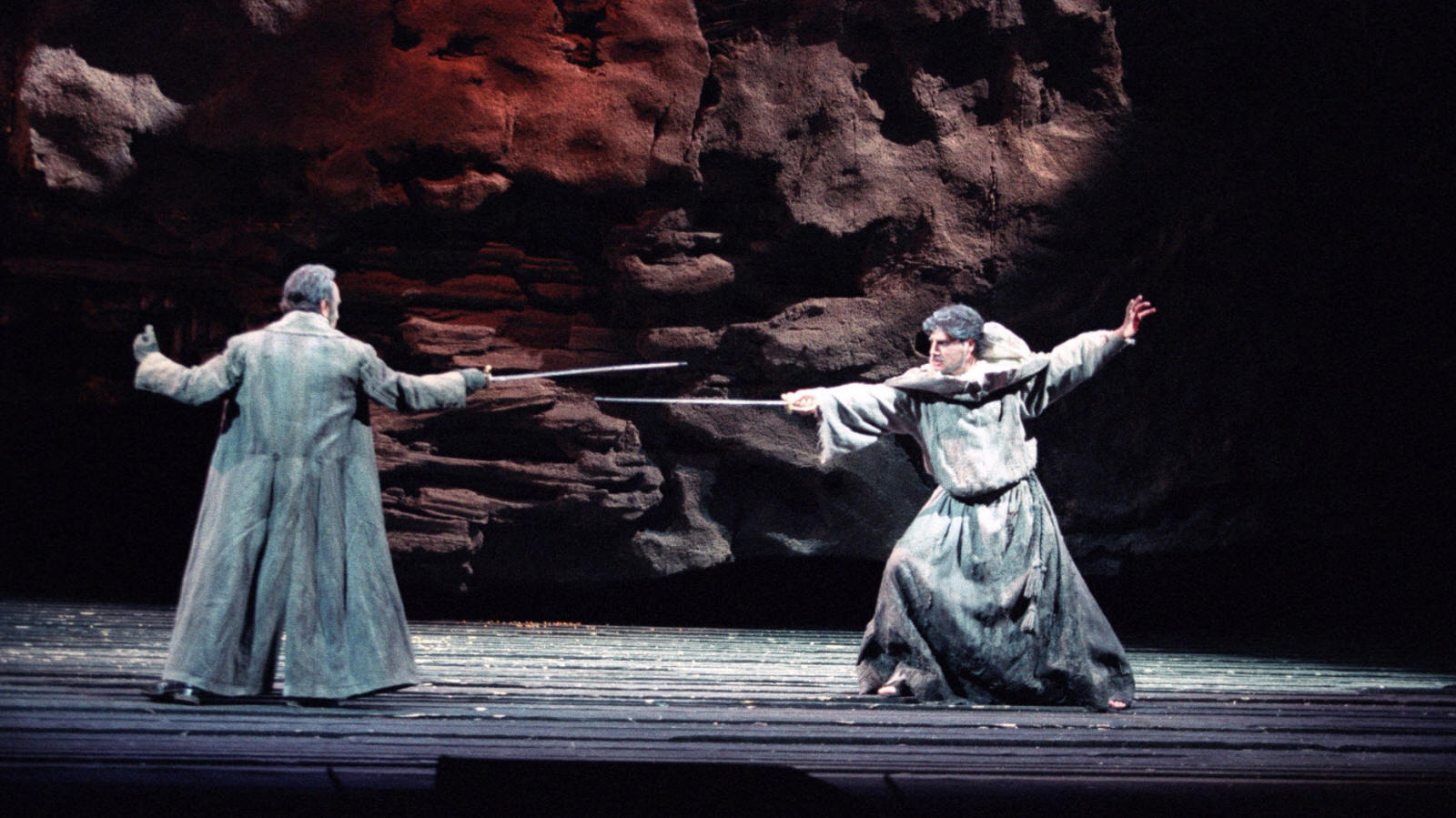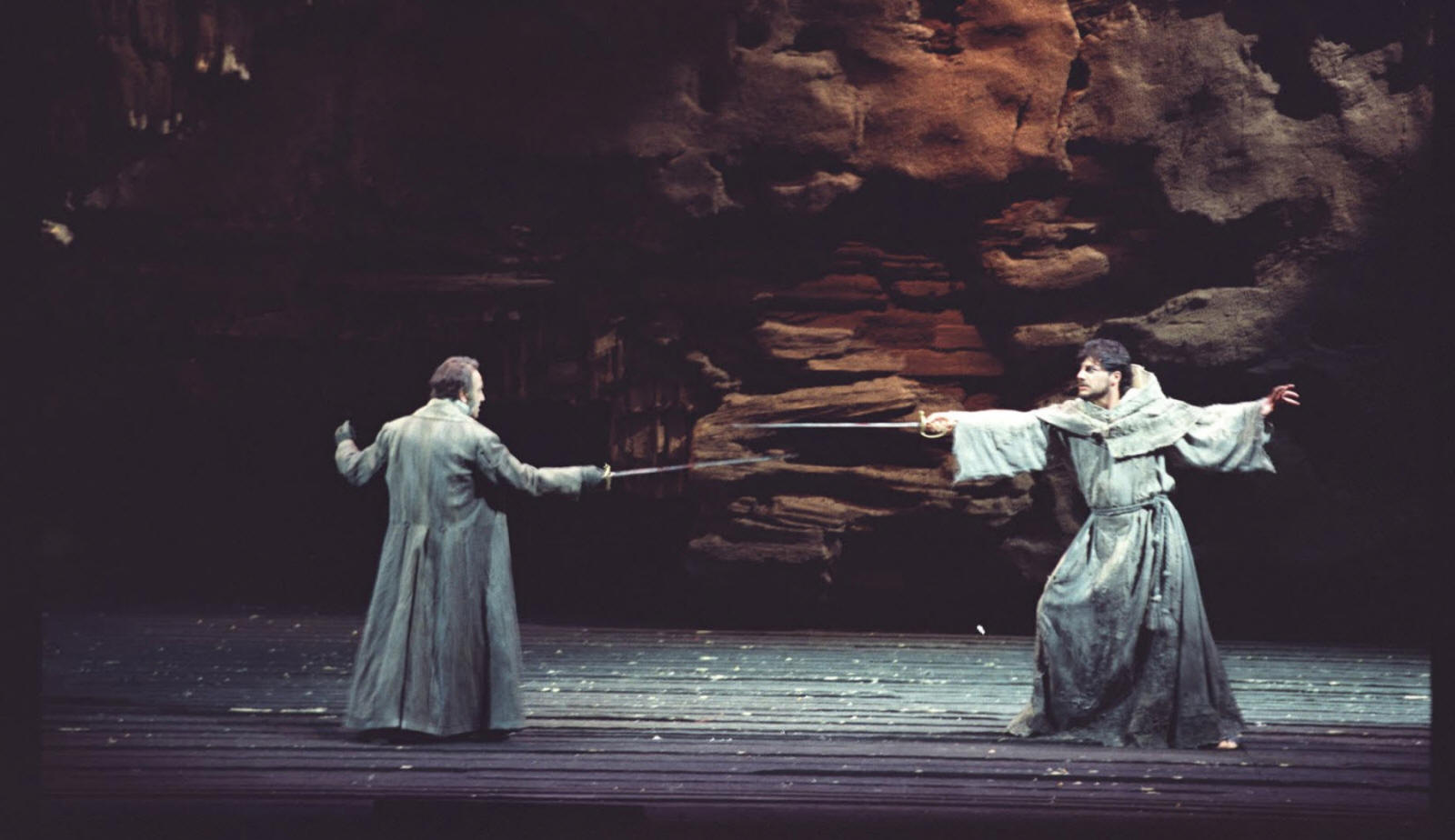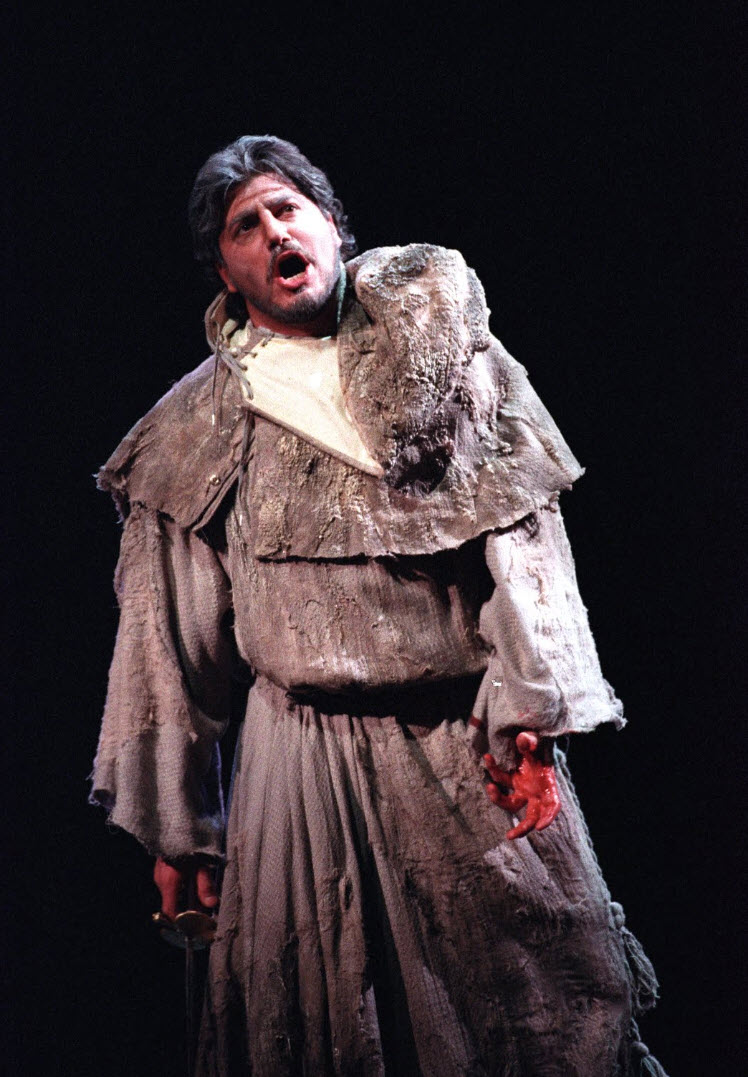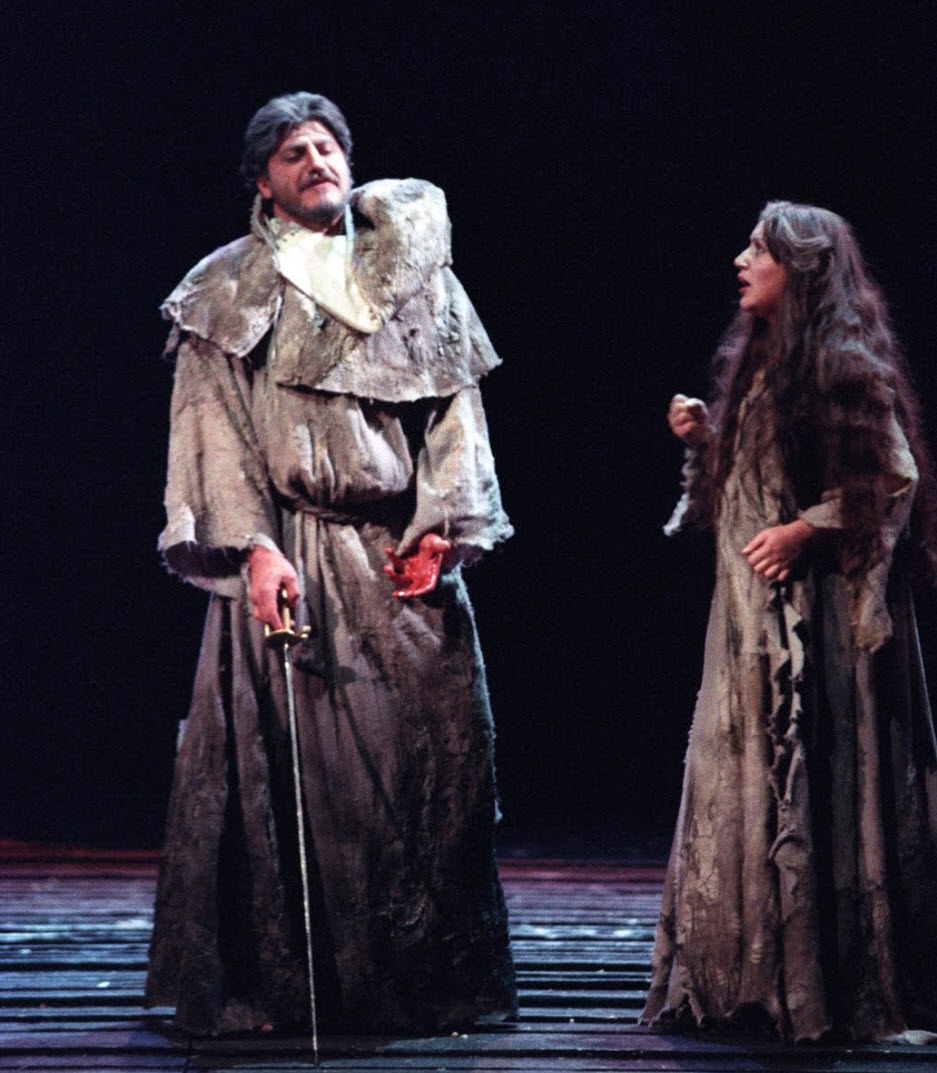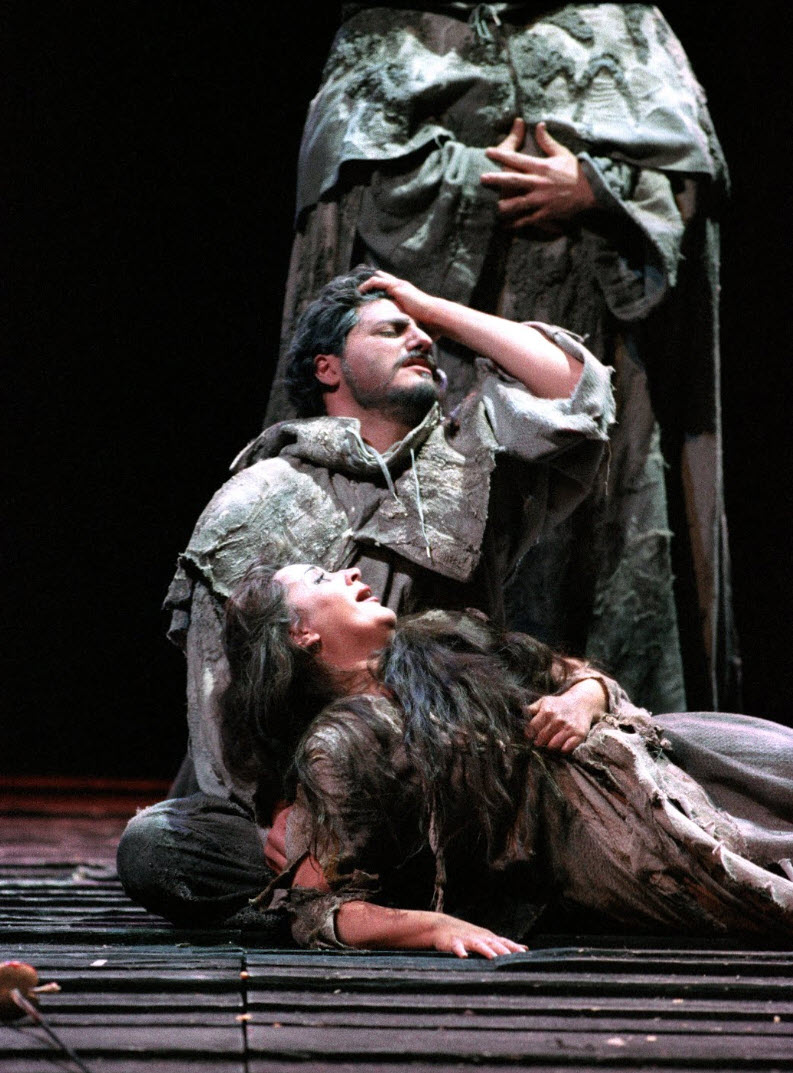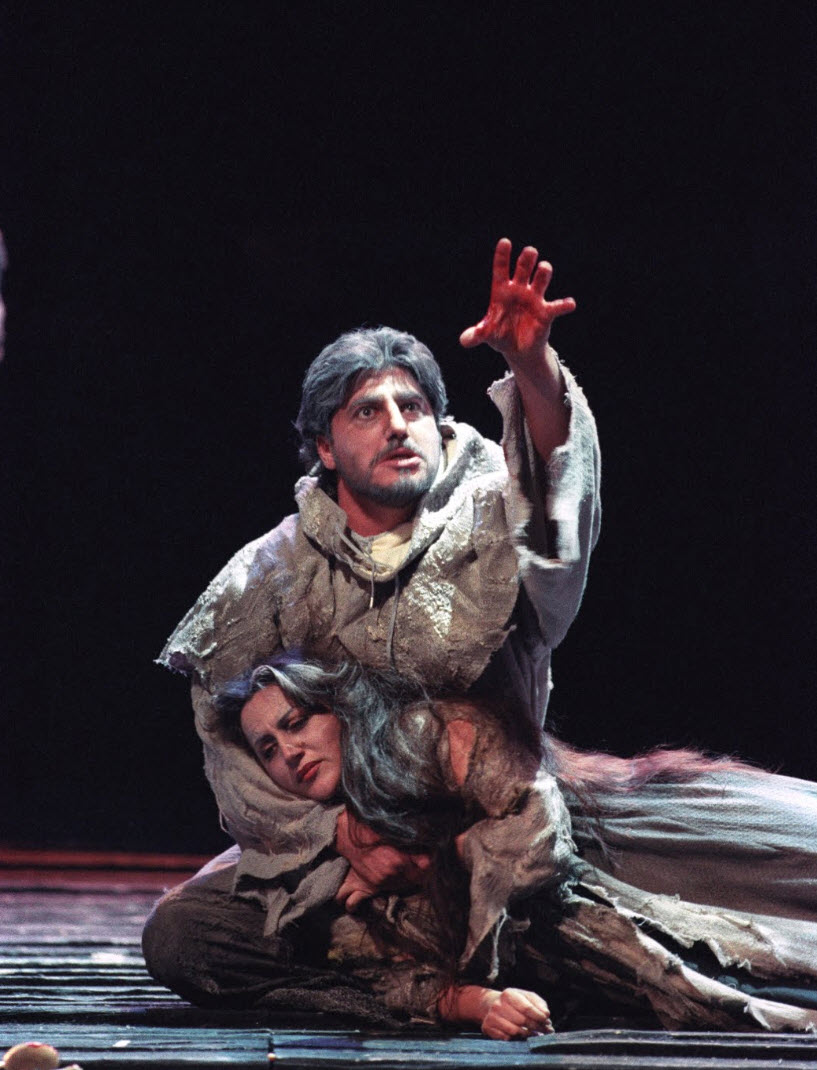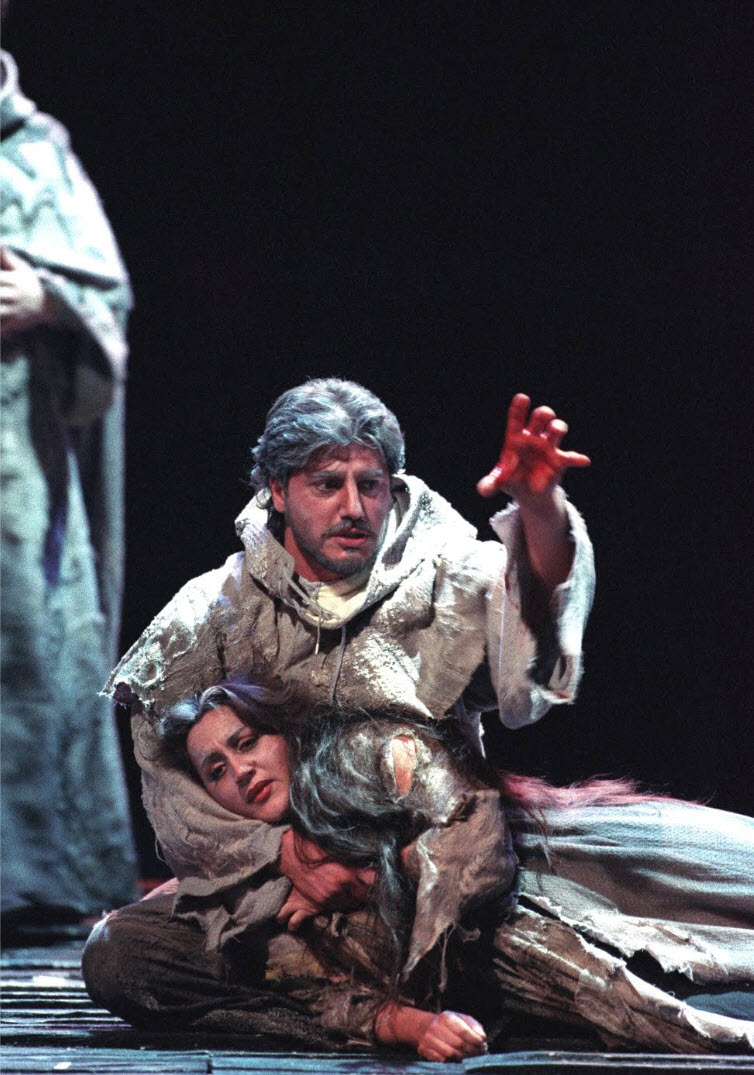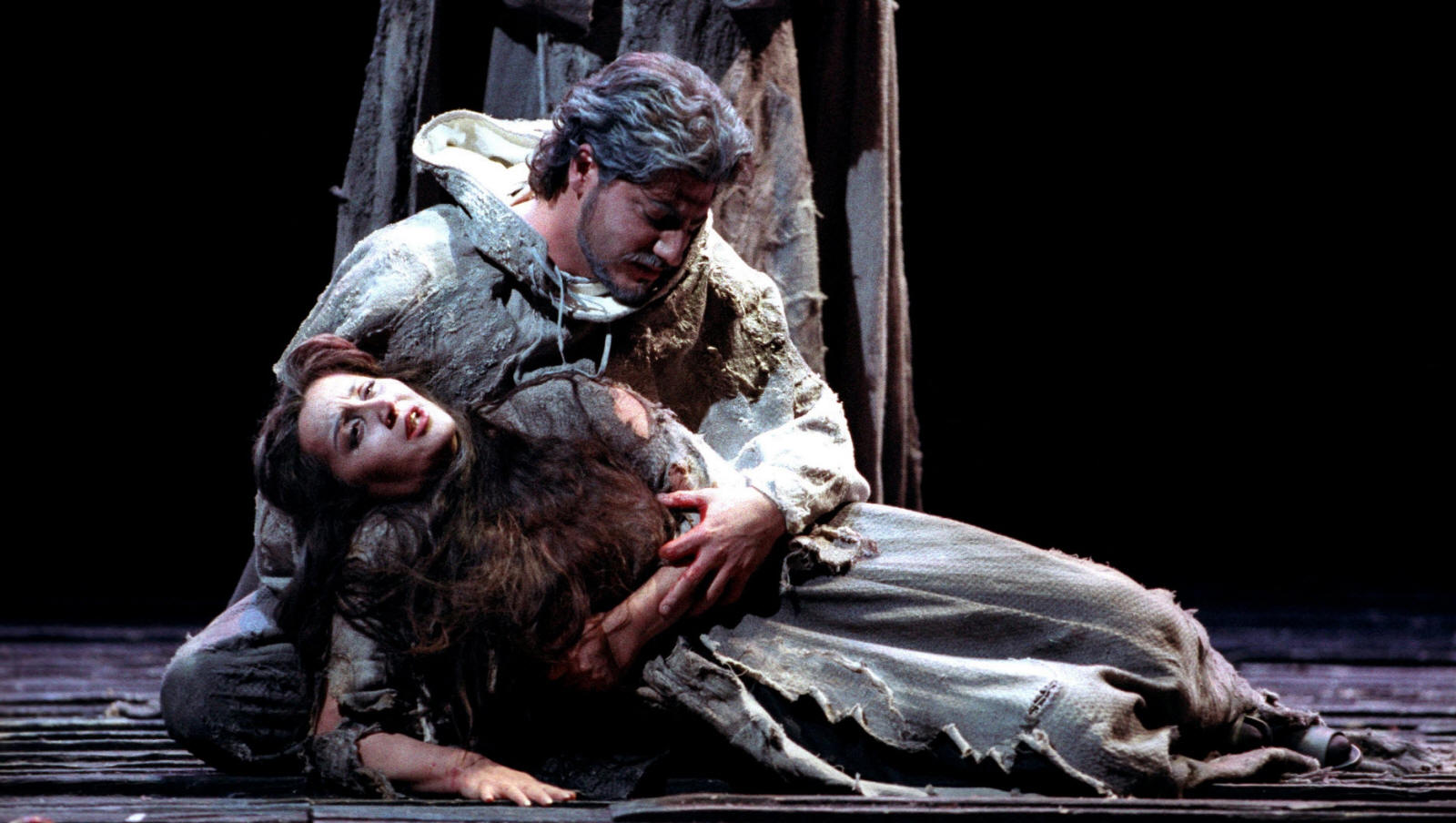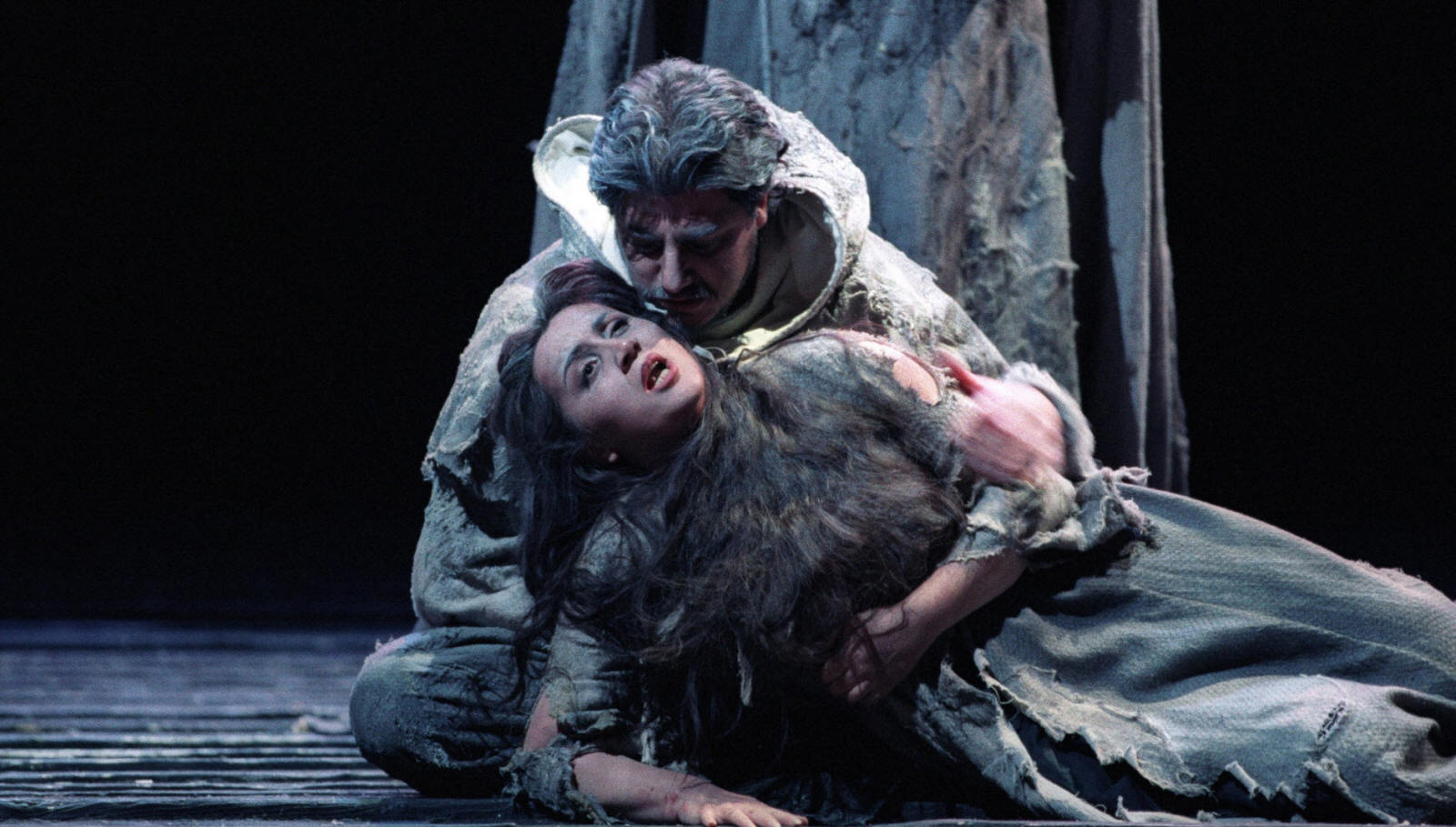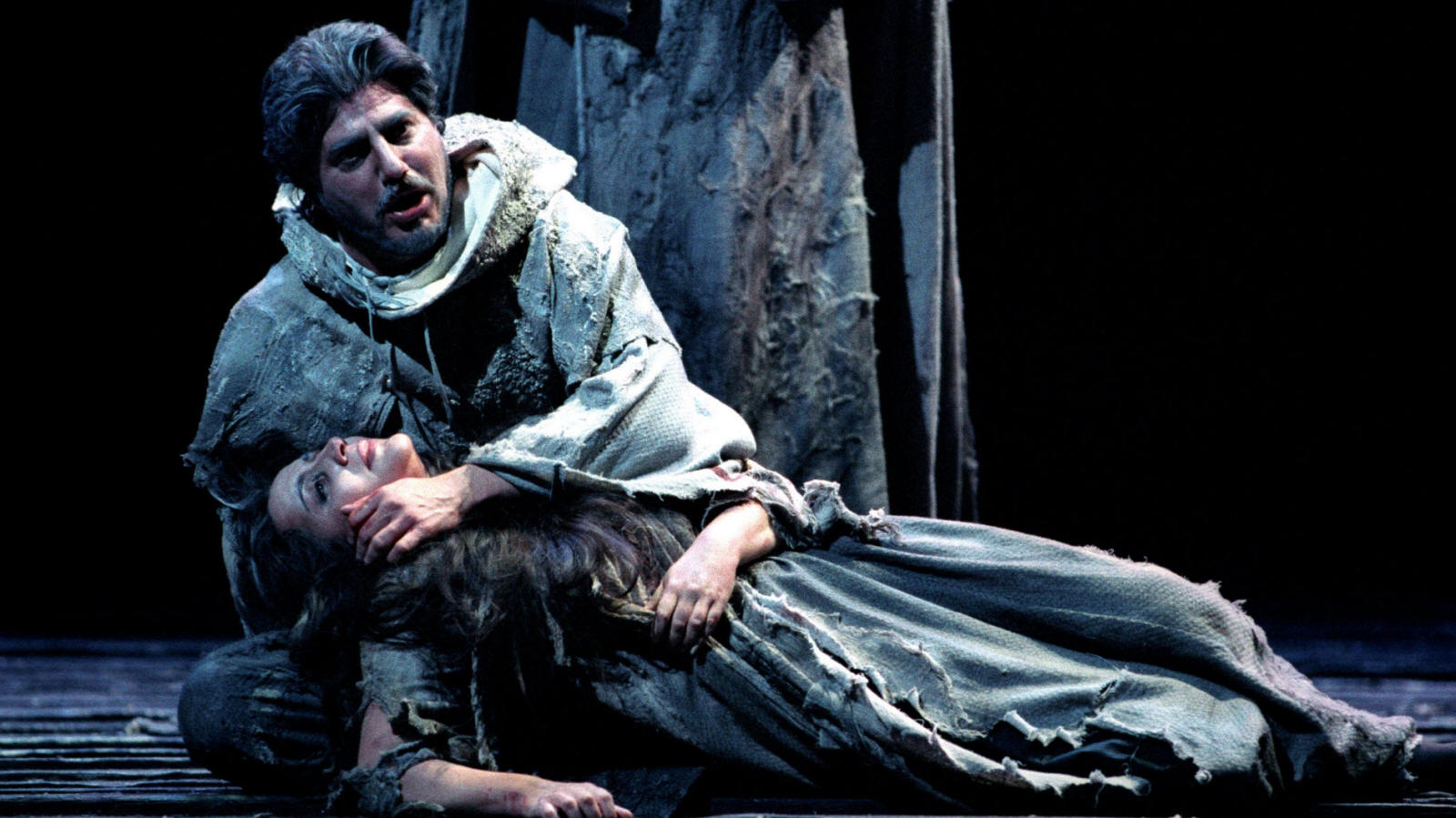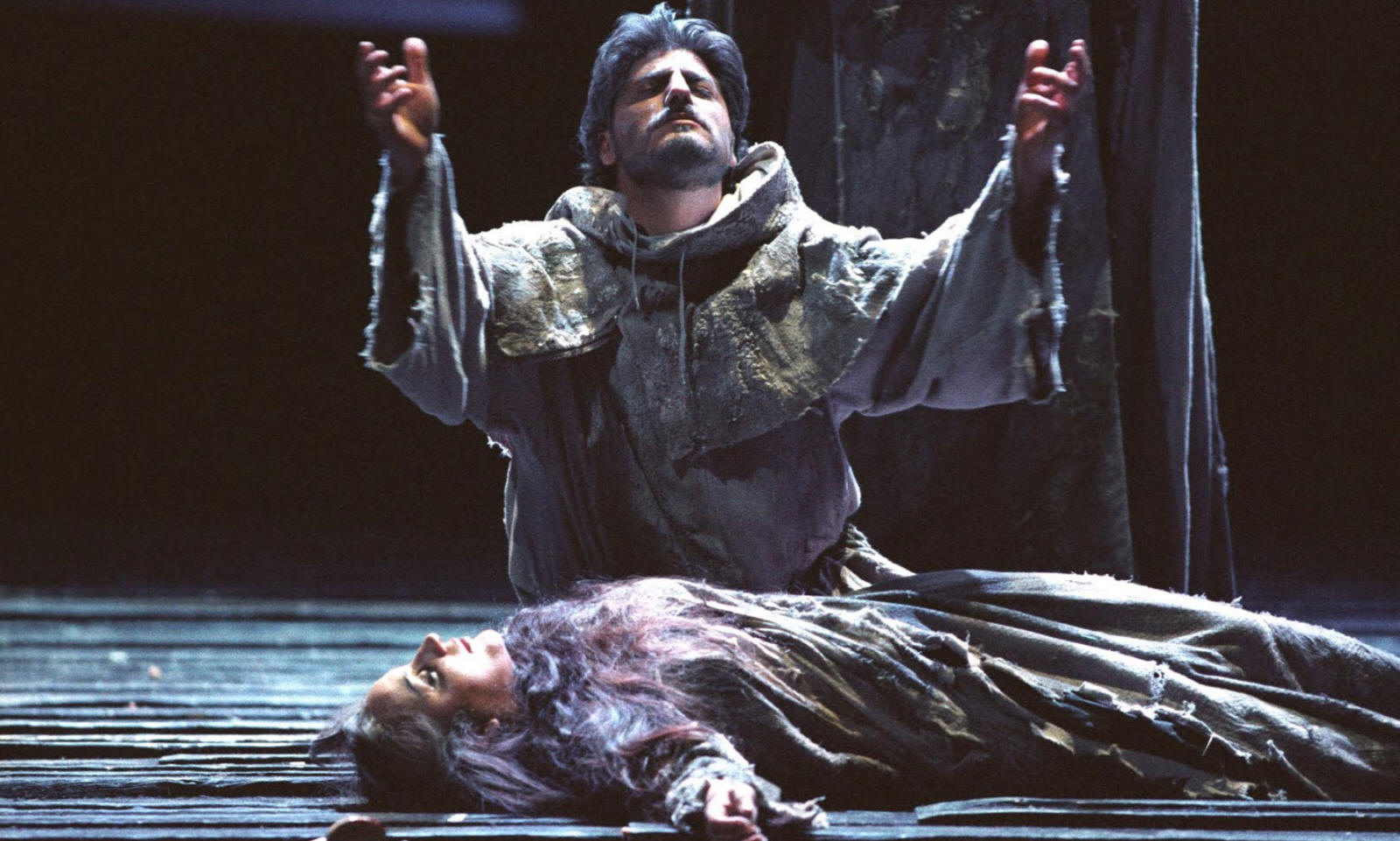Forza del destino
|
Forza del destino, Marseille, 1998: “The big winner of the night in Forza of the Destino was the Argentine tenor José Cura, a young Alvaro of brilliant and valiant voice, who did not hesitate to sing the duet 'Solenne in questora' stretched out on his back. Marseille's Opera was also witness to his admirable version of 'O tu che in seno agli angeli,' which earned him a great ovation.” Opera, July 1998 La Forza del Destino, Milan, February 1999: “Mr. Cura returned to give a shattering portrayal of his strange character, so honor-bound, so prone to self-abasement, so fierce of temper. He probed especially deep in the haunting battlefield duet, 'Solenne in quest' ora." Here, the wounded Alvaro, expecting to die, exacts his only friend's promise to consign to oblivion the secret that gnaws at his heart. Neither brother officer suspects that under their noms de guerre they are hunter and quarry...Mr. Cura gave the gloomy opening phrases an unearthly lightness, as if his soul were already hovering at the mystic threshold, but in the serene melody that follows, he let the light go out, steeping in solemnity a moment more conventionally played for the false comforts of nostalgia.” The New York Times, March 1999 La Forza del Destino, Milan, February 1999: “The Scala Forza was triumphantly received in the European press, not least because of Cura’s Don Alvaro. The premiere, however, found him in less than scintillating form dramatically; musically, though, he certainly delivered the goods, his rich, burnished tones ringing out with assurance, smoky in the lower register, laced with metal on high, negotiating the tricky intervals in ‘O tu che in seno agli angeli’with admirable finesse. More important, Cura’s singing conveyed all the affliction and fire of what is, with Ernani, Verdi’s most ‘enraged’ tenor role. All in all—and this is offered based on a handful of hearings—I would rate Cura’s as the most exciting lirico-spinto voice I have heard in the Italian repertoire.” American Record Review, September 1999 La Forza del Destino, Milan, February 1999: “José Cura, who played the role of Don Alvaro, showed natural potential that in this day can only be envied: a beautiful, dark, extended and sufficiently homogeneous voice, excellent stage presence, clear pronunciation and sufficient musical knowledge.” Premio Letterario Sofia, February 1999 La Forza del Destino, Milan, February 1999: “Everyone knows that the opera needs at least four outstanding singers, and it must be said that the casting was not equal to the importance of the occasion. Certainly the Hungarian soprano Georgina Lukács cannot be counted in [the number of Verdian vocalists]: her expressive intentions were frequently frustrated by the lack of power behind her voice and her inauthentic sound. José Cura had good moments (the last-act duet, for example.) The presence of a veteran like Leo Nucci says a lot about the crisis in the baritone ranks. Some nosy behavior from the loggionisti did not manage to disturb the celebratory mood of this Forza.” Opera, June 1999
|
|
1994
La forza del destino
Turin February and March 1994 |
|
|
Marseilles May 1998 |
|
|
Forza at La Scala - 1999
|
A Look at José
Cura American Record Guide
Marion Lignana Rosenberg [ Excerpt] The last few months have not been easy for opera's most recently anointed superstar, tenor José Cura, due to make his Metropolitan Opera début as Turiddu in Cavalleria rusticana on opening night of the 1999-2000 season. To be sure, some degree of backlash was probably inevitable: Cura, after all, is young (only 36), talented, successful, handsome, heedless of limits (a composer, a conductor, an instrumentalist, and an accomplished interpreter of popular music as well as a primo tenore) and, if his press is to be believed, not a little self-important. Such an impressive combination of gifts is bound to arouse envy, particularly since, unlike some of his fellow superstars, Cura (an Argentine based in France) appears uninterested in pandering to the stereotype that paints Latin singers as dopey, uncomplicated extroverts. Somewhat less controversial was his performance in La Scala's new production of La forza del destino earlier this year. The lengthy (and hardly disinterested) sniping in Opera News to the contrary, the Scala Forza was triumphantly received in the European press, not least because of Cura's Don Alvaro. The premiere found him in less than scintillating form dramatically. While his professed ambition is to be "the Olivier of opera," his acting - earnest, well-intentioned, and woefully stiff - brought to mind Al Gore more readily than Sir Laurence: proof that even one so prodigiously gifted as Cura has room to grow. Musically, though, he certainly delivered the goods, his rich, burnished tones ringing out with assurance, smoky in the lower register, laced with metallo on high, negotiating the tricky intervals in "O tu che in seno agli angeli" with admirable finesse. More importantly, Cura's singing conveyed all the affliction and fire of what is, with Ernani, Verdi's most arrabbiato tenor role. All in all - and this is offered with some trepidation, based as it is on only a handful of hearings - I would rate Cura's as the most exciting lirico-spinto voice I have heard in the Italian repertoire. |
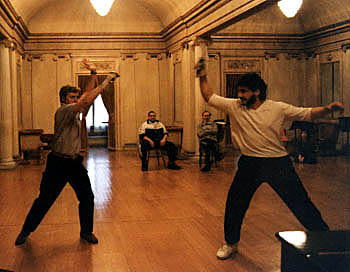
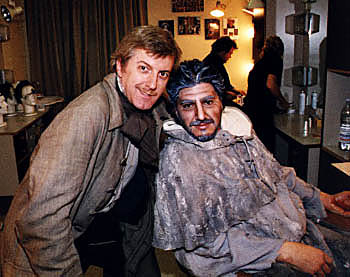
|
Having Invoked the Power of Fate, an Opera Feels It New York Times 28 March 1999 Matthew Gurewitsch
[Excerpt]
Last month, after an absence of 20 years, La Forza del Destino returned to La Scala, where in 1869 Verdi introduced the opera in its significantly revised, definitive form. For much of this century—from the late 20’s to the mid-60’s—audiences in Milan could count on two revivals per decade; in the 40’s alone, there were four. But even as the consensus of informed opinion has been advancing the reputation of the composer’s lesser as well as his greatest works, the challenge of realizing some of them in performance has grown all but insurmountable.
[…]
One night in late February, the premiere of the new Forza safely past, warning bells began sounding virtually with the rise of the curtain. The overture, a Muti specialty, had set the house ablaze with the tempestuous passion and soul-sick melancholy that toss and churn at the opera’s core.
But with Leonora’s opening aria, all that was lost. Of the Spanish noblewoman’s anxiety on the threshold of elopement, the soprano Ines Salazar conveyed little, and what mainly registered was an incapacity to project any but her high notes past the footlights. Then Alvaro, the half-breed Inca royal, came bounding in, in the person of José Cura, looking like a million bucks, and choked on some airborne foreign particle. Instead of conjuring up the dazzle of the rising sun (“god of the Indies”), he covered a coughing fit as best his could, with his back to the house. The trilling flute, at least, dazzled right on cue.
In the next scene, the vivacious mezzo-soprano, Luciana d’Intino, telling fortunes as the Gypsy wench Preziosilla, added a memory lapse to the blotter. As for the prima donna, her later and more demanding scenes failed to improve on the initial impression.
Mr. Cura, on the other hand, returned to give a shattering portrayal of his strange character, so honor-bound, so prone to self-abasement, so fierce of temper. He probed especially deep in the haunting battlefield duet “Solenne in quest'ora.” Here, the wounded Alvaro, expecting to die, exacts his only friend’s promise to consign to oblivion the secret that gnaws at his heart. Neither brother officer suspects that under their noms de guerre they are hunter and quarry. Leonora’s brother, Don Carlo, is out to avenge the death of his father. Mr. Cura gave the gloomy opening phrases an unearthly lightness, as if his soul were already hovering at the mystic threshold, but in the serene melody that follows, he let the light go out, steeping in solemnity a moment more conventionally played for the false comforts of nostalgia. …
|
|
|
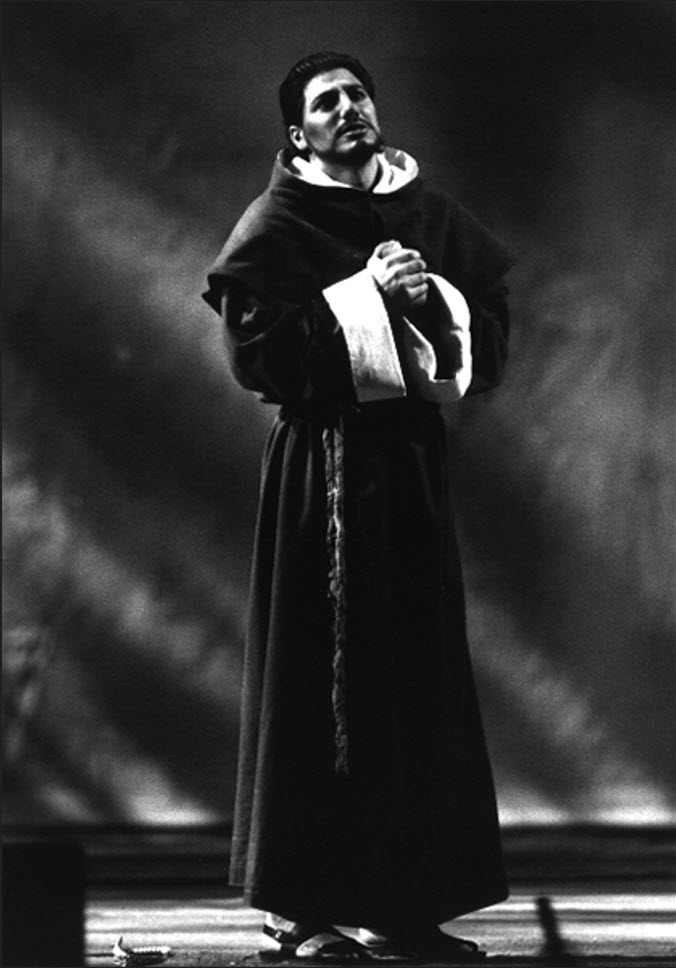
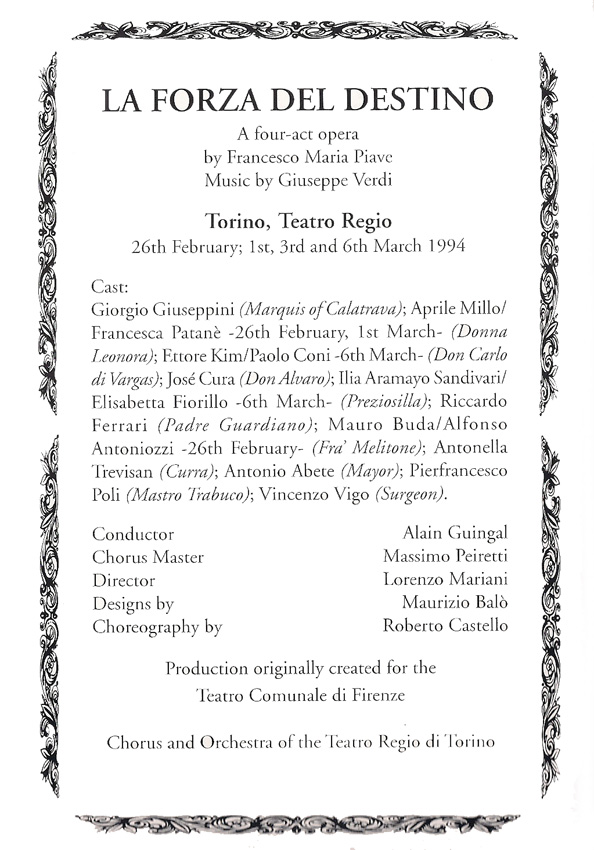
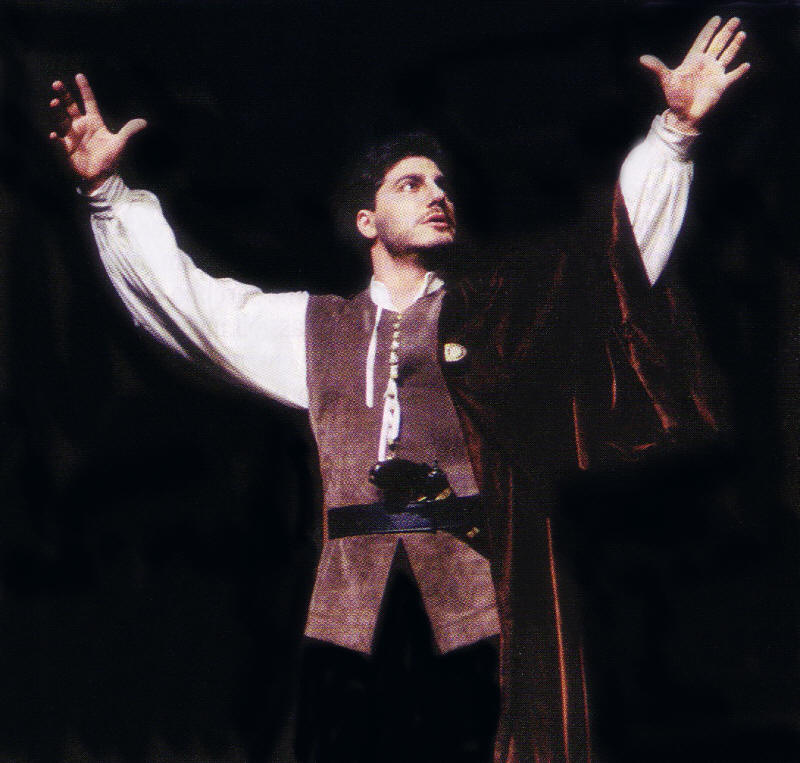
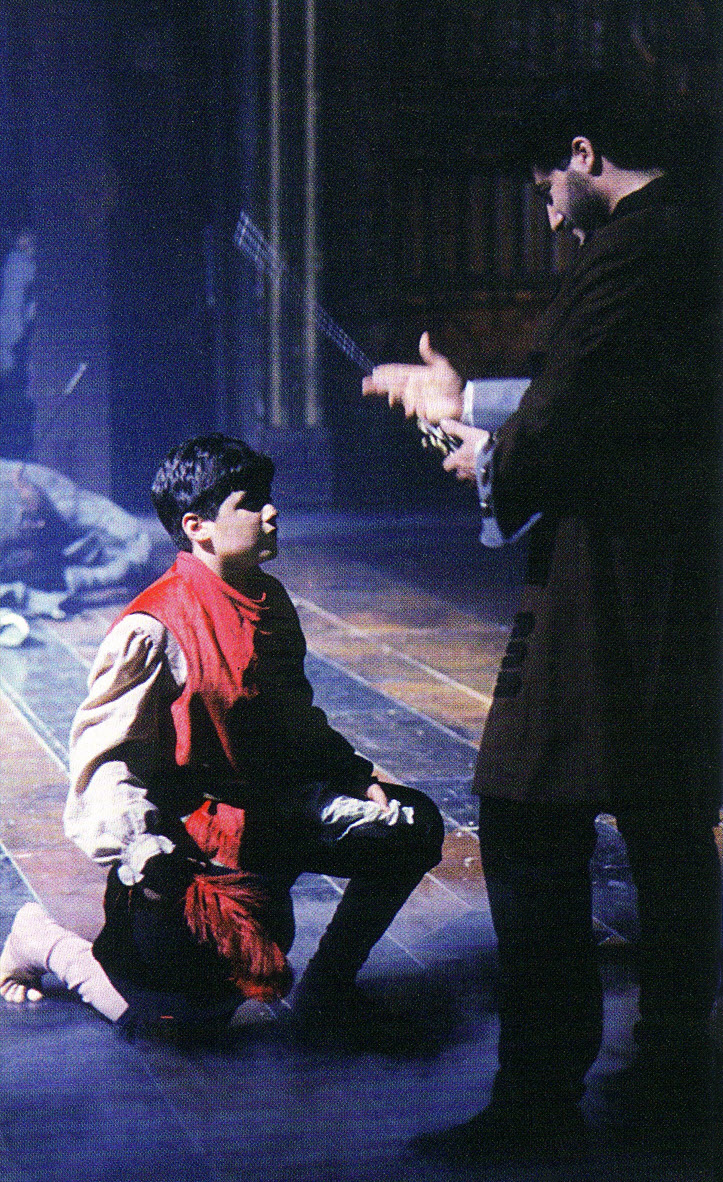
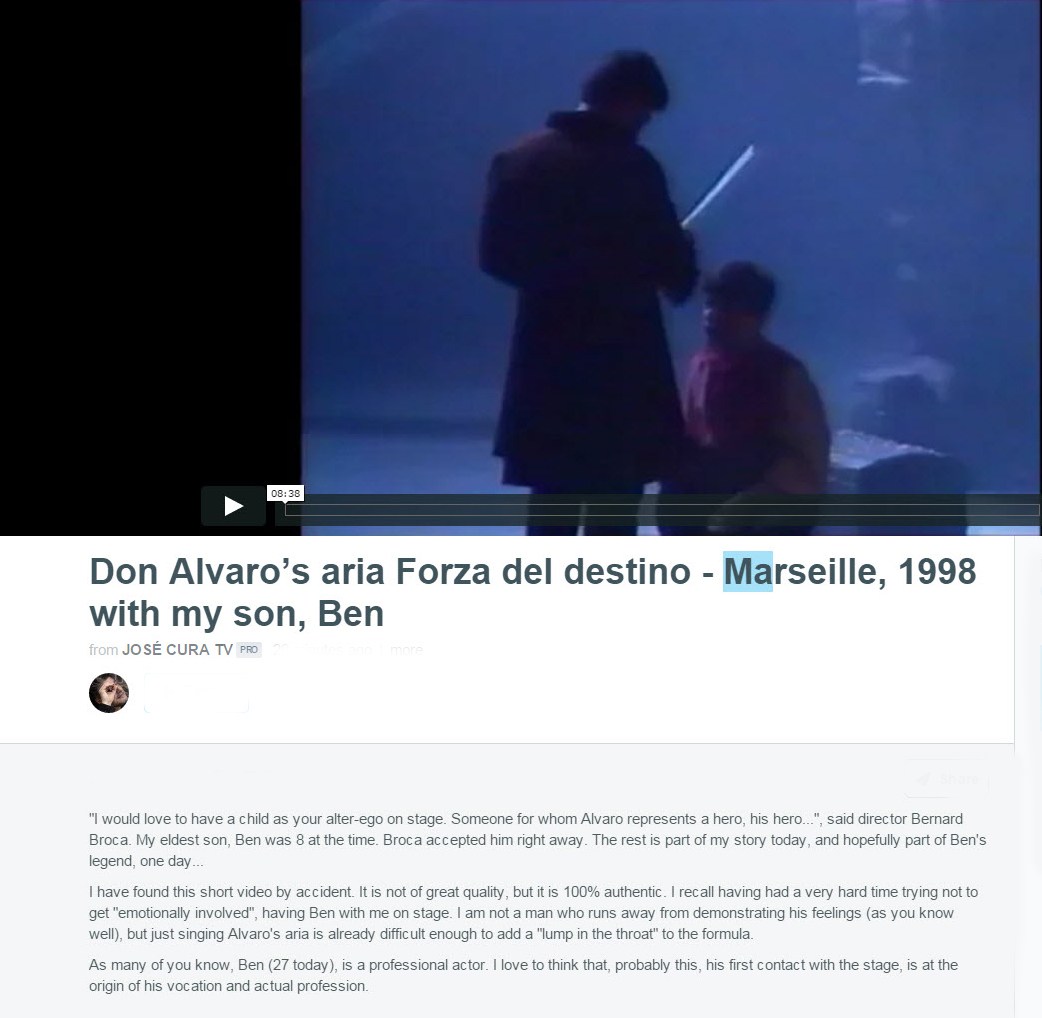
.jpg)
